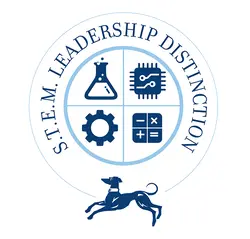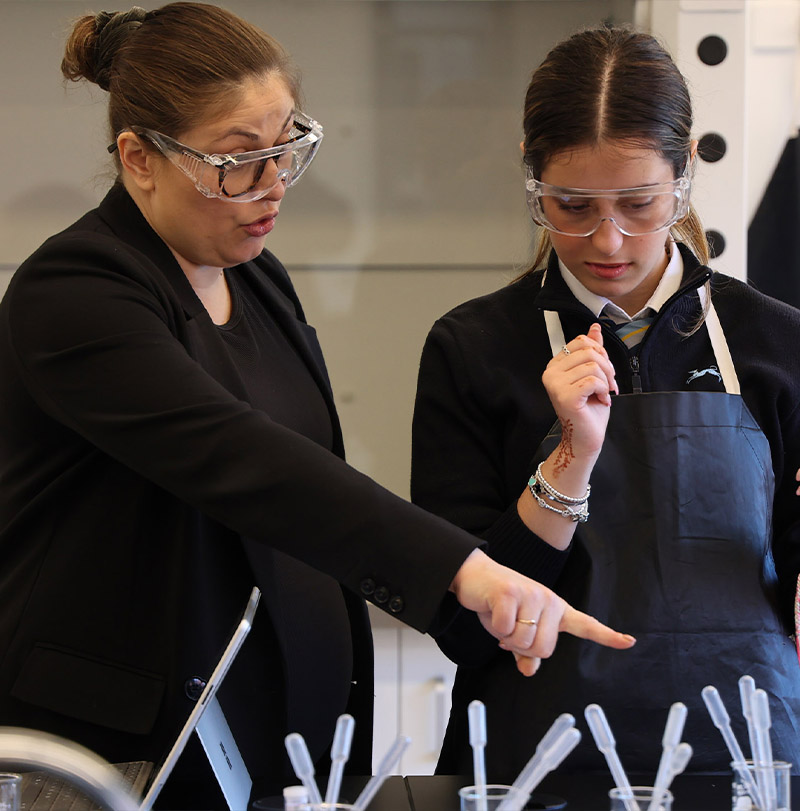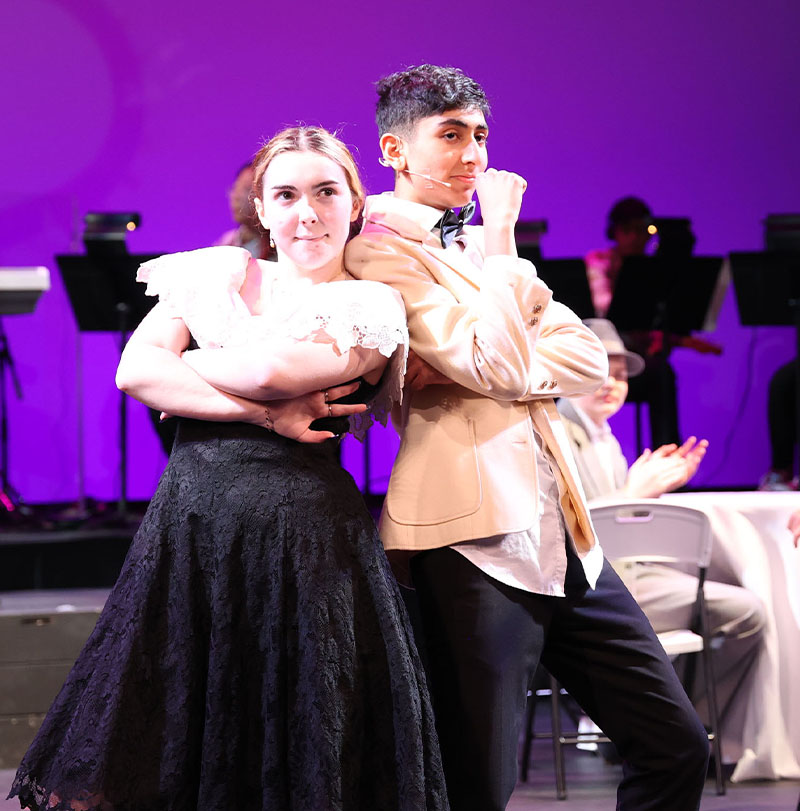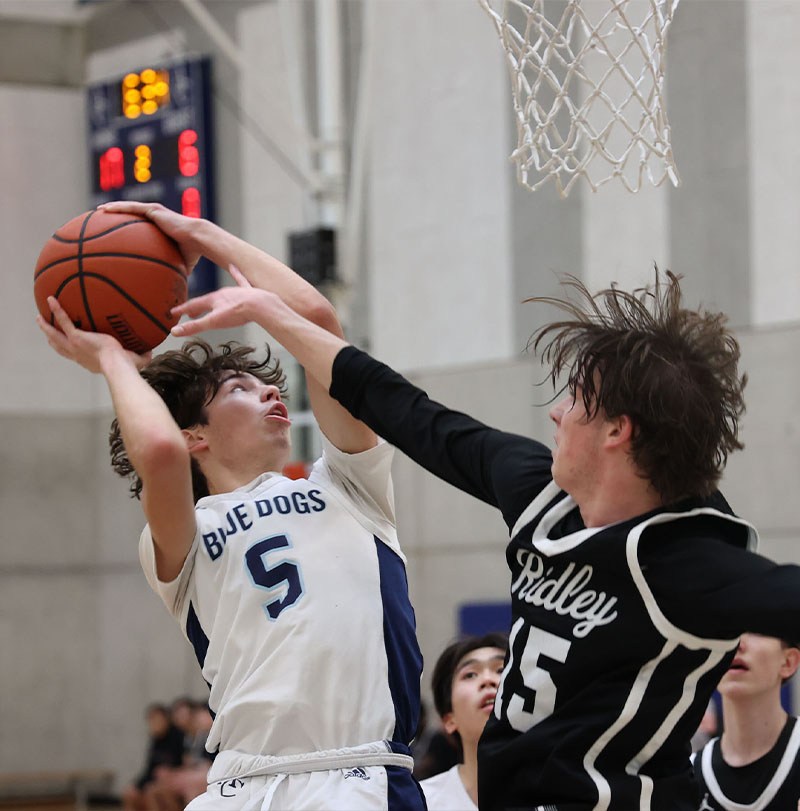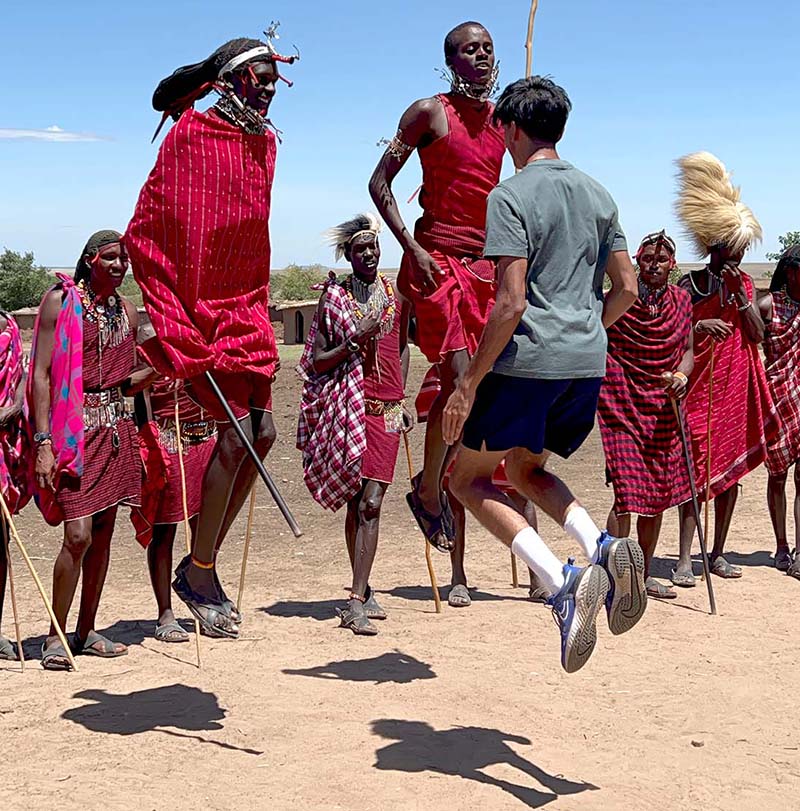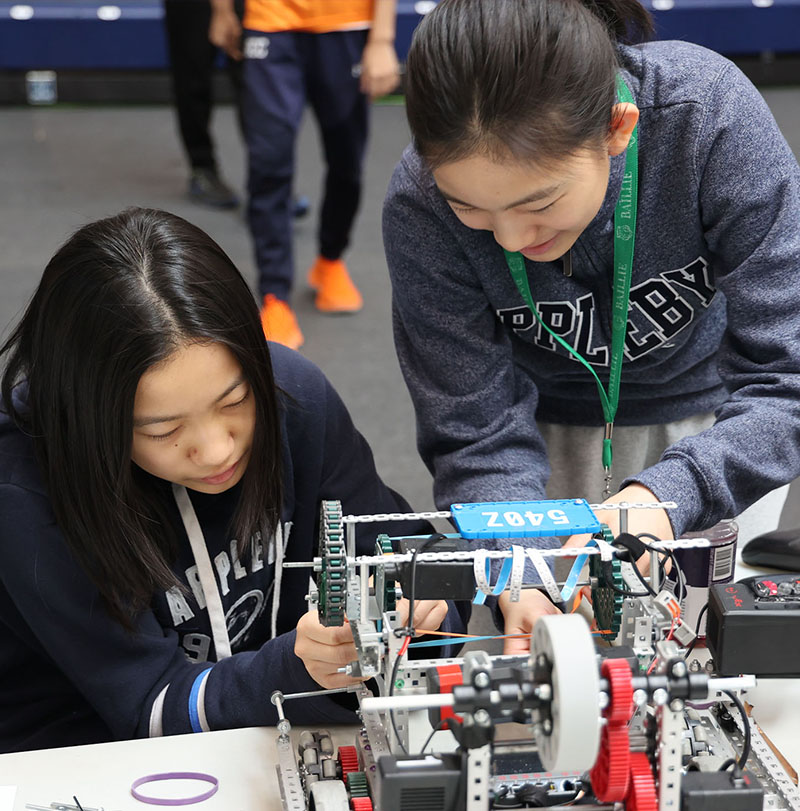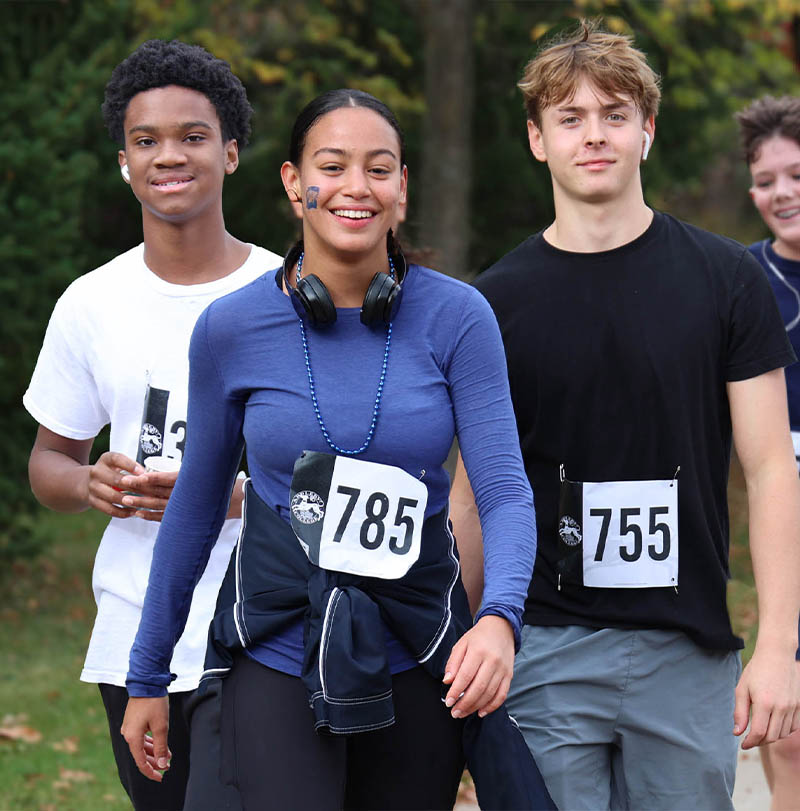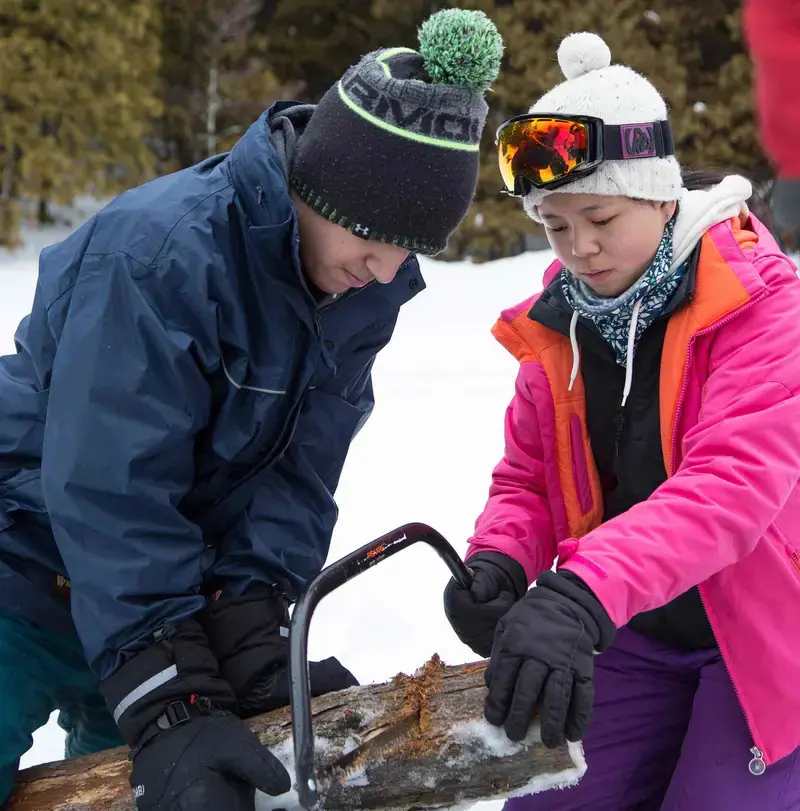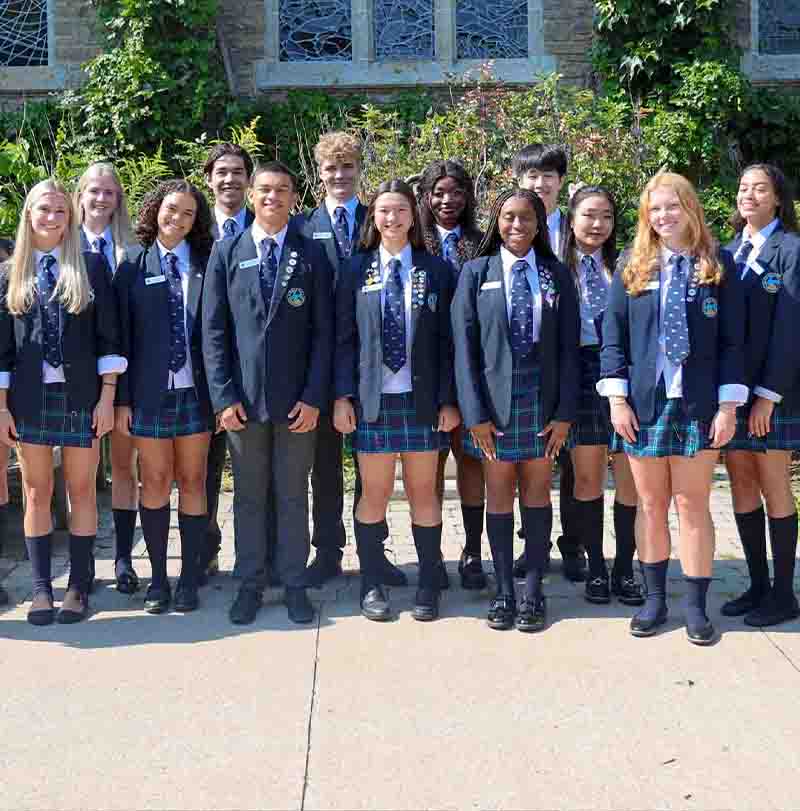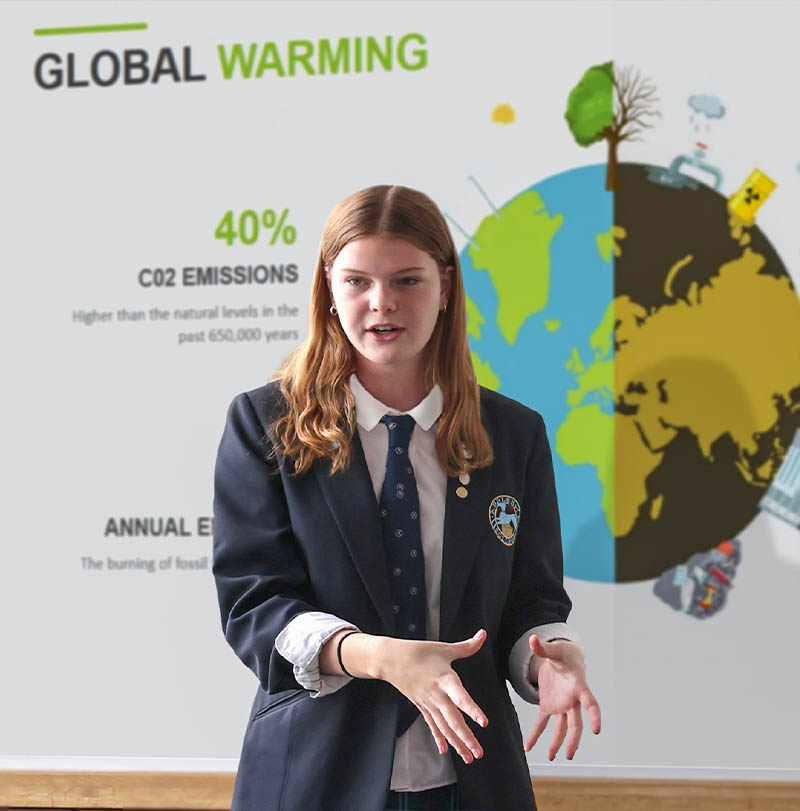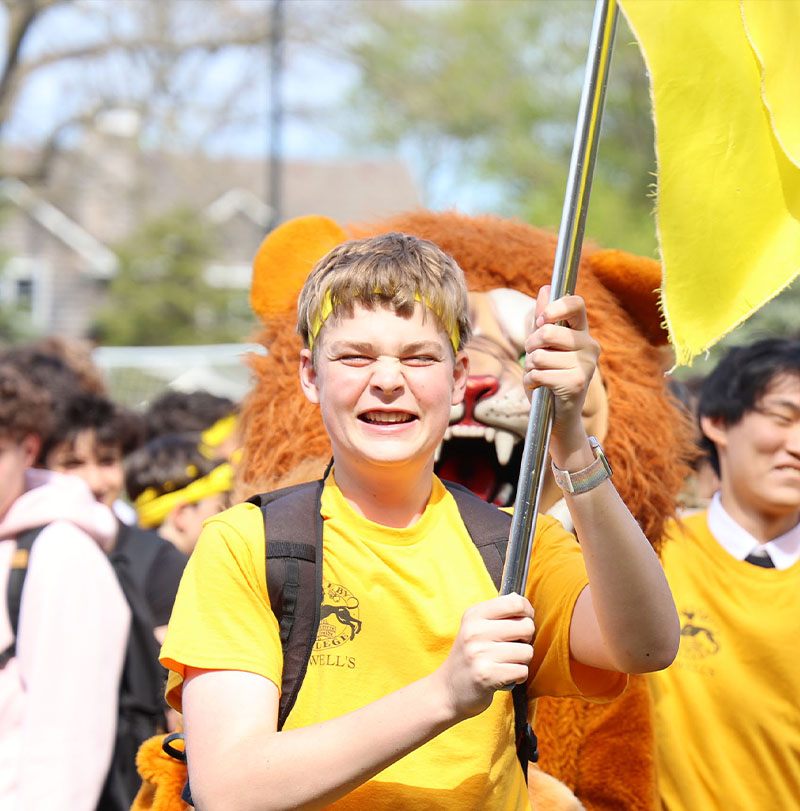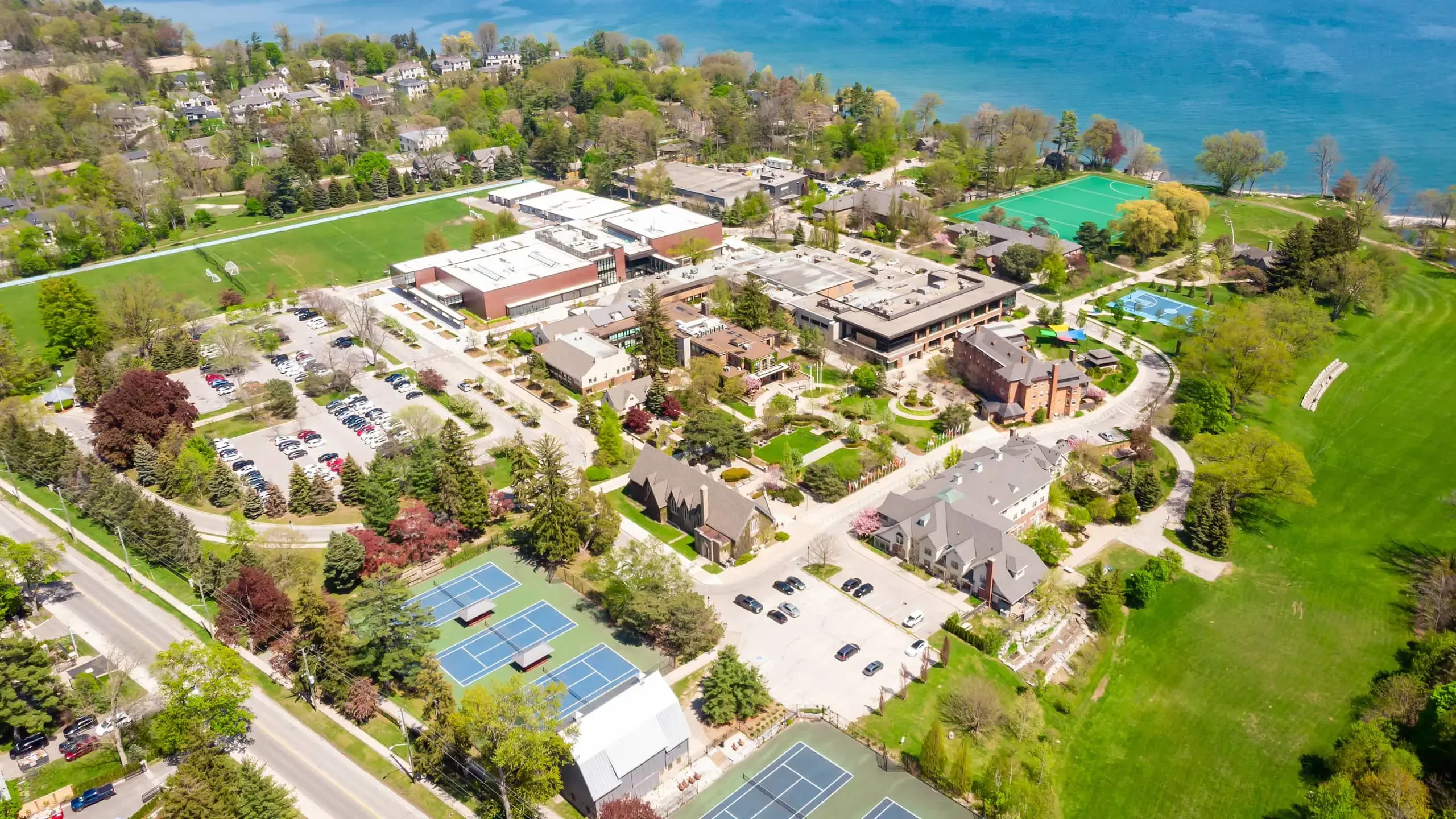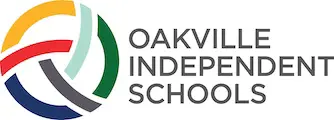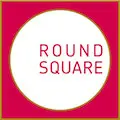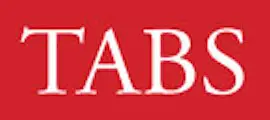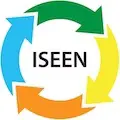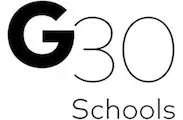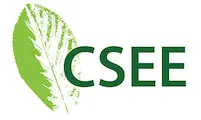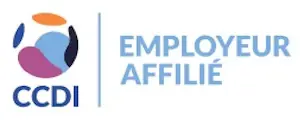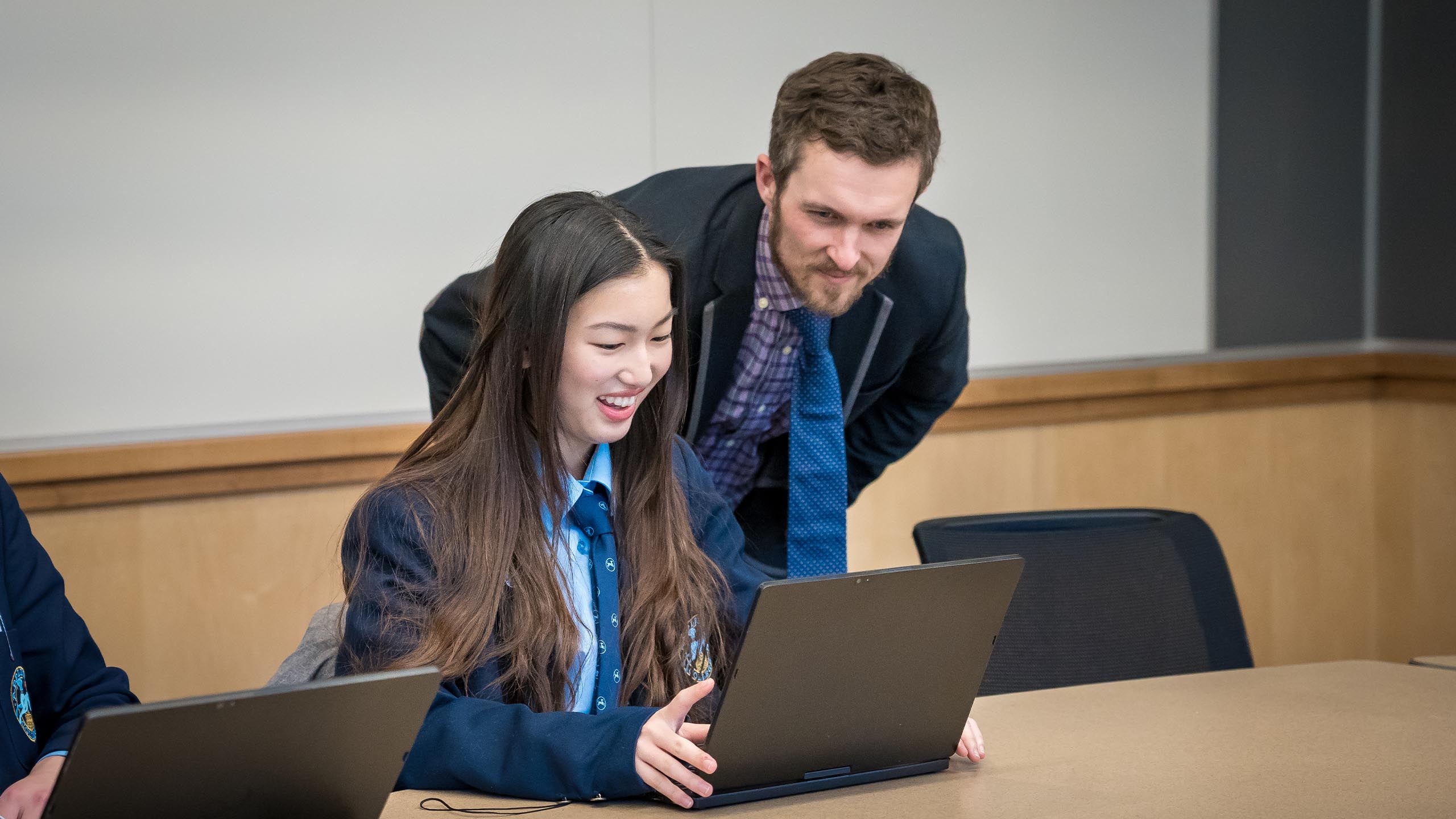
Course Descriptions
Click on the links below to view the relevant course description:
Academic Program
| ACADEMIC PROGRAM |
|---|
ACADEMIC PROGRAMAppleby College believes in the importance and value of completing a secondary education. Our school philosophy includes a commitment to reach every student to help him or her achieve a successful outcome from their school experience at Appleby. The concept of completing a secondary education is essential. Obtaining a high school diploma has become an increasingly important prerequisite for economic and social mobility in the world. Young people with a high school education are much better equipped for the modern life. They are more likely to be permanently employed and/or to be admitted to post-secondary institutions to further their education and become active members of our society. In Ontario, students are required to remain in secondary school until the student has reached the age of eighteen or obtained an Ontario Secondary School Diploma. Our MissionTo educate and enable our students to become leaders of character, major contributors to, and valued representatives of their local, national and international communities. Our Statement of PurposeEver since its establishment in 1911, Appleby College has been focused on the purpose that inspired the Founders: to develop leaders of strong character who will make a positive impact on their communities. Society has changed dramatically over the last century, and each Appleby generation has had its own distinct experience. The challenges facing graduates and the nature of their communities are constantly evolving; so has and must Appleby. The world of today and that in which our students will be making their own contributions, is increasingly dominated by unabated change – economic, socio-political, environmental and technological. Communities are becoming more interconnected, blended and global, and many societal structures and systems are being eliminated or reinvented. This brings great opportunity for those who are prepared. In order for our alumni to lead, contribute and flourish in this world, we believe that they require a variety of skills and characteristics built on self-awareness, which together reflect the whole person. Appleby graduates must be adaptable, determined and resilient. They must be able to capitalize on changes by facing them with persistent curiosity, a creative problem-solving mindset, global literacy, superb intercultural and interpersonal abilities, and critical thinking skills in order to provide greater clarity in an increasingly complex and ambiguous world. At the same time, we expect our graduates will be defined by those traits that make caring, responsible citizens: strong empathy, compassion, courage, integrity, a spirit of service to others, and a well-developed moral compass. We believe that the people in our community will best be developed in a positive school culture that is values-based and built upon relationships which are inspiring, empowering and enduring. Our employees must be continually developing and growing. The student experience will unite breadth and excellence, challenging students with opportunities to discover and pursue a wide range of passions at a high level. While the Appleby program will continue to be academically rigourous, increasingly our practices will be defined by engaging, powerful, experiential learning. We believe that Appleby College will be sustained by a commitment to outstanding people, a strong financial foundation, and a lifelong sense of community connectedness. Our spirit will be infused by innovation, inclusivity and ambition, and built on our shared values of respect. responsibility, integrity, and compassion. True to the Founders, we believe in a sense of public purpose in which we define our communities as local, national and international. We will be a world leader in education, a beacon of learning and caring. Curriculum PrinciplesAppleby offers a distinguished curriculum. A diverse range of required components provides students with stimulating challenges and the opportunity to acquire knowledge, skills and values. The achievement: preparation for university and life. The defining characteristic of an Appleby education is the mandatory participation in each of its core curricular components, leading to an Appleby Diploma upon graduation. Appleby develops young men and women of personal integrity, who are prepared for university, societal change, responsible involvement and leadership in their local, national and global communities. The curriculum focuses on:
Our secondary school credit courses are based on Ontario Ministry of Education course curriculum. At Appleby the school year is divided into three reporting periods and courses predominantly run for the full year. There are three report cards with a mid-term report halfway through the first reporting period and the other two coming at the end of each reporting period. The school day is broken down into 75-minute classes beginning at 8:45 a.m. and ending at either 3:30 p.m. or 3:50 p.m. depending on the schedule rotation. Appleby College offers a comprehensive program with a wide array of course offerings. To qualify for an Appleby Diploma, students complete courses extending beyond the requirements of the Ontario Secondary School Diploma. Appleby graduates complete a four-year liberal arts secondary school program. Starting in Middle School, students move ahead in traditional coursework; the correlation between grade identification and course codes at Appleby reflects the fact that traditional pairing is no longer appropriate. For example, Grade 8 students take some courses normally associated with Grade 9 (1D); Grade 9 equivalent students take both Grade 9 and Grade 10 courses (1D, 1O and 2D); and Senior One students take courses at both Grade 11 and 12 levels. To accommodate this situation and to provide nomenclature which reflects the organization of the school into pairs of grades, Appleby uses the following designations for the traditional age groups or grades: Middle School
Upper School
Senior School
Each of the Middle, Upper and Senior Schools has a director who monitors the academic progress and general well-being of the students. |
| CURRICULUM |
|---|
CURRICULUMHow to gain access to Outlines of the Courses of Study - Course outlines for all courses are kept on file at the school and are available to parents and students. The courses offered by this school have been developed according to the requirements of the Ontario Ministry of Education. Courses are offered each year, subject to sufficient enrolment, unless otherwise indicated. If a course is oversubscribed, some students cannot obtain first choices. Scheduling conflicts may preclude certain combinations of subjects. Academic Credits - All courses listed with a course code are worth credits towards the Ontario Secondary School Diploma (OSSD). See "Graduation and Diploma Requirements" for further information. SECONDARY SCHOOL COURSES IN THE ONTARIO CURRICULUM The Ontario Ministry of Education Secondary Curriculum can be found at http://www.edu.gov.on.ca/eng/curriculum/secondary/ Definition of a credit: a student earns a credit toward the Ontario Secondary School Diploma by taking a course found within the Ontario Secondary Curriculum documents for the duration of 110 hours and upon successful demonstration of the learning outcomes as identified in the curriculum. Secondary school courses in the Ontario curriculum are organized by discipline, Grade, and course type. Course types offered in Grades 9 and 10 (academic and applied courses, open courses) differ from those offered in Grades 11 and 12 (destination-related courses, open courses). In the current Ontario curriculum, there is a clear distinction between applied and academic courses in Grades 9 and 10, as well as among the various destination and open courses in Grades 11 and 12. Open courses in Grades 9 to 12 are also distinct from other course types. Because the courses are different, students may earn credit for the successful completion of more than one course in the same subject at any given Grade level. All schools will offer both a sufficient number of courses and courses of appropriate types to enable students to meet the diploma requirements. Schools are not expected to offer all courses in all course types, but must provide a range of choices appropriate to the needs and interests of their students. The following three types of courses are offered in Grades 9 and 10:
In Grades 9 and 10, students will select an appropriate combination of academic, applied, and open courses in order to add to their knowledge and skills, explore their interests, and determine the type of educational program they are best suited to undertake in Grades 11 and 12. When selecting their courses in Grades 9 and 10, students are not expected to make binding decisions about a particular educational or career pathway; however, they should try to ensure that they have the prerequisites required for future courses they plan to take. The following five types of courses are offered in Grades 11 and 12:
In Grades 11 and 12, students will focus increasingly on their individual interests and will identify and prepare for their postsecondary pathways. In these Grades there are also increased opportunities for learning experiences beyond the school, including cooperative education, work experience, and specialized programs such as the Ontario Youth Apprenticeship Program, Specialist High Skills Major programs, and school-work transition programs. Schools are required to ensure that students in Grades 11 and 12 have access to an appropriate destination-related course in at least English, mathematics, and science, in accordance with the course types included in the curriculum policy documents for these disciplines. Transfers - Course transfers must be completed prior to end of September. Parental permission is required. It is important that students make every effort to choose their programs wisely during the course request procedure. Course Withdrawals - Students carrying more courses than the minimum school requirement may withdraw from an elective course up until the end of March of each academic year. For the 2022-23 school year the course withdrawal deadline is March 31, 2023. Courses dropped after the deadline by students in grades 11 and 12 are registered on the student's Ontario Student Transcript showing the grade at time of withdrawal. Prerequisites - Some courses require students to have passed the course at a lower level or to have suitable equivalent experience. In addition, Appleby College also has specific requirements for some courses. A prerequisite required by the Ministry of Education is noted as "Prerequisite". Courses required by Appleby are noted as "Appleby Prerequisite". If a student enters Appleby and wishes to take a course without the required pre-requisite, the Principal or Head of School may decide to place the student appropriately following an oral and written evaluation. Students will not be approved to miss courses required in the Appleby curriculum. Courses in Grades 11 and 12 may have prerequisites as a requirement for enrolment. All prerequisite courses will be identified in ministry curriculum policy documents, and no courses apart from these may be identified as prerequisites. Schools must provide parents and students with clear and accurate information on prerequisites. If a parent requests that a prerequisite be waived, the Principal or Head of School will determine whether or not the prerequisite should be waived. A Principal or Head of School may also initiate consideration of whether a prerequisite should be waived. The Principal or Head of School will make his or her decision in consultation with the parent and appropriate school staff. Substitutions for Compulsory Courses - To allow for flexibility in designing a student's program and to ensure all students can qualify for the OSSD, substitutions may be made for a limited number of compulsory credits. With permission, students may replace up to three credits (or the equivalent in half-credits) with courses selected from the remaining courses offered by the school that meet the requirements for compulsory credits. In all cases, the sum of compulsory and optional credits will not be fewer than 30 to earn the OSSD. Substitutions should only be made to promote and enhance student learning, or to meet special needs and interests. Each substitution will be noted on the student's Ontario Student Transcript. Experiential Learning Programs Cooperative Education - Cooperative education programs allow students to earn secondary school credits while completing a work placement in the community. These programs complement students’ academic programs and are valuable for all students, whatever their postsecondary destination. A cooperative education program comprises, at a minimum, one cooperative education course and its related course, on which the cooperative education course is based. Any course from an Ontario curriculum policy document or any ministry-approved locally developed course may serve as the related course for a cooperative education program. Ontario Student Record - An Ontario Student Record (OSR) is established for each student enrolled in a Ministry-inspected Ontario school. The OSR is an ongoing record and is transferred between schools attended. The OSR contains biographical information about the student, a listing of schools attended, parent and guardian information, the Ontario Student Transcript, final report cards, a record of second language instruction and any other special records of standardized testing, identifications or placement determinations, and health or psychological reports. Parents or students can review the contents of the OSR by contacting Guidance. Each student and the parent(s) or guardian(s) of a student who is not an adult is entitled to have access to the student's OSR. Ontario Student Transcript - The Ontario Student Transcript (OST) is a component of the OSR. It is the official record of a student's successful completion of Ontario Secondary School credits. The OST records the results of all secondary school courses, including failures, repeated courses and Grade 11 or 12 courses from which a student withdraws following March 31 of the academic year. Students wishing to move between courses at different levels are required to meet the prerequisite requirements. Ontario Secondary School Literacy Requirement - All students must successfully complete the Ontario Secondary School Literacy Requirement in order to earn a secondary school diploma. The Ontario School Literacy Test is normally written in the Grade 10 year and is based on the Ontario curriculum expectations for language and communication, particularly reading and writing, up to and including Grade 9. Students who do not successfully complete the test after taking it twice, may take the Ontario Secondary School Literacy Course (OSSLC) which is designed to help students acquire and demonstrate the cross-curricular literacy skills that are evaluated by the Ontario Secondary School Literacy Test. Students who complete the course successfully will meet the provincial literacy requirement for graduation. Successful completion of the test (or the OSSLC) is recorded on the Ontario Student Transcript. Literacy Test Accommodations - Accommodations will be made to ensure students with documented special needs have a fair and equal opportunity to successfully complete the literacy test. While accommodations such as alternative forms of print and extra time are acceptable, the actual content of the secondary school literacy test must not be altered. Literacy Test Deferrals - Students who might benefit from a deferral of the test may include students who have not yet acquired the level of proficiency in English required for successfully completing the test. If a parent requests a deferral, the School will determine whether or not a deferral should be granted and, if so, for what period of time. The School may also initiate consideration of a deferral in consultation with the parent. Independent/Private Study - Teachers may allow for independent study in any given course. While Appleby does not offer entire courses of independent study, senior-level courses may have independent study components. In situations where Appleby does not offer a course, permission may be granted to work through the Ontario Independent Learning Centre. Appleby does not provide the opportunity for private study courses. Online Learning - Students complete a variety of online learning modules in various subject areas at Appleby. Information on online learning modules and hours can be found in the academic course of study for each course. Upper Two students take the compulsory half-credit in Civics online. Students in grade 12 may elect to take one of their required 6 course-load online from an accredited outside provider. Students in grade 9-12 may not substitute any of their required per-year course load with an online course. They may take courses online above the required minimum load taken at Appleby. Students taking an online course need the permission of the Guidance department. School Philosophy regarding PPM 167 Mandatory Online Learning - Appleby College was established in 1911 with the purpose of developing leaders of strong character who will make a positive impact on their communities. We offer a varied curriculum with a diverse range of required components to provide students with many learning opportunities. Our educational philosophy is focused on relationship building, experiential education, and purpose-filled learning in a student-centered setting. Appleby’s school philosophy also focuses on our outdoor education programs with mandatory in-person trips for students in grades 7 to 10 and opportunities to travel in the grade 11 and 12 years. Due to this focus on experiential education and in-person learning, we will not be requiring Appleby College students to fulfil the PPM 167 policy that requires Ontario students to complete two online learning courses as a requirement for graduation. While we offer a mandatory half credit that is fully online (CHV2O: Civics and Citizenship) as well as opportunities for our students to select online course options, we do not wish to mandate online learning beyond these opportunities. Guidance Resource Centre - The Guidance Resource Centre contains current literature and computer software including educational, career and personal lifestyle information. Literature from Canadian, American and UK universities makes up a significant portion of the holdings. In Guidance classes, students are shown how to locate and assimilate information using print, video and computer databases. Parents are also encouraged to use the resources. Students with Accommodations - Students with Accommodations will be identified through Guidance and teachers will receive an educational plan, or “Student Success Profile” for these students which often includes teaching guidelines, assessment practices and classroom management ideas. It is a requirement for each teacher to review and employ the plan and guidelines for each student with accommodations they teach, as they are individualized and will enhance educational success. Appleby College is dedicated to providing supports and accommodations to students who have received a medical diagnosis related to their learning exceptionalities and or mental health and wellness. The focal point of these supports is the school’s Student Success Center (SSC) which provides the necessary supports for those students to have access to official accommodations. A student who uses these supports may include: those with a Learning Difference (LD) in Reading, Writing or Mathematics, Attention Deficient Hyperactivity Disorder (ADHD), Stress and Anxiety, Executive Functioning, English Language Learners (ELL) and other Medical conditions. Transition Student Policies - The following policy is intended to support English language learners at Appleby College. Potential transition students are flagged at the time of admission into the school by the Director of Guidance. Students admitted to the school from non-English speaking countries and who have not attended an all-English speaking school during the year prior to attending Appleby may qualify. Other students may qualify under exceptional circumstances to be determined in consultation with the Director of Guidance and the Academic Student support team. Students in the graduating class are not eligible for transition status. Other English Language Learning (ELL) supports are available at the school to assist all students. Academic Program Requirements for Transition students - All U1-U2 transition students are required to take a language course through the end of their U2 year. The course selection will be made according to previous language background of the student and with approval from the Guidance and Language Departments. Cultural Transition Approaches - Students may face a cultural transition when arriving at Appleby College and as a result additional supports may need to be developed to ease their transition to life in a North American boarding school. Students identified as requiring this additional support will have a plan developed through consultation with Guidance and the appropriate Boarding Life Faculty and School Directors. Any cultural transition support will last for 6 months. Academic Support - Students struggling with organization issues and/or academic difficulties should be promptly directed by their teacher first to the student’s advisor. If problems persist, the student should be referred to the Guidance office for further learning skills counselling and support. If a student is struggling academically with a particular subject, then the following protocol must be followed. The course teacher asks the student to attend departmentally-run extra-help sessions. Students may also be asked to make use of other academic assistance such as the Online Writing Lab or Peer Tutoring. Any requests for Peer Tutoring should be directed to the Academic Prefect. |
| EVALUATION, REPORTING AND PROMOTION |
|---|
EVALUATION, REPORTING AND PROMOTIONEvaluation - At Appleby, evaluation takes many forms; it is formal and informal, written and oral. It assesses the progress that students have made in their acquisition of skills and mastery of concepts for each unit of work. It tells teachers how effective their teaching has been and what changes should be made in methods and content. It tells parents how their child is progressing, and tells students what they have learned and need to learn. As well, Appleby College recognizes the value of students completing summative evaluations that can assess important ways of learning, such as oral communication, presentation skills, research and practical applications of theoretical material. In many classes, these summative evaluations will be implemented along with exams, so that teachers assess not only learning from knowledge, but also from deeper inquiry that involves the exchange and application of ideas and a cumulative perspective of much of the knowledge and skills that students have learned over an extended period of time.
Reporting- Formal reports are written three times a year (November, March and June). Reports indicate the strengths and weaknesses of the student and may give some suggestions for improving performance. Teachers are available to discuss these reports or any issues that may arise during the year. The information is of two kinds:
Optimates - Students achieving an overall average of 85% or above for the year (a combination of term and summative assessment) are recognized in the following year as Optimates students. These students are recognized by the Head of School during a celebratory event. The student average is calculated including the required course for each grade and only those courses taken at Appleby during the September to June academic year. Summer school or online courses are not used to calculate or adjust the average used for Optimates calculation. Students must meet all the academic requirements in terms of courses, as well as meet the other curriculum expectations for the year to be eligible for Optimates. PROMOTIONAppleby College Promotion Policy - In order to be promoted to the next grade level, a student must achieve an overall average of 70%, including a minimum of 60% in all prerequisites for required courses, including English, and a minimum of 50% in all other courses. In addition, students must complete the co-curricular requirements for athletics, arts and service. Successful and appropriate completion of all scheduled trips and visits, including those to Mclaughlin Northern Campus, is also required. For any student achieving below 50% in a course indicates insufficient achievement of the curriculum expectations. The student will not receive a credit for the course. Student Citizenship - If a student fails to meet behavioural expectations or make a positive contribution to the life of the school, that individual may not be permitted to return the following year. Community Involvement Activities - As stated in Ontario Secondary Schools, Grades 9 to 12: Program and Diploma Requirements, 1999 (OSS), every student who begins secondary school during or after the 1999–2000 school year must complete a minimum of 40 hours of community involvement activities as part of the requirements for an Ontario Secondary School Diploma (OSSD). As part of the Appleby diploma requirements, Upper and Senior school students must complete a minimum of 20 hours of community involvement activities per year. A summary of recorded service hours appears on the report card each year. The purpose of the community involvement requirement is to encourage students to develop awareness and understanding of civic responsibility and of the role they can play and the contributions they can make in supporting and strengthening their communities. Community involvement activities are part of the school's program. Procedures for Students Students may complete the 40 hours of community involvement activities at any time during their secondary school program. They may also complete any number of activities, as long as those activities result in the completion of 40 hours of community involvement. Students under the age of eighteen years will plan and select their community involvement activities in consultation with their parents. Before beginning any community involvement activity, each student must complete and submit a “Notification of Planned Community Involvement Activities” form. The student will select an activity (or activities) from the board's list of approved activities, or an activity that is not on the list, provided that it is not an activity that is on the ministry's or board's list of ineligible activities (see “Ineligible Activities” below). If the activity is not on the board's list of approved activities, the student will have to obtain written approval from the principal (that is, the principal's signature beside the activity described on the notification form). A student under the age of eighteen must complete the form in consultation with his or her parents, and must also have one parent sign the form. The student will sign the form and submit it to the principal or to another school contact designated by the principal (for example, the student's teacher-adviser). More than one such form may be submitted when additional activities are planned that were not included on a previously submitted form. When the activity is completed, the student must fill out the “Completion of Community Involvement Activities” form. The sponsor of the activity – that is, the person or organization that provided the community involvement activity – will complete the appropriate sections of the form to verify that the activity has been completed, and will sign the form. The form must also be signed by one of the student's parents if the student is under eighteen years of age. The student must submit the form to the principal or other school contact upon completion of the 40 hours, or at appropriate intervals determined by the principal. Students will provide their parents with a copy of the board's document “Information on the Community Involvement Diploma Requirement”, which they will be given by the school. Students will also give a copy of this document to the sponsor of the community involvement activity. Ineligible Activities The ministry has developed a list of activities that may not be chosen as community involvement activities. These are referred to as ineligible activities. An ineligible activity is an activity that:
Promotion Committee - The case of any individual not meeting these prescribed conditions will be considered at the year's end by the Promotion Committee. The student may be required to make up the deficiency through a recognized summer program, to repeat the year or to withdraw. To be considered a graduate of Appleby, a student must meet the requirements of the Ontario Secondary School Diploma. To be awarded an Appleby College Diploma, a student must achieve a minimum overall average of 70% in six Grade 12 courses including English. All core English courses (ENL1W-ENG4U) must be taken at Appleby in the Harkness model, during the regular school year. In the final year at Appleby, a student must maintain a 70% overall average, successfully complete a minimum of six Grade 12 courses and meet the requirements of the school's co-curricular, service and boarding life programs. |
| GRADUATION AND DIPLOMA REQUIREMENTS | |||||||||||||
|---|---|---|---|---|---|---|---|---|---|---|---|---|---|
GRADUATION AND DIPLOMA REQUIREMENTSAppleby College offers three diplomas: Ontario Secondary School Diploma The basic diploma (OSSD) is that for the Ontario Secondary School system, as approved by the Ontario Ministry of Education. In addition, Appleby offers its own diploma, for which the requirements are more rigorous. To get your OSSD you need (starting Grade 9 prior to September 2024):
To get your OSSD you need (starting Grade 9 September 2024 onwards):
i) Secondary School Literacy Graduation Requirement Ontario Secondary School Literacy Test Ontario Secondary School Literacy Course ii) Substitutions for Compulsory Courses APPLEBY COLLEGE DIPLOMAAll students work towards the Appleby College Diploma. This diploma, which is awarded to graduates at the end of the Senior Two year, signifies that the student has not only met the academic requirements of the school, but has also met the requirements of the co-curricular, service and boarding life programs. By meeting the academic requirements for the Appleby College Diploma, students also satisfy the requirements for the Ontario Secondary School Diploma, including at least seven Grade 12 credits, four of which must be at the U level. Students are required to participate in the Northward Bound programs in both Upper One and Upper Two to the school's S. Bruce McLaughlin Northern Campus. Students will need a minimum of 20 hours of community involvement each year. DIPLOMAS OF DISTINCTION IN: BUSINESS LEADERSHIP, CREATIVE ARTS LEADERSHIP, GLOBAL LEADERSHIP, AND STEM LEADERSHIPAppleby College students benefit from a breadth of programs and courses that provide them with a well-rounded education and experiences that are recognized through the Appleby College Diploma. Students who are particularly passionate about Business Leadership, Creative Arts Leadership, Global Leadership or STEM Leadership also have the opportunity to dive deep, earning a diploma with distinction in one of these areas. Each diploma of distinction has its own set of additional requirements, developed with intention by subject specialists, that allow students to take active ownership of their learning and explore opportunities outside of the classroom. Through these diplomas, students are recognized for their excellence and have the benefit of real-world experiences to help guide their post-secondary decisions and career aspirations.
Additional information The Ontario Secondary School Certificate (OSSC) The Certificate of Accomplishment |
| MIDDLE, UPPER, AND SENIOR SCHOOL ADVANTAGES |
|---|
THE MIDDLE SCHOOL ADVANTAGEThe Middle School program prepares Grade 7 and 8 students for the rigours of the Appleby program. Students are introduced to Appleby's academic program, e.school and co-curricular activities, along with a host of social, leadership and team-building activities in a supportive, nurturing environment. THE HOME FORMHome Forms are an essential component of the Middle School program. Small class sizes are key, with courses taught by subject specialists. Students take about half of their courses each day with their Home Form class, building a sense of spirit and camaraderie among classmates. Other subjects allow them to mix with peers from other Forms, building a wide circle of friends. Students meet with their Form Advisors at the end of the day, four days a week, allowing them the opportunity to help manage homework assignments, discuss problems and celebrate successes. Form Advisors assist students with their transition to Appleby life and communicate on a regular basis with parents, providing a valuable bridge between school and home life. Students in each home form also have the opportunity to interact and be mentored by Senior One students, giving them a connection to other constituents of the school. ACADEMICSMiddle Two students are offered the opportunity to take accelerated Grade 9 programs in Mathematics and French. Middle School students are also exposed to four international languages (German, Mandarin, Arabic and Spanish) in addition to the required French program. Science students work in specialized labs, performing experiments and learning the basics of the scientific method. Students are exposed to the arts, both music and visual arts, and enjoy a Comprehensive Arts course, which introduces them to drama, dance, and leadership training. Music students can choose between band, strings and vocal music. Organized Homework Blocks and Testing Blocks keep the workload manageable, and are available on BBK12 for both students and parents to keep track of and monitor over the course of the year. TECHNOLOGY @APPLEBYAppleby students are introduced to computers as a valuable tool to organize their school work, create reports, evaluate and present information. Computer competencies are taught throughout the school so by the time students enter Upper School they can create Web pages, are proficient in Microsoft Word, OneNote and PowerPoint, and can use some of the advanced functions of Microsoft Excel, such as charts and graphs. CO-CURRICULAR PROGRAMMiddle School students have many opportunities to participate in school life. They play on the teams of their choice, representing the school at tournaments and inter-school competitions. They have opportunities to join Upper and Senior School students, participating in arts activities such as the School Play and Choir, and other activities. Middle One Students must also earn 10 service hours, while Middle Two students must earn 12 service hours. The school provides opportunities for service both on and off-campus. Through service activities, students learn the value of helping others, a key value of an Appleby education. LEADERSHIP AND MENTORINGMiddle School students participate in the full life of the school through their involvement in activities such as Middle School Council, Middle School Service Council, Model United Nations, Choir, Student Ambassadors and Athletics. They learn from their older peers, and lead the way on their own terms in activities that are educational and fun. Various leadership opportunities are provided to Middle School students in their classes, the ALC (arts, creativity and leadership) comprehensive arts course, co-curricular activities, clubs, and Home Forms. Furthermore, special workshops and local and international conferences and trips are offered to help develop students' leadership skills. SOCIAL ACTIVITIES AND SCHOOL TRIPSIt's not all about school work. Middle School dances, class trips, class parties and activities, such as the Middle School Chapel service and monthly Nightingale competitions provide opportunities for interaction outside the classroom. School trips at each grade level, while academic in nature, also provide opportunities to build friendships and memories for a lifetime. THE UPPER SCHOOL ADVANTAGERICH CURRICULUMUpper School offers exposure to a wide range of academic courses and co-curricular experiences so that students may discover their interests. Some choice is available, but all students must take a full course load of 8 courses in U1, and 8.5 courses in U2. Supplementary curriculum is offered through the advisor program, chapel and grade band assemblies, with a focus on character education. Here, opportunities are plentiful for skill-building and cultivating awareness as we explore individually and in groups the concepts of leadership, integrity, confidence, and teamwork. LEADERSHIPLeadership skill-building in the Upper School focuses on character, communication, organization, personal responsibility, and teamwork. These topics are an integral part of the curriculum at this level and are addressed through academic content and themes. Additionally, they form the backbone of co-curricular programming too, such as Northward Bound, Boarding Life, Advisory, Grade Band Assemblies, Chapel week and various student-led events. THE SENIOR SCHOOL ADVANTAGEBOARDING PROGRAMAppleby's Boarding Program presents students with the opportunity to enhance important capacities and skills such as integrity, communication, dependability, adaptability, understanding differences, and conflict resolution. Boarders engage in a real life curriculum whereby students gain an appreciation for time and place through managing their study schedule and planning their time. For the grade twelve class, which must board, the Boarding Program provides the unique opportunity for each individual student to develop confidence and resilience in preparation for living away from home at university, and at the same time enables the class to broaden and deepen friendships and bond as a group. ADVANCED PLACEMENT (AP) COURSES
|
| AP AND ADDITIONAL AWARDS |
|---|
ADVANCED PLACEMENT AWARDS AND DIPLOMASAP SCHOLAR AWARDSThe AP Scholar Awards recognize high school students who have demonstrated exemplary college-level achievement on AP Exams. A roster of award recipients is provided online to their secondary schools and districts. Additionally, students are able to print a copy of their award certificate(s) online, and the awards are reflected on all score reports sent to colleges after awards are conferred. AWARD LEVELSAP Scholar - Granted to students who receive scores of 3 or higher on three or more AP Exams. AP Scholar with Honour - Granted to students who receive an average score of at least 3.25 on all AP Exams taken, and scores of 3 or higher on four or more of these exams. AP Scholar with Distinction - Granted to students who receive an average score of at least 3.5 on all AP Exams taken, and scores of 3 or higher on five or more of these exams. AP International Diploma - Awarded to students who display exceptional achievement across a variety of disciplines. AP CAPSTONE AWARDSAP Capstone is an innovative diploma program that equips students with the independent research, collaborative teamwork, and communication skills that are increasingly valued by colleges. AP Capstone students who have demonstrated outstanding college-level achievement in AP Seminar, AP Research, and additional AP courses are recognized through two awards: AP Seminar and Research Certificate - Granted to students who earn scores of 3 or higher in both AP Seminar and AP Research. AP Capstone Diploma - Granted to students who earn scores of 3 or higher in AP Seminar and AP Research and on four additional AP Exams of their choosing. ADDITIONAL CERTIFICATIONS AND QUALIFICATIONSToday, more than ever, there is tough competition for university entrance. Strong academic, co-curricular, guidance and leadership programs give Appleby students an advantage over many others. In addition to these programs, Appleby offers a number of special certificates and programs which support the interests of the students. Information on how to attain these certificates and diplomas is available from the Coordinator, External Academic Programs. THE DUKE OF EDINBURGH'S AWARDWith a working partnership with The Duke of Edinburgh's Award, Appleby ensures that students from the age of 14 have the opportunity to complete the requirements of community service, expeditions, skills and physical recreation at the Bronze, Silver and Gold levels. Bronze and Silver awards are approved by the Provincial/Divisional Councils while Gold awards are approved by the National Executive Director on behalf of the Board of Directors. Students are required to complete the requirements for the Bronze award in order to gain an Appleby Diploma. |
| COURSE CODES |
|---|
| A common Ministry of Education five-digit course code is used for all secondary school credits. All courses listed with a course code are worth credits towards the OSSD as noted. See the OSSD requirements for more information. |
| COURSE OFFERINGS FOR 2026-27 | |||||||||
|---|---|---|---|---|---|---|---|---|---|
PROGRAM OFFERINGS 2026-2027
|
Course Descriptions
| ENGLISH |
|---|
ENGLISHThe Appleby English program prepares students for the study of university English and develops competence in the areas of speaking, written expression, reading and media studies that are instrumental in the pursuit of other disciplines. Students follow a structured curriculum from Middle One to Senior Two. The Appleby program is literature-based, with emphasis on the integration of a critical awareness of language and media. Thus, the aim is to achieve a balance of these elements in the student’s oral and written expression. All courses concentrate on developing the students’ abilities to understand and convey information; to evaluate and present facts and opinions; to express experience, emotions and imagination; to manipulate conventions such as paragraphing, sentence structure, punctuation and spelling; to recognize implicit meaning; and to cultivate an awareness of style. English class sizes at Appleby College are small and allow for students to sit at oval Harkness tables, which facilitate active, participatory, and student-centred learning. Students also develop the skills to communicate, collaborate, and think critically about the course content. The program encourages good reading habits, independent and self-motivated learning, metacognition and reflection, the development of media literacy and the practical use of new technologies. For students to realize the importance of reading and to nurture it as a lifelong habit, students will be expected to read at least one novel from the syllabus of their upcoming year’s work during the summer. The English Department Head and Curriculum Chair provide details of the next year’s reading lists toward the end of the school year. Other important activities are the study of literature reflecting a wide variety of styles, genres, themes, content and period; class discussions led by teacher and students; individual oral presentations enhanced by technology; peer and self-assessment; opportunities for metacognition and reflection; and course enrichment according to the design of the teacher. Students are continually assessed and evaluated through oral and written work, performance tasks and examinations. MIDDLE ONE REQUIREDEnglish - ENG7J Note taking and organizational skill building using the computer and written notes is essential for success. All students participate in the annual poetry writing contest and recital. Evaluation: Term Work - 85 % Summative Evaluation - 15 % MIDDLE TWO REQUIREDEnglish - ENG8J Evaluation: Term Work - 100 % UPPER ONE REQUIREDEnglish - ENL1W Evaluation: Term Work - 70 % Summative Evaluation - 30 % UPPER TWO REQUIREDEnglish - ENG2D Evaluation: Term Work - 70 % Summative Evaluation - 30 % SENIOR ONE RESTRICTED ELECTIVEEnglish - AP English Language & Composition - ENG3UL This course emphasizes the development of literacy, communication, and critical and creative thinking skills necessary for success in academic and daily life. Students will analyse challenging literary texts from various periods, countries, and cultures, as well as a range of informational and graphic texts, and create oral, written, and media texts in a variety of forms. An important focus will be on using language with precision and clarity and incorporating stylistic devices appropriately and effectively. The course is intended to prepare students for the compulsory Grade 12 university preparation course. This course leads to the AP English Language & Composition examination. Additional course work will be required to prepare for this exam. Students are encouraged to write this Advanced Placement examination in May. Evaluation: Term Work - 70 % Summative Evaluation - 30 % English - AP Capstone Seminar - ENG3UP This course emphasizes the development of literacy, communication, and critical and creative thinking skills necessary for success in academic and daily life. Students will analyse challenging literary texts from various periods, countries, and cultures, as well as a range of informational and graphic texts, and create oral, written, and media texts in a variety of forms. An important focus will be on using language with precision and clarity and incorporating stylistic devices appropriately and effectively. The course is intended to prepare students for the compulsory Grade 12 university preparation course or the AP Capstone Research course. AP Seminar is a foundational course that engages students in cross- curricular conversations that explore the complexities of academic and real-world topics and issues by analysing divergent lenses and perspectives. Using an inquiry framework, students practice reading and analysing articles, research studies, and foundational literary and philosophical texts; they will also listen to and view speeches, broadcasts, and personal accounts, while experiencing artistic works and performances. Students learn to synthesize information from multiple sources, develop their own perspectives in written essays, and design and deliver oral and visual presentations, both individually and as part of a team. Ultimately, the course aims to equip students with the power to analyse and evaluate information in order to craft and communicate evidence-based arguments. Acceptance into this program requires students to complete an application and participate in an interview. This course leads to the AP English Language & Composition examination. Additional course work will be required to prepare for this exam. Students are encouraged to write this Advanced Placement examination in May. Evaluation: Term Work - 70 % Summative Evaluation - 30 % English - Understanding Contemporary First Nations, Métis, and Inuit Voices - NBE3U This course explores the themes, forms, and stylistic elements of a variety of literary, informational, graphic, oral, cultural, and media text forms emerging from First Nations, Métis, and Inuit cultures in Canada, and also examines the perspectives and influence of texts that relate to those cultures. In order to fully understand contemporary text forms and their themes of identity, relationship, and self-determination, sovereignty, or self-governance, students will analyse the changing use of text forms by Indigenous authors/creators from various periods and cultures in expressing ideas related to these themes. Students will also create oral, written, and media texts to explore their own ideas and understanding, focusing on the development of literacy, communication, and critical and creative thinking skills necessary for success in academic and daily life. The course is intended to prepare students for the compulsory Grade 12 English university or college preparation course. Evaluation: Term Work - 70 % Summative Evaluation - 30 % SENIOR ONE ELECTIVEMedia Studies - EMS3O Evaluation: Term Work - 70 % Summative Evaluation - 30 % SENIOR TWO RESTRICTED ELECTIVEEnglish - AP English Literature & Composition - ENG4UL This course emphasizes the consolidation of the literacy, communication, and critical and creative thinking skills necessary for success in academic and daily life. Students will analyse a range of challenging literary texts from various periods, countries, and cultures; interpret and evaluate informational and graphic texts; and create oral, written, and media texts in a variety of forms. An important focus will be on using academic language coherently and confidently, selecting the reading strategies best suited to particular texts and particular purposes for reading, and developing greater control in writing. The course is intended to prepare students for university, college, or the workplace. This course leads to the AP English Literature & Composition examination. Additional course work will be required to prepare for this exam. Students are encouraged to write this Advanced Placement examination in May. Evaluation: Term Work - 70 % Summative Evaluation - 30 % English - Grade 12, University Preparation - ENG4U This course emphasizes the consolidation of the literacy, communication, and critical and creative thinking skills necessary for success in academic and daily life. Students will analyse a range of challenging literary texts from various periods, countries, and cultures; interpret and evaluate informational and graphic texts; and create oral, written, and media texts in a variety of forms. An important focus will be on using academic language coherently and confidently, selecting the reading strategies best suited to particular texts and particular purposes for reading, and developing greater control in writing. The course is intended to prepare students for university, college, or the workplace. Evaluation: Term Work - 70 % Summative Evaluation - 30 % English - AP African American Studies - ENG4UA This course emphasizes the consolidation of the literacy, communication, and critical and creative thinking skills necessary for success in academic and daily life. Students will analyse a range of challenging literary texts from various periods, countries, and cultures; interpret and evaluate informational and graphic texts; and create oral, written, and media texts in a variety of forms. An important focus will be on using academic language coherently and confidently, selecting the reading strategies best suited to particular texts and particular purposes for reading, and developing greater control in writing. The course is intended to prepare students for university, college, or the workplace. Beginning with the strength and diversity of African kingdoms, and tracing a path through enslavement to freedom, this course explores key topics such as the origins of the African diaspora, Reconstruction, the Great Migration, African American art and music, and Afrofuturism. This course leads to the AP African American Studies examination and to the submission of a research-based project to the College Board. Students are encouraged to write the Advanced Placement examination and complete the research-based project in May. Evaluation: Term Work - 70 % Summative Evaluation - 30 % English - AP Capstone Research- ENG4UP This course emphasizes the consolidation of the literacy, communication, and critical and creative thinking skills necessary for success in academic and daily life. Students will analyse a range of challenging literary texts from various periods, countries, and cultures; interpret and evaluate informational and graphic texts; and create oral, written, and media texts in a variety of forms. An important focus will be on using academic language coherently and confidently, selecting the reading strategies best suited to particular texts and particular purposes for reading, and developing greater control in writing. The course is intended to prepare students for university, college, and the workplace. AP Research is an enriched course that builds on and advances the skills established in AP Seminar. It emphasizes the consolidation and application of the literacy, communication, and critical and creative thinking skills necessary for success in academic and daily life. Developing the inquiry framework from AP Seminar, students will work to develop and refine a research methodology, apply this to a topic of their choosing, and pursue their own research project. Student research will culminate in a paper and a presentation. Students will develop and refine their research skills by exploring topics both guided by the teacher and by their own interests, while considering various research methodologies. Evaluation: Term Work - 70 % Summative Evaluation - 30 % SENIOR TWO ELECTIVESThe Writer's Craft - EWC4U Evaluation: Term Work - 70 % Summative Evaluation - 30 % |
| MATHEMATICS AND COMPUTER STUDIES |
|---|
MATHEMATICS AND COMPUTER STUDIESThe mathematics program at Appleby College provides a solid foundation for the study of mathematics at the university level. The program aims to equip students with essential mathematical knowledge and competencies; with skills of reasoning, problem solving, and communication; and, most importantly, with the ability and the incentive to continue learning on their own. Courses regularly take into consideration new applications and new ways of doing mathematics. This program integrates appropriate technologies into the learning and doing of mathematics, while recognizing the continuing importance of students’ mastering essential numeric and algebraic skills. This curriculum embeds the learning of mathematics in the solving of problems based on real-life situations. Rich problem-solving situations can be drawn from closely related disciplines. It is important that these links between disciplines be carefully explored, analyzed, and discussed to emphasize for students the pervasiveness of mathematical knowledge and mathematical thinking in all subject areas. The mathematics courses at Appleby College reflect the belief that students learn mathematics effectively when they are given opportunities to investigate new ideas and concepts, make connections between new learning and prior knowledge, and develop an understanding of the abstract mathematics involved. The mathematics courses recognize the importance of not only focusing on content, but also of developing the thinking processes that underlie mathematics. By studying mathematics, students learn how to reason logically, think critically, and solve problems – key skills for success in today’s workplaces. From a common enriched curriculum at the Middle One level, students follow a path that prepares them for the diverse mathematics courses they may encounter in university. For students interested in taking Advanced Placement courses in Calculus (AB and BC) or Statistics in their senior years, a vertically integrated Advanced Placement stream of courses is available. For students interested in participating in mathematics contests, the program offers access to a myriad of contests throughout the year, including those administered by the University of Waterloo, the Canadian Math Society and Mathematical Association of America. MIDDLE SCHOOL MATHEMATICSThe goal of the mathematics program at the middle school level is to provide an enriched curriculum that challenges students regardless of their previous background in mathematics. In Middle One, students take a common course that explores topics from the Ontario curriculum in grades 7, 8 and 9. Topics, activities and instruction are differentiated as needed to meet the needs of individual students. In Middle Two, students continue on one of two paths. Most students will continue to develop their understanding of grade 7 and 8 topics, while some will proceed with additional grade 9 topics eventually completing the credit for mathematics at the grade 9 level. MIDDLE ONEMathematics - MAT7J Evaluation: Term Work - 70 % Summative Evaluation - 30 % MIDDLE TWOMathematics - MAT8J Evaluation: Term Work - 100 % Mathematics – MTH1W8 Evaluation: Term Work - 70 % Summative Evaluation - 30 % UPPER ONEStudents must select one of the following courses. Mathematics - MTH1W Evaluation: Term Work - 70 % Summative Evaluation - 30 % Principles of Mathematics - MPM2D Evaluation: Term Work - 70 % Summative Evaluation - 30 % Principles of Mathematics - MPM2DP Evaluation: Term Work - 70 % Summative Evaluation - 30 % UPPER TWOStudents must select one of the following courses. Foundations of Mathematics - MFM2P Evaluation: Term Work - 70 % Summative Evaluation - 30 % Principles of Mathematics - MPM2D Evaluation: Term Work - 70 % Summative Evaluation - 30 % Functions - MCR3U Evaluation: Term Work - 70 % Summative Evaluation - 30 % Functions - MCR3UP Evaluation: Term Work - 70 % Summative Evaluation - 30 % SENIOR ONEStudents must select one of the following courses. Functions and Applications - MCF3M Evaluation: Term Work - 70 % Summative Evaluation - 30 % Functions - MCR3U Evaluation: Term Work - 70 % Summative Evaluation - 30 % If students have completed MCR3U they may choose one of the following:
Advanced Functions - AP Precalculus - MHF4UP Evaluation: Term Work - 70 % Summative Evaluation - 30 % SENIOR TWO ELECTIVESAll students have now completed their Mathematics requirements and can choose from the following courses. Mathematics of Data Management - MDM4U Evaluation: Term Work - 70 % Summative Evaluation - 30 % Mathematics of Data Management - AP Statistics - MDM4UP This course broadens students’ understanding of mathematics as it relates to managing data. Students will apply methods for organizing and analysing large amounts of information; solve problems involving probability and statistics; and carry out a culminating investigation that integrates statistical concepts and skills. Students will also refine their use of the mathematical processes necessary for success in senior mathematics. Students planning to enter university programs in business, the social sciences, and the humanities will find this course of particular interest. The course includes additional topics in complex data collection and analysis to prepare student for the AP Statistics examination. The course is the equivalent of a first-year university course in Statistics; the concepts are challenging, and the pace is quick. Students are expected to write this Advanced Placement examination scheduled in May. Evaluation: Term Work - 70 % Summative Evaluation - 30 % Advanced Functions - MHF4U Evaluation: Term Work - 70 % Summative Evaluation - 30 % Calculus and Vectors - MCV4U Evaluation: Term Work - 70 % Summative Evaluation - 30 % Advanced Functions - MHF4U (semestered) Evaluation: Term Work - 70 % Summative Evaluation - 30 % Calculus and Vectors - MCV4U (semestered) Evaluation: Term Work - 70 % Summative Evaluation - 30 % Calculus and Vectors - AP Calculus AB - MCV4UP This course builds on students’ previous experience with functions and their developing understanding of rates of change. Students will solve problems involving geometric and algebraic representations of vectors and representations of lines and planes in three-dimensional space; broaden their understanding of rates of change to include the derivatives of polynomial, sinusoidal, exponential, rational, and radical functions; and apply these concepts and skills to the modelling of real-world relationships. Students will also refine their use of the mathematical processes necessary for success in senior mathematics. This course is intended for students who choose to pursue careers in fields such as science, engineering, economics, and some areas of business, including those students who will be required to take a university-level calculus, linear algebra, or physics course. The course includes additional topics in calculus to prepare students for the Advanced Placement Calculus AB examination. Students are expected to write this Advanced Placement examination scheduled in May. Evaluation: Term Work - 70 % Summative Evaluation - 30 % Interdisciplinary Studies: Advanced Mathematics - IDC4UM This course combines the expectations for Interdisciplinary Studies, Grade 12 University preparation with selected expectations from two or more other courses based on student interest. Students will engage with, research, and discuss important ideas in modern and classical mathematics, including mathematical induction, complex numbers, conic sections, linear algebra, and integral calculus. Students will use and apply these ideas in a variety of realistic situations in a field of their choice (for example, engineering, epidemiology, economics, business, or health). Students will learn to analyze their own and other’s mathematical work critically and interpret and explain results for both the mathematical specialist and the layperson. Evaluation: Term Work - 70 % Summative Evaluation - 30 % COMPUTER STUDIESThe computer studies courses offered at Appleby College are designed to give students an understanding of essential concepts of programming and logic. Computer studies is relevant for all students because it incorporates a broad range of transferable problem-solving skills and techniques, including logical thinking, creative design, synthesis, and evaluation. It also teaches generically useful skills in such areas as communication, time management, organization, and teamwork. The courses are not only for students interested in pursuing a career in Computer Science or Engineering, but are designed to support students interested in business, science and a variety of other subject areas. In each computer studies course a wide range of topics beyond conventional programming skills are explored. Environmental impact and social issues surrounding current and future technology are two important areas routinely discussed. The courses help students develop their ability to logically approach a variety of problems and implement effective solutions. The computer studies program will build a strong foundation for those who wish to move on to further study and training in specialized areas such as computer programming, database analysis, computer science, education, computer engineering, software engineering, information technology, and game development. SENIOR ONE ELECTIVEIntroduction to Computer Science - ICS3U Evaluation: Term Work - 70 % Summative Evaluation - 30 % SENIOR TWO ELECTIVEComputer Science - AP Computer Science A - ICS4U This course enables students to further develop knowledge and skills in computer science. Students will use modular design principles to create complex and fully documented programs, according to industry standards. Student teams will manage a large software development project, from planning through to project review. Students will also analyze algorithms for effectiveness. They will investigate ethical issues in computing and further explore environmental issues, emerging technologies, areas of research in computer science, and careers in the field. This course leads to the AP Computer Science A examination. Some additional course work may be required. Students are encouraged to write the Advanced Placement examination scheduled in May. Evaluation: Term Work - 70 % Summative Evaluation - 30 % |
| SCIENCE AND TECHNOLOGY |
|---|
SCIENCE AND TECHNOLOGYThe study of science allows a student to make a personal search for the logical patterns that explain the behaviour of the universe. Scientific study also develops skills in thinking and problem solving, developing the overall academic abilities of each student. Lessons on the scientific method can also be applied to other areas of study and to many aspects of life. Appleby’s Science and Technology program provides students with the opportunity to develop the attitudes and skills of scientific thinking, helping them make sense of the rapidly expanding technological world. Students are also made aware of the impact of science on society and career opportunities open to those with an aptitude for science. These skills enable students to understand the major concepts of science, how the concepts were developed and how they are used to explain the behaviour of the natural world. Curiosity, honesty, rationality, perseverance and a concern for the environment are some of the attitudes that are encouraged in this program, provided through a learning continuum from Middle One through Senior Two and through opportunities for interdisciplinary explorations. All courses are taught in fully equipped modern laboratories by subject specialists, making full use of a laptop and a variety of probes. Additionally, classes and individual students have access to a state-of-the-art Design Lab, for specialized projects. Students are encouraged to apply scientific techniques and to handle equipment intelligently and safely to gain knowledge of a phenomenon, formulate a mental or physical model to represent it and develop experiments to test the model. A variety of evaluation tools are used, including authentic performance tasks, project-based learning assignments, periodic tests and examinations. The weight given to any of these evaluation tools varies by the grade level. MIDDLE ONE REQUIREDScience - SNC7J Evaluation: Term Work - 85 % Summative Evaluation - 15 % MIDDLE TWO REQUIREDScience - SNC8J Evaluation: Term Work - 100 % Technology and Skilled Trades - TAS10 Evaluation: Term Work - 70 % Summative Evaluation – 30% UPPER ONE REQUIREDScience - SNC1W Evaluation: Term Work - 70 % Summative Evaluation - 30 % UPPER TWO REQUIREDScience - SNC2D Evaluation: Term Work - 70 % Summative Evaluation - 30 % Technology and Skilled Trades - TAS20 Evaluation: Term Work - 70 % Summative Evaluation – 30% Communications Technology - TGJ2O Evaluation: Term Work - 70 % Summative Evaluation - 30 % SENIOR ONE REQUIREDStudents must select at least one of the following options. Biology - SBI3U Evaluation: Term Work - 70 % Summative Evaluation - 30 % Chemistry - SCH3U Evaluation: Term Work - 70 % Summative Evaluation - 30 % Physics - SPH3U Evaluation: Term Work - 70 % Summative Evaluation - 30 % Physics - AP Physics 1 - SPH3UP This course develops students’ understanding of the basic concepts of physics. Students will explore kinematics, with an emphasis on linear motion; different kinds of forces; energy transformations; the properties of mechanical waves and sound; and electricity and magnetism. They will enhance their scientific investigation skills as they test laws of physics. In addition, they will analyse the interrelationships between physics and technology, and consider the impact of technological applications of physics on society and the environment. This course includes additional topics to prepare students for the AP Physics 1 examination. Students are expected to write this Advanced Placement examination scheduled in May. Evaluation: Term Work - 70 % Summative Evaluation - 30 % Environmental Science - SVN3M Evaluation: Term Work - 70 % Summative Evaluation - 30 % Technological Design - TDJ3M Evaluation: Term Work - 70 % Summative Evaluation - 30 % Communications Technology - TGJ3M Evaluation: Term Work - 70 % Summative Evaluation - 30 % SENIOR TWO ELECTIVESBiology - SBI4U Evaluation: Term Work - 70 % Summative Evaluation - 30 % Biology - AP Biology - SBI4UP This course provides students with the opportunity for in-depth study of the concepts and processes that occur in biological systems. Students will study theory and conduct investigations in the areas of biochemistry, metabolic processes, molecular genetics, homeostasis, and population dynamics. Emphasis will be placed on the achievement of detailed knowledge and the refinement of skills needed for further study in various branches of the life sciences and related fields. This course includes additional topics to prepare students for the AP Biology examination. Students are expected to write this Advanced Placement examination scheduled in May. Evaluation: Term Work - 70 % Summative Evaluation - 30 % Chemistry - SCH4U Evaluation: Term Work - 70 % Summative Evaluation - 30 % Chemistry - AP Chemistry - SCH4UP This course enables students to deepen their understanding of chemistry through the study of organic chemistry, the structure and properties of matter, energy changes and rates of reaction, equilibrium in chemical systems, and electrochemistry. Students will further develop their problem-solving and investigation skills as they investigate chemical processes, and will refine their ability to communicate scientific information. Emphasis will be placed on the importance of chemistry in everyday life and on evaluating the impact of chemical technology on the environment. This course includes additional topics to prepare students for the AP Chemistry examination. Students are expected to write this Advanced Placement examination scheduled in May. Evaluation: Term Work - 70 % Summative Evaluation - 30 % Physics - SPH4U Evaluation: Term Work - 70 % Summative Evaluation - 30 % Physics - AP Physics 2 - SPH4UP This course enables students to deepen their understanding of physics concepts and theories. Students will continue their exploration of energy transformations and the forces that affect motion, and will investigate electrical, gravitational, and magnetic fields and electromagnetic radiation. Students will also explore the wave nature of light, quantum mechanics, and special relativity. They will further develop their scientific investigation skills, learning, for example, how to analyse, qualitatively and quantitatively, data related to a variety of physics concepts and principles. Students will also consider the impact of technological applications of physics on society and the environment. This course includes additional topics to prepare students for the AP Physics 2 examination. Students are expected to write this Advanced Placement examination scheduled in May. Evaluation: Term Work - 70 % Summative Evaluation - 30 % Science - SNC4M Evaluation: Term Work - 70 % Summative Evaluation - 30 % Technological Design - TDJ4M Evaluation: Term Work - 70 % Summative Evaluation - 30 % Communications Technology - TGJ4M Evaluation: Term Work - 70 % Summative Evaluation - 30 % |
| VISUAL AND PERFORMING ARTS |
|---|
VISUAL AND PERFORMING ARTSExperiences in the arts – dance, drama, media arts, music, and the visual arts – play a valuable role in the education of all students. Through participation in the arts, students can develop their creativity, learn about their own identity, and develop self-awareness, self-confidence, and a sense of well-being. Since artistic activities involve intense engagement, students experience a sense of wonder and joy when learning through the arts, which can motivate them to participate more fully in cultural life and in other educational opportunities. The Middle School program embeds music, drama, dance, and the visual arts in its programming. These requirements provide students with the opportunity to develop their own voice and skills across the arts spectrum. In Upper One, students are required to choose one Arts credit and can elect to continue their Arts education into Upper Two and beyond. Each of the disciplines involve practical, theoretical, and presentation elements and the courses are designed for a wide range of student interests and abilities, including those students who wish to pursue university arts programs. Students pursuing elective courses in the Visual or Media Arts may also take History of the Arts, a university-level AP course. Students engaging with the Arts at Appleby can expect an engaging curriculum that fosters personal growth and skill development. Arts learning is continuously extended beyond the classroom in the form of guest artist workshops, public performances and showcases, and experiential excursions. Education in the arts involves students intellectually, emotionally, socially, and physically. Learning through the arts therefore fosters integration of students’ cognitive, emotional, sensory, and motor capacities, and enables students with a wide variety of learning styles to increase their learning potential. For example, hands-on activities can challenge students to move from the concrete to the abstract, and the students learn that, while the arts can be enjoyable and fulfilling, they are also intellectually rigorous disciplines. Students also learn that artistic expression is a creative means of clarifying and restructuring personal experience, while also furthering their understanding of the world. MUSICMusic at Appleby offers an exceptional outlet for those with an interest in creating music. With an emphasis on performing, the program focuses on developing musically literate students through performance, aural skills, and creative exercises. Students also gain real-life experiences through field trips, community performances, and workshops on campus with music professionals. International performance excursions and music-focused trips organized through the Global Education department are offered as further enrichment. The music program also offers the study of music history and theory, which help students develop the ability to interpret music and describe musical concepts with correct terminology. Students are introduced to diverse musical styles from around the world. Performance and analysis material includes the European classical repertoire, jazz and popular music, folk songs, Canadian music, and music from non-Western traditions. Music students are encouraged to develop their own artistic voice through activities that amalgamate their knowledge of theory and different styles of music in the form of songwriting and composition units. As part of the academic requirement, all students in Senior One and Senior Two music courses are encouraged to participate in a school musical ensemble in the co-curricular or club programs. These programs offers a variety of ensemble options from which to choose, such as Concert Band, Orchestra, Pit Band, Chapel Choir, and Cantus Choir. Students at each grade level select from a variety of performance media as outlined below:
Students enrolled in an instrumental program (instrumental, Jazz, strings) are required to provide their own instruments. Many economically feasible options are available, including a limited number of instruments for rental from Appleby College. Students are required to purchase their vocal scores as part of their textbook fees. MIDDLE ONE REQUIREDThe acquisition of musical knowledge and skills is cumulative and sequential, based on the learning from earlier grades. In Grades 7 and 8, students consolidate their prior music learning through a variety of opportunities for listening, performing, and creating. In Grade 7, students apply their knowledge of music, reflect on their strengths, and THE ONTARIO CURRICULUM, GRADES 1–8 | The Arts 132 determine next steps when creating and interpreting music. They analyse the role of music in their lives and the ways in which music has changed in response to a variety of historical, cultural, and other influences. In Grade 8, students perform in a variety of ensembles and use musical knowledge, musicianship, and creative abilities to create musical works for specific purposes. They develop their own learning profile and apply this knowledge to their work in the music classroom. Students in both grades should have opportunities to solve musical problems in groups and individually, and should demonstrate the ability to use logical arguments to support analyses and judgements of their own and others’ musical efforts, while showing respect for the opinions and efforts of others. Music – AMU7J Evaluation: Term Work - 100 % MIDDLE TWO REQUIREDMusic - AMU8J Evaluation: Term Work - 100 % UPPER ONE ELECTIVESInstrumental Music - Band AMI1O Evaluation: Term Work - 70 % Summative Evaluation - 30 % Instrumental Music - Strings - AMS1O Evaluation: Term Work - 70 % Summative Evaluation - 30 % Music - Vocal/Choral - AMV1O Evaluation: Term Work - 70 % Summative Evaluation - 30 % UPPER TWO ELECTIVESSmall Ensemble - Jazz - AME2O Evaluation: Term Work - 70 % Summative Evaluation - 30 % Instrumental Music - Band - AMI2O Evaluation: Term Work - 70 % Summative Evaluation - 30 % Instrumental Music - Strings - AMS2O Evaluation: Term Work - 70 % Summative Evaluation - 30 % Music - Vocal/Choral - AMV2O Evaluation: Term Work - 70 % Summative Evaluation - 30 % SENIOR ONE ELECTIVESSmall Ensemble - Jazz - AME3M Evaluation: Term Work - 70 % Summative Evaluation - 30 % Instrumental Music - Band - AMI3M Evaluation: Term Work - 70 % Summative Evaluation - 30 % Instrumental Music - Strings- AMS3M Evaluation: Term Work - 70 % Summative Evaluation - 30 % Music Vocal/Choral - AMV3M Evaluation: Term Work - 70 % Summative Evaluation - 30 % SENIOR TWO ELECTIVESSmall Ensemble - Jazz - AME4M Evaluation: Term Work - 70 % Summative Evaluation - 30 % Instrumental Music - Band - AMI4M Evaluation: Term Work - 70 % Summative Evaluation - 30 % Instrumental Music - Strings - AMS4M Evaluation: Term Work - 70 % Summative Evaluation - 30 % Music - Vocal/Choral - AMV4M Evaluation: Term Work - 70 % Summative Evaluation - 30 % EXTERNAL MUSIC CREDITSMusic - External (Conservatory) - AMX3M Evaluation: External Music - External (Conservatory) - AMX4M Evaluation: External DANCEThe Dance program at Appleby College helps build responsiveness to the learning process through body and mind. The courses enable students to develop dance skills, encourage them to explore their creative voice, and teach how to communicate through movement. Student learning includes the processes that form the basis for creating dance, performance-based activities, master classes from professional guest artists that expose them to a plethora of different genres, and ample performance and leadership opportunities. The program also includes the study of the historical development of dance, the specialized vocabulary of dance criticism, and an exploration of dance through various mediums such as aerial dance and site specific pieces. Students develop technical proficiency as well as an aesthetic appreciation for the artistry of dance. Guest artists will be invited to conduct specialty dance workshops to help connect the students to the Toronto dance community, and field trips to various dance related events will be provided to enhance experiential learning. Appleby’s dance studio includes mirrors, barres, a professional-quality sprung dance floor, sound system, and projection system. Dance attire is required. MIDDLE ONE AND MIDDLE TWO REQUIREDDance - ATC7J and ATC8J In this course, students will create and present work that is an exploration of the elements of dance. Evaluation: Term Work – 100% UPPER ONE ELECTIVEDance - ATC1O Evaluation: Term Work - 70 % Summative Evaluation - 30 %
|
Visual Arts: Cultural/Historical Studies - AP Art History - AWU4M 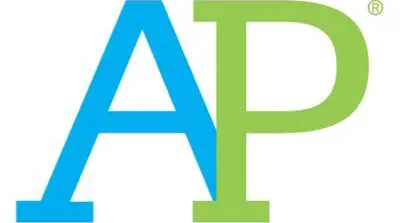
This course is designed to provide students with an understanding and knowledge of art from diverse historical and cultural contexts. Students examine the major forms of artistic expression (architecture, sculpture, painting and other art forms) with a major focus on Western Art. Particular focus is placed on the study of Non-Western art from a variety of cultures that allows students an understanding of those cultures and a point of comparison. Students will learn to recognize and analyze works of art critically, with intelligence and sensitivity through a variety of written and oral forms of communication. Additionally, they will engage in various activities and experiences designed to give students a greater depth of understanding (no formal art-making involved). This course leads to the AP Art History examination. Some additional course work may be required. Students are encouraged to write this Advanced Placement examination in May.
Evaluation: Term Work - 70 % Summative Evaluation - 30 %
Pre-Requisite: None
| LANGUAGE AND CULTURE |
|---|
LANGUAGE AND CULTUREThe Appleby Languages’ program focuses on developing students’ communicative competence through the four language skills of speaking, listening, reading, and writing. The Language and Culture Department consists of Arabic, French, German, Mandarin, and Spanish. Studying languages at Appleby is not only done through classroom instruction, it goes beyond the classroom. It cultivates vision and emphasizes Real-World application. Language teaching is done through meaningful and authentic activities, task-based instruction, content-based instruction, project-based learning and integrative approaches. Learning languages is an active process, and many strategies are used by Appleby language teachers that aim to develop students’ cognitive, metacognitive, social, affective and critical thinking skills. These skills help students to be equipped with 21st century skills. A highlight of the program is the Middle One International Languages course. Students explore a round robin comprised of Arabic, German, Mandarin, and Spanish. This introductory program focuses on the cultural aspects of the languages using basic conversational and communicative skills. French is a compulsory subject from Middle One to Upper One. Students are also required to take an additional international language of their choice in Upper One. In Upper Two, students continue to take at least one of the languages studied and may take an additional language if desired. A variety of assessments and evaluations such as proficiency assessments and performance tasks are conducted regularly to monitor students’ achievements and growth along with peer and teacher feedback to help students with their self-assessment and to establish goals and next step plans for their language acquisition. Exchanges - Students studying modern languages have the exceptional opportunity to participate in language-based exchange programs to China, France, Germany, Jordan, Spain, and South America. While totally immersing themselves in the language and the culture of the country, students follow a full program of studies at the host school. These exchanges greatly enhance the students’ fluency and comprehension. For more information on exchanges, see the section on International Programs under Academic Program. Certificates and Diplomas - Appleby college offers students a number of special certificates and diplomas such as the DELF (Diplôme d'études en langue française) by the French Ministry of National Education. Furthermore, students are encouraged to take the AP (Advanced placement examinations) and the NEWL (The National Examinations in World Languages) by the American Council on the Teaching of Foreign Languages. Further details can be found under Additional Certifications and Qualifications in the Academic Program section of the course. FRENCHAppleby offers two French programs with three streams. In both programs (core / extended), students will increase their understanding and appreciation of diverse French-speaking communities. Students in all levels will also develop a variety of skills necessary to become life-long language learners. Most begin at Middle One and continue through to Senior One/Senior Two. Depending on students' backgrounds and abilities when entering Appleby College, they may be considered into either program: the traditional core program (FSF) with a thorough grounding in French language skills and the extended program (FEF) for students with strong communication skills. When students complete the Grade 12 FEF4U course, they have the option of preparing for the Advanced Placement exam. The core French program provides two streams: regular or accelerated. In either stream, students develop communication skills, an understanding of how the language functions and a sensitivity to francophone cultures. The program offers a valuable educational experience by encouraging each student to achieve a functional command of French through literature study, grammatical structures and vocabulary. Classes are conducted, as much as possible, in the target language to develop communication skills. The extended French program gives students the opportunity to further their already strong background in the language. This extended and accelerated program focuses on strengthening communication, written and reading skills and broadening their already profound knowledge of francophone culture. In support of verbal communication, classes are conducted entirely in the target language. In Middle One, students can also enter into either the Core or the Extended program. In Middle Two, some students move into the Grade 9 program and in the following year advance to the Grade 10 equivalent. In either program, students are encouraged to participate in class and to present assignments, promoting class discussion and interaction. Assessments reflect the emphasis on verbal skills, and concentrate on language use, comprehension and understanding of culture and literature. Textbooks, supplementary readers and other media forms, including those electronically-based, complement and support grammatical and lexical acquisition as well as thematic expansion. Placement Test: All students who are entering the Ontario or the Canadian education system for the first time will be writing a placement test in order to determine the best course of action. MIDDLE ONE REQUIREDCore French - FSF7J Evaluation: Term Work - 100 % Extended French - FEF7J Evaluation: Term Work - 100 % MIDDLE TWO REQUIREDCore French - FSF8J Students expand their knowledge by applying their language skills in structured and open-ended oral and written texts; the past tense is the primary reference point for skill development. Students will continue to develop reading strategies as they read and respond to a variety of short authentic texts. Evaluation: Term Work - 100 % Core French - FSF1D8 Evaluation: Term Work - 70 % Summative Evaluation - 30 % Extended French - FEF1D Evaluation: Term Work - 70 % Summative Evaluation - 30 % UPPER ONE REQUIREDStudent must select one of the following courses. Core French, Open - FSF1O Evaluation: Term Work - 70 % Summative Evaluation - 30 % Core French - FSF1D Evaluation: Term Work - 70 % Summative Evaluation - 30 % Core French - FSF2D9 Evaluation: Term Work - 70 % Summative Evaluation - 30 % Extended French - FEF2D Evaluation: Term Work - 70 % Summative Evaluation - 30 % UPPER TWO REQUIREDCore French, Open - FSF2O Evaluation: Term Work - 70 % Summative Evaluation - 30 % Core French - FSF2D Evaluation: Term Work - 70 % Summative Evaluation - 30 % Core French - FSF3U Evaluation: Term Work - 70 % Summative Evaluation - 30 % Core French - FEF3U Evaluation: Term Work - 70 % Summative Evaluation - 30 % SENIOR ONE ELECTIVESCore French - FSF3U Evaluation: Term Work - 70 % Summative Evaluation - 30 % Core French - FSF4U Evaluation: Term Work - 70 % Summative Evaluation - 30 % Extended French - AP French Language and Culture - FEF4U This course further emphasizes the consolidation of communication skills required to interact in French for various purposes about concrete and abstract topics. Students will independently apply language learning strategies in a variety of real-life and personally relevant contexts in listening, speaking reading and writing, and will broaden their creative and critical thinking skills through responding to and analysing oral and written texts. Students will increase their knowledge of the French language through the study of Canadian and international French literature. They will also enrich their understanding and appreciation of diverse French-speaking communities, and will develop skills necessary for lifelong language learning. This course leads to the AP French Language and Culture examination. Some additional course work may be required. Students are encouraged to write this Advanced Placement examination scheduled in May. Evaluation: Term Work - 70 % Summative Evaluation - 30 % SENIOR TWO ELECTIVESCore French - FSF4U Evaluation: Term Work - 70 % Summative Evaluation - 30 % Extended French - AP French Language and Culture - FEF4U This course further emphasizes the consolidation of communication skills required to interact in French for various purposes about concrete and abstract topics. Students will independently apply language learning strategies in a variety of real-life and personally relevant contexts in listening, speaking reading and writing, and will broaden their creative and critical thinking skills through responding to and analysing oral and written texts. Students will increase their knowledge of the French language through the study of Canadian and international French literature. They will also enrich their understanding and appreciation of diverse French-speaking communities, and will develop skills necessary for lifelong language learning. This course leads to the AP French Language and Culture examination. Some additional course work may be required. Students are encouraged to write this Advanced Placement examination scheduled in May. Evaluation: Term Work - 70 % Summative Evaluation - 30 % INTERNATIONAL LANGUAGESMIDDLE ONE REQUIREDInternational Languages - LWM7J Evaluation: Term Work - 100 % In Upper One, students choose between Arabic, German, Mandarin or Spanish. In their first year of studying the language, they will explore aspects of the culture of countries or regions where the language is spoken including social customs, food, sports and leisure activities, popular festivals, and music. Although students will expand their vocabulary and knowledge of linguistic elements, the language they will use at this level will still be simple. In their second year, students will enhance their critical and creative thinking skills through reading diverse materials, and will explore a variety of personal and professional contexts in which knowledge of the language is required. In their final year, students will continue to refine and enhance their listening, speaking, reading, and writing skills in the language, with the goal of using these communication skills in a variety of personal, academic, and professional contexts. Native speakers will be placed in a course that is best suited for the language skills and abilities. ARABICLanguage is our principal means of communication. As societies around the world become more closely linked through advances in technology, the ability to communicate in more than one language becomes increasingly important. The Arabic program will allow students to acquire skills in the following four areas listening, speaking, reading and writing, with an emphasis placed on communication and culture. The program uses the modern Arabic (MSA), which is the language used in all contemporary Arabic publications as well as the language of the Arabic broadcast media. UPPER ONE ELECTIVEInternational Languages, Level 1 - Arabic - LYABD Evaluation: Term Work - 70 % Summative Evaluation - 30 % UPPER TWO ELECTIVEInternational Languages, Level 2 - Arabic - LYACU Evaluation: Term Work - 70 % Summative Evaluation - 30 % SENIOR ONE OR SENIOR TWO ELECTIVEInternational Languages, Level 3 - Arabic - LYADU Evaluation: Term Work - 70 % Summative Evaluation - 30 % GERMANThe German language program uses materials allowing for intensive practice of the basic language skills: listening, speaking, reading, and writing. It also provides insights into the customs of Germanic countries enabling students to understand and communicate with a native speaker. Students gain a positive attitude towards the language and acquire valuable insight into the function of language in society and its importance as a tool for communication. In order to benefit fully from the program, it is recommended that students remain in the course for three years. In this way, they are further exposed to the language and gain the opportunity to participate in exchanges or summer programs. As part of the PASCH program, Appleby students benefit from a series of events organized in collaboration with the Goethe Institute including exhibitions, poetry readings as well as a yearly scholarship to Germany during the summer. UPPER ONE ELECTIVEInternational Languages, Level 1 - German - LWGBD Evaluation: Term Work - 70 % Summative Evaluation - 30 % UPPER TWO ELECTIVEInternational Languages, Level 2 - German - LWGCU Evaluation: Term Work - 70 % Summative Evaluation - 30 % SENIOR ONE OR SENIOR TWO ELECTIVEInternational Languages, Level 3 - German - LWGDU Evaluation: Term Work - 70 % Summative Evaluation - 30 % MANDARINThe Chinese language is spoken by almost one fifth of the world population. As a prominent language of East Asia, Chinese language has greatly influenced the writing systems and vocabulary of the neighboring countries. When Chinese economy continues to grow stronger and stronger, Mandarin has become a very popular foreign language to study by people who envisage travelling or even working in China, Taiwan, or Singapore. Learning this language expands students’ knowledge and understanding of the traditional and modern China. Students will explore both the old and modern China via videos, music, foods, calligraphy, and computer programs for the Mandarin learners. UPPER ONE ELECTIVEInternational Languages, Level 1 Mandarin - LKMBD Evaluation: Term Work - 70 % Summative Evaluation - 30 % UPPER TWO ELECTIVEInternational Languages, Level 2 - Mandarin - LKMCU Evaluation: Term Work - 70 % Summative Evaluation - 30 % SENIOR ONE OR SENIOR TWO ELECTIVESInternational Languages, Level 3 - Mandarin - LKMDU Evaluation: Term Work - 70 % Summative Evaluation - 30 % International Languages, Level 3 - Mandarin - AP Chinese Language and Culture - LKMDUP This course provides extended opportunities for students to communicate and interact in Mandarin in a variety of social and academic contexts. Students will refine and enhance their listening, speaking, reading, and writing skills, as well as their creative and critical thinking skills, as they explore and respond to a variety of oral and written texts, including complex authentic and adapted texts. They will also broaden their understanding and appreciation of diverse communities where Mandarin is spoken, . and develop skills necessary for lifelong language learning. This course includes additional topics to prepare students for the AP Chinese Language and Culture examination. Some additional course work may be required. Students are encouraged to write this Advanced Placement examination scheduled in May. Evaluation: Term Work - 70 % Summative Evaluation - 30 % SPANISHAs one of the Romance languages, Spanish is descended from Latin. The Spanish language is not only relevant in the European context, but is also a crucial communication tool in the United States as well as South and Central America. It is of increasing importance in business and trade and is a means to explore a variety of Hispanic cultures all over the world. The Spanish program teaches four basic language skills (listening, speaking, reading, and writing), gradually leading to the complexities of analysis, nuances of the language, and discussions of authentic and pressing world issues of the Hispanic culture. UPPER ONE ELECTIVEInternational Languages, Level 1 - Spanish - LWSBD Evaluation: Term Work - 70 % Summative Evaluation - 30 % UPPER TWO ELECTIVEInternational Languages, Level 2 - Spanish - LWSCU Evaluation: Term Work - 70 % Summative Evaluation - 30 % SENIOR ONE OR SENIOR TWO ELECTIVEInternational Languages, Level 3 - Spanish - LWSDU Evaluation: Term Work - 70 % Summative Evaluation - 30 % |
| SOCIAL SCIENCE |
|---|
SOCIAL SCIENCEThe study of Social Sciences is an integral part of the Appleby curriculum. In the early years, classes aim to develop an awareness of the wider community, an imaginative interest in the past and a respect for the relationship between people and their environments. Progressively, the students are introduced to Canadian heritage and geography, religion and spirituality, and a host of optional subjects. Students take courses in geography, history and religion, and can choose electives in accounting, business, economics, philosophy, psychology, law and political science. Students are taught increasingly sophisticated analytical and critical-thinking skills, with particular emphasis on effective research and writing-methods into all levels of study. The Social Science department focuses on teaching research skills and scaffolding this skill development through each grade level. Courses focus on a breadth of knowledge and understanding, while encouraging students to explore topics in-depth with their own independent research. Social Sciences concern individuals and groups making choices in the context of evolving circumstances and ongoing environmental challenges. In this way, students become empathetic to the complexities of human experience, both past and present. Programs place a particular emphasis on teaching an appreciation for the students' roles and responsibilities in Canadian life and the development of a strong global perspective. MIDDLE ONE REQUIREDSocial Science - HSC7J In Grade 7 geography, students will explore opportunities and challenges presented by the physical environment and the ways in which people around the world have responded to them. They will develop an understanding of patterns in Earth’s physical features and of the physical processes and human activities that create and change these features. Building on their knowledge of natural resources, students will study the extraction/harvesting and use of these resources on a global scale. They will examine the relationship between Earth’s physical features and the distribution and use of natural resources while exploring ways of preserving global resources. In this grade, students will be introduced to the geographic inquiry process and to the concepts of geographic thinking. They will apply the concept of geographic perspective while investigating the impact of natural events and human activities on the physical environment and also various effects of natural resource extraction/harvesting and use. Students will continue to develop their spatial skills, extracting and analysing information from a variety of sources, including different types of maps and graphs, photographs and digital representations, and geographic information systems (GIS). Evaluation: Term Work - 70 % Summative Evaluation - 30 % MIDDLE TWO REQUIREDSocial Science - HSC8J In Grade 8 geography, students will build on what they have learned in earlier grades about Earth’s physical features and processes in order to explore the relationship between these features/processes and human settlement patterns around the world. They will focus on where people live and why they live there, and on the impact of human settlement and land use on the environment. They will enhance their ability to apply a geographic perspective to their investigation of issues, including issues related to human settlement and sustainability and to global development and quality of life. In addition, students will study factors that affect economic development and quality of life on a global scale and will examine responses to global inequalities. Students will be introduced to new types of maps and graphs, including choropleth maps, scatter graphs, and population pyramids, and, at the same time, will continue to develop their ability to use a variety of sources, tools, and spatial technologies to study various geographic issues. Evaluation: Term Work - 70 % Summative Evaluation - 30 % UPPER ONE REQUIREDExploring Canadian Geography - CGC1W Prerequisite: None UPPER TWO REQUIREDCanadian History since World War I - CHC2D Evaluation: Term Work - 70 % Summative Evaluation - 30 % Civics and Citizenship - CHV2O5 Evaluation: Term Work - 70 % Summative Evaluation - 30 % World Religions and Belief Traditions: Perspectives, Issues and Challenges - HRT3M5 Evaluation: Term Work - 70 % Summative Evaluation - 30 % SENIOR ONE REQUIREDStudents must select at least one of the following five options. Canadian and World Issues: A Geographic Analysis - AP Human Geography - CGW4U In this course, students will address the challenge of creating a more sustainable and equitable world. They will explore issues involving a wide range of topics, including economic disparities, threats to the environment, globalization, human rights, and quality of life, and will analyse government policies, international agreements, and individual responsibilities relating to them. Students will apply the concepts of geographic thinking and the geographic inquiry process, including the use of spatial technologies, to investigate these complex issues and their impacts on natural and human communities around the world. This course leads to the AP Human Geography examination. Some additional course work may be required. Students are encouraged to write this Advanced Placement examination scheduled in May. Evaluation: Term Work - 70 % Summative Evaluation - 30 % Challenge and Change in Society - HSB4U Evaluation: Term Work - 70 % Summative Evaluation - 30 % The Environment and Resource Management - CGR4M Evaluation: Term Work - 70 % Summative Evaluation - 30 % Canada: History, Identity, Culture - AP United States History - CHI4U This course traces the history of Canada, with a focus on the evolution of our national identity and culture as well as the identity and culture of various groups that make up Canada. Students will explore various developments and events, both national and international, from precontact to the present, and will examine various communities in Canada and how they have contributed to identity and heritage in Canada. Students will investigate the development of culture and identity, including national identity, in Canada and North America, and how and why they have changed throughout history. They will extend their ability to apply the concepts of historical thinking and the historical inquiry process, including the interpretation and analysis of evidence, as they investigate the people, events, and forces that have shaped Canada and North America. The course leads to the AP United States History examination, with additional course work and preparation. Students are encouraged to write this Advanced Placement examination scheduled in May. Evaluation: Term Work - 70 % Summative Evaluation - 30 % SENIOR ONE ELECTIVESFinancial Accounting Fundamentals - BAF3M Evaluation: Term Work - 70 % Summative Evaluation - 30 % Business Leadership: Management Fundamentals - BOH4M Evaluation: Term Work - 70 % Summative Evaluation - 30 % SENIOR TWO ELECTIVESAnalysing Current Economic Issues - AP Macroeconomics - CIA4U This course examines current Canadian and international economic issues, developments, policies, and practices from diverse perspectives. Students will explore the decisions that individuals and institutions, including governments, make in response to economic issues such as globalization, trade agreements, economic inequalities, regulation, and public spending. Students will apply the concepts of economic thinking and the economic inquiry process, as well as economic models and theories, to investigate, and develop informed opinions about, economic trade-offs, growth, and sustainability and related economic issues. This course leads to the AP Macroeconomics examination. Some additional course work may be required. Students are encouraged to write this Advanced Placement examination schedule in May. Evaluation: Term Work - 70 % Summative Evaluation - 30 % Canadian and International Politics - CPW4U Evaluation: Term Work - 70 % Summative Evaluation - 30 % Canadian and International Law - CLN4U Evaluation: Term Work - 70 % Summative Evaluation - 30 % International Business Fundamentals - BBB4M Evaluation: Term Work - 70 % Summative Evaluation - 30 % Financial Accounting Principles - BAT4M Evaluation: Term Work - 70 % Summative Evaluation - 30 % Human Development throughout the Lifespan - AP Psychology - HHG4M This course offers a multidisciplinary approach to the study of human development throughout the lifespan. Students will learn about a range of theoretical perspectives on human development. They will examine threats to healthy development as well as protective factors that promote resilience. Students will learn about physical, cognitive, and social-emotional development from the prenatal period through old age and will develop their research and inquiry skills by investigating issues related to human development. This course leads to the AP Psychology. Some additional course work may be required. Students are encouraged to write this Advanced Placement examination scheduled in May. Evaluation: Term Work - 70 % Summative Evaluation - 30 % Philosophy: Questions and Theories - HZT4U Evaluation: Term Work - 70 % Summative Evaluation - 30 % World History since the Fifteenth Century - AP World History - CHY4U This course traces major developments and events in world history since approximately 1450. Students will explore social, economic, and political changes, the historical roots of contemporary issues, and the role of conflict and cooperation in global interrelationships. They will extend their ability to apply the concepts of historical thinking and the historical inquiry process, including the interpretation and analysis of evidence, as they investigate key issues and ideas and assess societal progress or decline in world history. This course leads to the AP World History examination. Some additional course work may be required. Students are encouraged to write this Advanced Placement examination scheduled in May. Evaluation: Term Work - 70 % Summative Evaluation - 30 % Equity and Social Justice: From Theory to Practice – HSE4M Evaluation: Term Work - 70 % Summative Evaluation - 30 % |
| GUIDANCE |
|---|
GUIDANCEThe Guidance program is integrated into the Appleby College Blue Time and advisor program at all grade levels and are a combination of credit and non-credit course offerings. Most guidance courses are non-credit but are mandatory at all grade levels. Non-credit courses are offered in Upper One to Senior Two and are delivered to students, in their advisor groupings, giving them an additional time each week to meet and connect with their fellow advisees and advisors. Optional guidance courses are available in Senior One for those students interested in applying to universities in the US and UK. Each guidance course promotes a strength-based approach to support students from an academic, social and emotional perspective. Course content at each level connects to one of four themes: awareness of self and others, learning strategies, having a growth mindset towards change and future planning. All of this is aimed to promote success and wellbeing at school as well as post-secondary preparedness. Grade 10 Career Studies is an Ontario diploma requirement and offered as a half-credit academic course through the guidance program. Other credit courses are offered by recommendation through the learning strategies stream. UPPER ONE ELECTIVELearning Strategies 1: Skills for Success in Secondary School - GLE1O Evaluation: Term Work - 70% Summative Evaluation - 30% Learning Strategies 1: Skills for Success in Secondary School - GLS1O UPPER TWO REQUIREDCareer Studies - GLC2O5 Evaluation: Term Work - 70 % Summative Evaluation - 30 % UPPER TWO ELECTIVE - BY RECOMMENDATION ONLYLearning Strategies 1: Skills for Success in Secondary School - GLE2O Evaluation: Term Work - 70% Summative Evaluation - 30% SENIOR ONE/SENIOR TWO ELECTIVEAdvanced Learning Strategies: Skills for Success After Secondary School – GLE3O/4O Evaluation: Term Work - 70% Summative Evaluation - 30% Advanced Learning Strategies: Skills for Success After Secondary School – GLS4O |
| HEALTH AND PHYSICAL EDUCATION |
|---|
HEALTH AND PHYSICAL EDUCATIONThe Health and Physical Education Department academic course offerings are a combination of physical education, health education and outdoor education. Physical education plays a major role in the development of the complete individual. The aim of the health and physical education department is to ensure students have healthy minds and bodies. Health and physical education give students a platform with which to develop lifelong health and fitness learning. Students are provided with opportunities to improve their personal fitness and movement competencies, while simultaneously developing an understanding of healthy living principles. Students are encouraged to develop and maintain a high level of physical fitness and a healthy active lifestyle, developing values and social skills consistent with school philosophy at Appleby College. In the early years, students develop their gross and fine motor skills through a variety of team games, aquatics, dual and individual sports. Selected activities reinforce present and future athletic and leisure values and provide opportunity for self-expression, enjoyment and skill development. Students develop social skills and attitudes including independence, responsibility, leadership, co-operation, sportsmanship and an appreciation of the capabilities and limitations of self and others. Age-appropriate health topics are studied in each course. Students enjoy access to Appleby College's athletic facilities including the playing fields, gymnasium, climbing wall, squash courts, tennis courts, weight training room, cardio room, pool and arena. The outdoor education program is an experiential-based approach to self-discovery, leadership and environmental mindfulness. The program emphasis is on outdoor skills, fitness and leadership skills, which complement and enrich the students’ health and physical education curriculum. MIDDLE ONE REQUIREDHealthy Active Living Education - PED7J Evaluation: Term Work - 85 % Summative Evaluation - 15 % MIDDLE TWO REQUIREDHealthy Active Living Education - PED8J Evaluation: Term Work - 85 % Summative Evaluation - 15 % UPPER ONE REQUIREDHealthy Active Living Education - PPL1O Evaluation: Term Work - 70 % Summative Evaluation - 30 % UPPER TWO ELECTIVEHealthy Active Living Education - PPL2O Evaluation: Term Work - 70 % Summative Evaluation - 30 % Healthy Living and Personal and Fitness Activities - PAF2O Evaluation: Term Work - 70 % Summative Evaluation - 30 % SENIOR ONE ELECTIVESHealthy Active Living Education - PPL3O Evaluation: Term Work - 70 % Summative Evaluation - 30 % Healthy Living and Personal and Fitness Activities - PAF3O Evaluation: Term Work - 70 % Summative Evaluation - 30 % Recreation and Healthy Active Living Leadership - PLF4MN Evaluation: Term Work - 70 % Summative Evaluation - 30 % Recreation and Heathy Active Living Leadership - PLF4MR Evaluation: Term Work - 70 % Summative Evaluation - 30 % SENIOR TWO ELECTIVESIntroductory Kinesiology - PSK4U Evaluation: Term Work - 70 % Summative Evaluation - 30 % Healthy Living and Outdoor Activities - PAD4O Evaluation: Term Work - 70 % Summative Evaluation - 30 % Healthy Living and Personal and Fitness Activities - PAF4O Evaluation: Term Work - 70 % Summative Evaluation - 30 % OUTDOOR EDUCATION/NORTHWARD BOUNDAppleby College’s Outdoor Education program strives to introduce and immerse our students into a total experiential learning environment. Leadership and Outdoor Education are the structural components of the experience-based curriculum that lend to the enrichment of our student body, faculty and community. Vital life skills such as, self-confidence, resiliency, understanding relationships, personal growth and a dedicated responsibility toward our local and global communities, as well as our planet, are developed by using the medium of the out-of-doors. Challenging our students in settings and situations inherent to the program’s activities provides the opportunities to practice these skills under the guidance of qualified instructors. Activities include high-ropes, rock-climbing, canoe tripping, wilderness living and navigation, leadership training, environmental awareness, and winter camping. A delivered balance between technical knowledge and direct experiences is introduced in order to strengthen and develop each student’s future endeavours. Participation in the Upper One Fall trip and the Upper Two Winter trip are required components of the Appleby College Diploma. UPPER ONE REQUIREDUpper One Outdoor Education - PPL1N Upper Two Outdoor Education - PPL2N |
| ELEARN |
|---|
ELEARN COURSESeLearning Consortium Canada (ELCC) is a community of independent school educators dedicated to innovation and 21st Century learning. As a member of ELCC, Appleby has approved eLearning courses listed below for our students. The following exceptions apply. With approval from the Guidance Department, Senior One and Senior Two students can enroll in one online course through ELCC to meet course load requirements. This course can replace an elective option but cannot replace a required course or a restricted elective course. SENIOR ONE ELECTIVEIntroduction to Anthropology, Psychology, & Sociology Online Course - HSP3Ue Evaluation: Term Work - 70 % Summative Evaluation - 30 % SENIOR TWO ELECTIVEEarth and Space Science Online Course - SES4Ue Evaluation: Term Work - 70 % Summative Evaluation - 30 % |
Co-Curricular Program
| CO-CURRICULAR SELECTION |
|---|
|
Appleby's Co-curricular Program develops the whole student, through a strong academic curriculum and required participation in athletics, arts, service and residential life programs. Appleby broadens the experiences of its students through a comprehensive co-curricular program. The school ensures each student encounters valuable experiences in all these areas, providing a solid foundation for life beyond the Appleby gates. Students learn to appreciate a wide variety of activities, and are exposed to experiences they may not have otherwise considered. CO-CURRICULAR SELECTIONAll students select co-curricular options at the beginning of each co-curricular season (Fall, Winter and Spring). The final deadline for changing these options is two weeks following the start of each new season. All offerings in the co-curricular program are subject to sufficient enrolment. Students will be notified by the school in the case of a choice not being offered to allow selection of another program. EXEMPTIONSThe requirements for each school level are outlined in the following sections. There may be special circumstances where a student may ask for an alternative plan. Several examples follow:
Exemption forms are emailed to students the beginning of September or may be requested from the Assistant Head of School, Student Life. Complete details of the alternative activity are required including hours, place and name of the external supervisor. The committee will review any requests and will respond before the start of the school year. Exemption forms are also considered two weeks before the commencement of a new term of co-curricular activities. Students should fill out the form completely and email it to the Assistant Head of School, Student Life. Exemptions must be approved before students can stop attending their Appleby co-curricular activity. If a student wishes to do all Athletics (competitive teams only) in Upper One to Senior Two they must meet with the Assistant Head of School, Student Life and if they meet the requirements they will be given special permission to not complete their two terms of arts or service. AWARDSOutstanding student achievement in the co-curricular program is recognized through special awards. Colours are awarded each reporting period to students who demonstrate outstanding performance and leadership in competitive athletics, arts or service. Students are nominated by their faculty supervisor and are presented with a Colours tie and permitted to wear the Colours jacket. The criteria for being awarded Colours are as follows:
|
| MIDDLE SCHOOL |
|---|
MIDDLE SCHOOL CO-CURRICULARSMiddle School students are introduced to Appleby's co-curricular program through a variety of sports, arts and service activities offered throughout the school day. Students choose from a number of age and skill-appropriate teams. They are introduced to the service program, with many opportunities both inside and outside the school. The Middle School co-curricular program allows students to explore new interests and develop their skills. It also prepares students for the rigours of the full Upper and Senior School program. At the Middle School athletics level, coaches encourage the development of basic skills, good sportsmanship and teamwork. Students have numerous opportunities to participate and are carefully guided through new competitive challenges appropriate to their ability levels and developmental stages. Athletes on U14 teams have an opportunity to receive Middle School Colours at the end of each season for excellence in performance, commitment and leadership. For the most part, athletic activities take place during school hours but students may have the option to try out for some Upper-level athletics not offered to their age group. Minimum Requirements:
|
| UPPER SCHOOL |
|---|
UPPER SCHOOL CO-CURRICULARSAppleby's co-curricular requirements change substantially from the Middle to Upper School. Upper One students have the option to pursue Arts or Service co-curriculars of their choosing as long as they participate in a minimum of six Athletics co-curriculars before concluding their Senior Two year. Competitive and instructional sports take place after school each day (except Fridays) and some Saturdays. Clubs run on Monday lunch (leadership clubs only) and Wednesday during “community block” time. The students' service commitment also increases to 25 20 hours. Students can complete their service either through school activities or outside the school. A wide variety of teams, clubs and activities are available to suit the students' interests and to help them achieve their co-curricular requirements. Students in Upper One to Senior Two may apply to do all ATHLETICS for all of their co-curricular terms pending approval from the Assistant Head of School, Co-curricular Programs based on meeting the parameters for this exception. Minimum Requirements:
appleby college diploma requirements Exemptions: Application forms for exemption from any of the above requirements are to be submitted to the Assistant Head of School, Student Life. |
| SENIOR SCHOOL |
|---|
SENIOR SCHOOL CO-CURRICULARSLiving in residence is a requirement for Senior Two students, where a Boarding Life program is delivered. Requirements:
appleby college diploma requirements Exemptions - Application forms for exemptions from any of the above requirements should be submitted to the Assistant Head of School, Student Life. |
Co-Curricular Descriptions
| ARTS CO-CURRICULAR |
|---|
ARTSWith numerous arts options available for students, Appleby presents students with opportunities to excel in dance, drama, music, visual arts and the liberal arts. Middle School students are exposed to Appleby’s arts programs through the academic curriculum with required involvement in visual arts and music. Arts offerings expand in the Upper and Senior Schools. Upper School students are required to participate in at least one arts club and Senior students must take at least one reporting period of arts or service. Today, in order to be successful, people must be able to be versatile, critical thinkers, researchers, creative developers, resourceful problem-solvers, technology savvy marketers, independent workers or team players, innovators, philosophers and pragmatists. They should be prepared for constant change and upheaval while able to adjust instantly and flexibly to a new set of parameters or requirements. They must have confidence, creativity and a strong attention to detail. The intrinsic value of arts education is that it cultivates the whole student. In addition to advancing creative skills, arts education also encourages the development of essential attitudes, characteristics and intellectual abilities such as reasoning, creativity, dexterity, problem solving and teamwork. At Appleby, we teach that the arts have meaning beyond the aesthetic they are relevant courses of study applicable in many aspects of life. Art is everywhere in life, and being able to understand and appreciate it adds to living life completely. More directly, the arts encompass a multitude of professions, and students can use what they learn at Appleby throughout higher educational levels and make a valuable contribution to society. Senior School students are required to take one reporting period of Arts or Service. Activities are open to all students, unless listed “audition.” The diamond mark FALLAC Rocks! (Audition) Do you want to be part of the next big musical adventure at Appleby? Then this co-curricular is for you! AC Rocks is a high level performance ensemble open to the following instrumentation: drums, bass guitar, electric guitar, piano/keyboards, saxophone, trumpet and trombone. We will also have spots for up to 8 vocalists (all vocal ranges are needed) who are comfortable singing a range of vocal styles. AC Rocks will perform a varied repertoire of jazz, Latin, rock, R & B, gospel, blues and funk, all musicians must be experienced and able to hold their own parts and sing as soloists as well as members of an ensemble. Appleby College Leadership Conference (ACLC) “ACLC” is modeled on the BOLD conference at Harvard where students collaborate as a business team to develop a business conference for peers and peer schools. Students learn diverse business practices and teamwork as they focus on responsibility, logistics, operations, management and social responsibility. This learning continues into the culminating project of the conference itself, held shortly after the co-curricular finishes. ACTV/Broadcasting Appleby’s Broadcasting Club is a weekly tribute to the spoken and written word, giving voice to aspiring writers, speakers, musicians and thinkers. It is designed as a giving back to our community, embracing the Residential Life Program with the international flavour of our student body. The show features the segments of news, fiction, a variety of poetry and rap, a section called "Did you know...?" as well as humour and comedy in addition to a "Guess What's Happening on Campus" section, punctuated by lots of music. Advanced Portfolio Development The Advanced Portfolio Development Co-curricular provides a tailored experience for students aiming to develop their art portfolios in preparation for university art school applications. In this co-curricular, students work towards their own personal and artistic goals, receiving one-on-one mentorship from faculty who guide them through the intricacies of preparing an exceptional portfolio. This includes researching programming and addressing specific art school requirements, photographing their work, writing insightful artist statements, and preparing for interviews. Additionally, participants benefit from "master class" workshops led by guest artists, offering exposure to advanced techniques and perspectives. This comprehensive approach ensures that students not only develop a polished and compelling portfolio but also gain confidence and readiness for their future artistic and professional pursuits. Argus Appleby’s school yearbook requires students with graphic design, editorial, digital design or photography skills. Besides the arts credit, service hours, up to 25 hours, may be granted for work beyond the one hour per week minimum commitment. Computer Graphics & Digital Animation This co-curricular offers students the opportunity to experience the world of computer graphics and digital animation, using programs such as Flash and Photoshop and experimenting with scanning and photography. No artistic ability necessary – just creative curiosity! Debating Aimed at students who would like to practice and perfect their Debating and Public Speaking skills, students are provided with the opportunity to work closely with experienced coaches. With curriculum developed for individual student needs, those already involved in Debating competitions will have the opportunity to enhance existing skills, while those new to the discipline will learn the basics. Meeting two hours a week, students aiming to become members of the Provincial and National Debating and Public Speaking Teams will benefit from individual coaching and additional practice. Topics covered include Parliamentary and Cross-Examination Debating, Persuasive, Extemporaneous, After Dinner and Impromptu Speaking, Dramatic and Interpretive Reading and Radio Newscast. No experience necessary and students of all levels welcome. Middle School Robotics Designed using the First Lego League (FLL) concept, this co-curricular introduces Middle School students to elements of research, engineering, mechatronics, and coding through a thematic and team-based learning approach. Students may compete against other schools in late fall and winter. Public Speaking The Public Speaking co-curricular offers an opportunity for students to engage in a variety of rhetorical situations. These include persuasive speaking, after dinner speaking, dramatic reading, radio newscasts, political speeches and many others. Students will learn perspective, critical thinking, strategy and improv, and curate messages for different audiences. School Newspaper The school newspaper blends thoughtful journalism with a creative and often humorous voice. The paper will include coverage of Appleby’s sports, arts and service events, columns – sometimes serious, often comedic, and occasionally even downright silly - on the day-to-day lives of Appleby students, and various cartoons, crosswords, Sudokus, horoscopes and advice columns, all focused on the Appleby experience. Reporters, writers, artists and designers are all welcome to help report on what life is really like at Appleby College. Studio Art Students in this co-curricular have the opportunity to further hone their skills in the areas of drawing, painting, mixed media, and more. Students will design their approach to the work they wish to create. They may also develop work for their portfolios as well as developing their technical skills while their semestered academic Visual Arts course is not in session. VEX Robotics The VEX Robotics co-curricular gives students the opportunity to explore the world of robotics through the building, programming, and testing their own robots. Specifically, students learn about what makes robots tick, from the actual nuts-and-bolts of robotics to the math, science and culture behind them. The VEX model is followed, though in a non-competitive setting. Visual Novel An imaginative artistic experience where students create storylines and illustrations in digital space to create a dynamic media product. Students work collaboratively through all stages of the writing and design process learning critical thinking, communication, and teamwork. WINTERACMUN/Model UN Students work to understand the principles of the United Nations parliamentary procedure, build debating skills, and develop public speaking confidence so that members may become more socially aware and engaged. The co-curricular utilizes interactive games to help students hone these skills in a fun and exciting way. Students are encouraged to participate in multiple official events including ACMUN which may take place virtually this school year. Argus Appleby’s school yearbook requires students with graphic design, editorial, digital design or photography skills. Besides the arts credit, service hours, up to 25 hours, may be granted for work beyond the one hour per week minimum commitment. Debating Aimed at students who would like to practice and perfect their Debating and Public Speaking skills, students are provided with the opportunity to work closely with experienced coaches. With curriculum developed for individual student needs, those already involved in Debating competitions will have the opportunity to enhance existing skills, while those new to the discipline will learn the basics. Meeting four hours a week, students aiming to become members of the Provincial and National Debating and Public Speaking Teams will benefit from individual coaching and additional practice. Topics covered include Parliamentary and Cross-Examination Debating, Persuasive, Extemporaneous, After Dinner and Impromptu Speaking, Dramatic and Interpretive Reading and Radio Newscast. No experience necessary and students of all levels welcome. Mock Trial The Mock Trial Co-Curricular offers students a unique opportunity to immerse themselves in the legal realm, develop critical thinking skills, and hone their public speaking abilities. By taking on the role of one side in legal case simulations in a friendly but adversarial context, students bring the law to life as well as grow capacities such as marshalling arguments and agility of thought. This all happens in a warm and supportive environment. Additionally, there may be an opportunity to partake in outside competitive tournament(s). School Play Students have the opportunity to be involved in the cast, crew, or pit band when they sign up or audition for the school play. Through the term, students will experience dramatic growth in their skills as they tackle the challenges of putting on a high-caliber production of a musical at a professional facility: the Oakville Centre for Performing Arts. Stand Up Come Students have the opportunity to be involved in the cast, crew, or pit band when they sign up or audition for the school play. Through the term, students will experience dramatic growth in their skills as they tackle the challenges of putting on a high-caliber production of a musical at a professional facility: the Oakville Centre for Performing Arts. Middle School Robotics Designed using the First Lego League (FLL) concept, this co-curricular introduces Middle School students to elements of research, engineering, mechatronics, and coding through a thematic and team-based learning approach. Students may compete against other schools in late fall and winter. School Newspaper The school newspaper blends thoughtful journalism with a creative and often humorous voice. The paper will include coverage of Appleby’s sports, arts and service events, columns – sometimes serious, often comedic, and occasionally even downright silly - on the day-to-day lives of Appleby students, and various cartoons, crosswords, Sudokus, horoscopes and advice columns, all focused on the Appleby experience. Reporters, writers, artists and designers are all welcome to help report on what life is really like at Appleby College. Middle School Studio Music Students in this co-curricular have the opportunity to play in a group setting and further hone their practical playing skills. Focus will be placed on those instruments that can be played safely and with physical distancing. Students will be grouped by skill level and/or music interest. VEX Robotics The VEX Robotics co-curricular gives students the opportunity to explore the world of robotics through the building, programming, and testing their own robots. Specifically, students learn about what makes robots tick, from the actual nuts-and-bolts of robotics to the math, science and culture behind them. The VEX model is followed, though in a non-competitive setting. SPRINGAC Rocks! (Audition) Do you want to be part of the next big musical adventure at Appleby? Then this co-curricular is for you! AC Rocks is a high level performance ensemble open to the following instrumentation: drums, bass guitar, electric guitar, piano/keyboards, saxophone, trumpet and trombone. We will also have spots for up to 8 vocalists (all vocal ranges are needed) who are comfortable singing a range of vocal styles. AC Rocks will perform a varied repertoire of jazz, Latin, rock, R & B, gospel, blues and funk, all musicians must be experienced and able to hold their own parts and sing as soloists as well as members of an ensemble. Argus Appleby’s school yearbook requires students with graphic design, editorial, digital design or photography skills. Besides the arts credit, service hours, up to 25 hours, may be granted for work beyond the one hour per week minimum commitment. Podcast & AC Oral History The Appleby Podcast is a weekly 25-minute show offering music, interviews, school stories and editorials including oral histories - firsthand stories that will be gathered by conducting interviews with individuals who have observed or have been part of Appleby's history. The focus is to collect and preserve that individual’s first-hand information and make it available to future students/alumni/employees/families through audio recordings, interview questions and notes. The podcast will broadcast each Friday at 8:00 a.m. The co-curricular will provide students with an opportunity to plan, write, edit, produce, and broadcast a weekly podcast. It will also serve as a preservation tool for future generations and to help enrich stories of the past. School Newspaper The school newspaper blends thoughtful journalism with a creative and often humorous voice. The paper will include coverage of Appleby’s sports, arts and service events, columns – sometimes serious, often comedic, and occasionally even downright silly - on the day-to-day lives of Appleby students, and various cartoons, crosswords, Sudokus, horoscopes and advice columns, all focused on the Appleby experience. Reporters, writers, artists and designers are all welcome to help report on what life is really like at Appleby College. Film Studies Film studies is designed to ignite students' passion for movies and deepen their understanding of film as an art form. This program invites students to embark on a cinematic journey through various genres and historical periods, providing a comprehensive exploration of how film has evolved and influenced society. After each screening, discussions analyze key elements of film, including narrative structure, character development, cinematography, and thematic content. Middle School Play The Middle School Play alternates between producing plays and musicals. Students involved in this activity can audition to be part of the cast or sign up to be part of the crew. They work closely with faculty and Senior Student Leaders to put on their production in Willis Hall. Sculpture The Sculpture Co-curricular offers students a dynamic way to explore art through three-dimensional forms, enhancing a student’s spatial awareness and creativity. We explore a variety of media and techniques, such as hand-built and wheel-thrown ceramics, producing a rich array of functional and aesthetic objects. The process of sculpting involves a certain level of risk-taking, as students navigate the unpredictability of materials and methods, leading to unexpected discoveries and innovative solutions. This hands-on co-curricular not only fosters artistic growth but also promotes resilience and problem-solving skills. Beyond the technical benefits, the Sculpture Co-curricular infuses learning with an element of fun, allowing students to express themselves in new and exciting ways while collaborating with peers and celebrating their creative achievements. |
| ATHLETICS CO-CURRICULARS |
|---|
ATHLETICSWhether through competitive teams or instructional sports, participation in athletics is a key component of the Appleby program. Athletics develops physical fitness, athletic skills, school pride, teamwork and a sense of fair play. Students participate in age- and skill-appropriate activities and enjoy access to quality facilities and programs. Beginning in Middle School, students are exposed to a wide variety of activities, giving them an opportunity to try new sports. In Upper and Senior School, students continue to develop sport-specific skills and work towards representing Appleby at the Senior level. The Appleby Athletics program is a well-known and highly valued aspect of the student's co-curricular life. Staffed by enthusiastic and well-trained coaches, this program provides every individual with an enormous variety of dynamic and exciting sports experiences. Students must try out for all competitive teams and players who show leadership or exceptional skills are eligible to receive school Colours on teams marked Evaluation of each student occurs at the end of each reporting period and coaches prepare a sports report which is included in the final report card. Appleby athletics is viewed as an integral part of students' holistic development. As such, Appleby strives to ensure that students have the chance to explore and fully develop their physical, social and emotional potential throughout the years in the program. Competitive teams compete in the following leagues: FALLCOMPETITIVE Girls Basketball Individual skill development and team strategies are emphasized at all levels with increasing complexity. All three teams compete in the CISAA league with the other area independent schools. Our basketball teams have the opportunity to participate in tournaments within the independent school system and throughout the Greater Toronto Area. An average week will consist of three to four practices with the possibility of one to two games. Co-ed Cross-Country Appleby’s Cross-Country programme is enhanced by the natural training grounds which surround the school. Emphasis is placed on personal goal-setting, race strategies and training both the mind and the body for successful performance. At the Senior level, runners have the opportunity to advance to the OFSAA championships through the CISAA finals. Girls Field Hockey At the U14 level, the girls are introduced to basic skills and fundamentals and develop a better understanding of the sport. The Senior Division 2 team consists of both Junior and Senior aged students and compete in a lower Senior division. At this level, development is still the primary objective and students continue to build upon their skills that were first introduced in Middle School. Games and practices run throughout the week, including Saturdays. Typically, at the Senior Division 1 level, our athletes have risen through the ranks (U14, Junior or Senior Division 2); some girls have also started to play in external leagues in the area, and at the provincial level. The coaching focus is to improve upon existing skills and fitness and to further develop field positioning and game strategies. Although there is a strong emphasis on competition, this should not detract from those individuals that are interested in trying Field Hockey for the first time. Boys Soccer The program begins at the Middle One level when every student is introduced to fundamental skills during physical education classes. Boys have an opportunity to play on the school teams at all levels. In each successive year fundamentals are reviewed with an increasing emphasis on technique, skill, speed and team strategy. All teams compete in the CISAA league and participate in local tournaments. Senior team players devote time to specific skills and fitness training as part of their practice. Boys Volleyball At the U14 level, students are introduced to fundamentals of the game. The emphasis is placed on positional play and skill development. At the Junior level, skill development is still stressed and an introduction to systems, attacking and blocking are developed. At the Senior Division 1 level, the athletes are molded into a competitive team. The Senior team will place a greater emphasis on competition, while still developing the ability to use the skills acquired effectively. Teams compete in the CISAA and can participate in tournaments throughout the Greater Toronto Area. FITNESS / INSTRUCTIONAL Fitness Training - Co-ed Students taking Fitness Training will learn about making informed, healthy lifestyle choices. By working on their endurance and strength in the Appleby fitness centre, students will improve their level of fitness. Exercise equipment includes treadmills, elliptical machines, stationary bikes and weight machines. Sound nutritional information will be discussed as it relates to students' level of fitness. Many students use this co-curricular to improve or maintain conditioning for an upcoming sport. Intermediate Run - Co-ed The Intermediate Run Group makes it possible for both elite and recreational runners to improve their overall conditioning and endurance. The group also affords runners the chance to learn how to run for fun and fitness. Morning Fitness The general morning fitness program is aimed to get students active prior to the start of the academic day and takes a multi-faceted approach to fitness. There will be a focus on cardio, flexibility, core strength and functional movement. Each week students will participate in four different workouts ranging from a spinning session to 'boot camp' style classes with functional movement activities, a cardio interval training day focusing on core development and a day for running. This fitness program is open to students of all fitness levels and is designed to have something to interest the experienced athlete, beginner exerciser and everyone in between. The goal of the program is to increase the fitness level of all participants and encourage a lifelong interest in fitness. Novice Run - Co-ed The Novice Run Group is an enjoyable and positive way for students to become heart healthy outdoors any time of the year. One of the great benefits of walking/running is that it is a total body activity. Research indicates that walking even 30 minutes a day can benefit your heart, increase your lifespan, help you control weight and diabetes, prevent disease and improve your mood. Squash (Instructional) - Co-ed Students, no matter their ability, improve their racquet skills and knowledge of the game in a fun and non-competitive atmosphere. Towards the end of the term, students can participate in and officiate a fun-spirited tournament. Tennis (Instructional) - Co-ed The instructional tennis program is geared to students who have little or no background in tennis. Students are taught basic tennis skills as well as methods of scoring, rules of the game and basic tactics for doubles play. Students will also compete in some modified games to apply their new skills. WINTERCOMPETITIVE Boys Basketball Individual skill development and team strategies are emphasized at all levels with increasing complexity. All three teams compete in the CISAA league against the other area independent schools. Our basketball teams have the opportunity to participate in tournaments within the independent school system and throughout the Greater Toronto Area. An average week will consist of three to four practices with the possibility of one to two games. Boys Hockey Appleby’s program strength lies in our devotion to player development. Although our U14 team competes in a boys' league, girls are encouraged to join, as this team competes as a co-ed squad. The Senior Division 2 team participates in a non-contact league and consists of players from Upper One to Senior Two. The Senior Division 1 programme will have athletes on the ice 5-6 times weekly. This programme is intended for the dedicated player with ambition to raise his game to higher levels. Off-season training requirements and a fall pre-season programme underscore the dedication to total development. With the advantages of an on-campus arena and a dedicated professional-style dressing room that includes laundry facilities, the programme has everything for the serious developing player. Girls Hockey This very successful programme maintains a high emphasis on individual skill development with a healthy practice to game ratio. The Women’s Varsity team competes in the CISAA league and has numerous opportunities to play exhibition games against other Canadian or American schools. The team is typically on the ice 5-6 times weekly in our on-campus arena, complete with a dedicated professional-style dressing room and laundry facilities. This programme is appropriate for girls from Upper One to Senior Two who are serious about their hockey, and who would also like to advance to higher levels of play. Co-ed Squash Squash begins at the U14 level with a basic introduction to the game, concentrating on developing strokes and continuing rallies. The program continues with more competitive play at the Junior level, with games against other CISAA schools. Coaching at this level introduces strategy and fitness training. At the Senior Team level, competition consists of tournaments between CISAA schools, and additional practice sessions with local club pros are included. Squash is played in the boys’ league but girls are welcome on the team. Co-ed Swimming The swimming program begins at the U14 level where emphasis is on stroke development, fun and fitness. Students of all abilities are encouraged to participate and compete in CISAA meets. Junior team swimming provides an opportunity for athletes to compete at a higher level and to continue their development of technique and fitness. Senior and Junior swimmers may have the opportunity to compete in CISAA and OFSAA competitions. Individuals are encouraged to strive for personal best performances. Although swimming is largely an individual sport, team spirit is an integral part of the Appleby swimming experience and swimmers are able to combine dry-land training with their regular practice schedule to achieve individual and team goals. Daycare Girls Volleyball U14 At the U14 level, students are introduced to fundamentals of the game. The emphasis is placed on positional play and skill development. At the Junior level, skill development is still stressed and an introduction to systems, attacking and blocking are developed. At the Senior Division 1 level, the athletes are molded into a competitive team. The Senior team will place a greater emphasis on competition, while still developing the ability to use the skills acquired effectively. Teams compete in the CISAA and can participate in tournaments throughout the Greater Toronto Area. High Performance Training The High-Performance Training Co-Curricular follows a comprehensive program aimed at enhancing all facets of athleticism among its students. This includes power and strength development, speed and agility training and various cardiovascular training methods. Throughout the term, students receive instruction on Olympic Lifting progressions, optimal running techniques, and the principles of High-Intensity Interval Training (HIIT). These advanced training techniques teach students the concept of functional training and how it relates to lifelong fitness and health. Middle School Futsal In this co-curricular we explore the world of futsal, a fast-paced and dynamic sport that combines the skills of soccer with the intensity of indoor play. Futsal, derived from the Portuguese term "futebol de salão" or "indoor football," has gained widespread popularity around the globe for its action-packed gameplay and technical finesse. Rock Climbing Students participating in the Rock Climbing Co-Curricular will develop both physical and mental strength by tackling their climbing projects. The program emphasizes problem-solving skills, climbing techniques, and teamwork as participants help each other work through increasingly challenging routes. This co-curricular offers a strong social environment, providing opportunities for participants to make connections with their peers. It is non-competitive, but participants are encouraged to step outside their comfort zones and push their boundaries. Students will also have the opportunity to learn climbing knots and top-rope belay techniques. Whether you’re a beginner or an experienced climber, this co-curricular offers a supportive environment to challenge yourself and connect with others. Volleyball - U14 Girls - Instructional This co-curricular is an opportunity for students to develop the foundational skills of the sport of volleyball in a non-competitive environment. This group does not play competitive league games, however students have the opportunity to scrimmage and develop the foundations of the sport. FITNESS / INSTRUCTIONAL Fitness Training - Co-ed Students taking Fitness Training will learn about making informed, healthy lifestyle choices. By working on their endurance and strength in the Appleby fitness centre, students will improve their level of fitness. Exercise equipment includes treadmills, elliptical machines, stationary bikes and weight machines. Sound nutritional information will be discussed as it relates to students' level of fitness. Many students use this co-curricular to improve or maintain conditioning for an upcoming sport. Morning Fitness The general morning fitness program is aimed to get students active prior to the start of the academic day and takes a multi-faceted approach to fitness. There will be a focus on cardio, flexibility, core strength and functional movement. Each week students will participate in four different workouts ranging from a spinning session to 'boot camp' style classes with functional movement activities, a cardio interval training day focusing on core development and a day for running. This fitness program is open to students of all fitness levels and is designed to have something to interest the experienced athlete, beginner exerciser and everyone in between. The goal of the program is to increase the fitness level of all participants and encourage a lifelong interest in fitness. Weight Training The weight training co-curricular uses a 8-10 week program in the on-campus weight rooms to teach weight training skills and to strengthen and help the students to achieve a better overall level of fitness. The students will record and analyze their results throughout the course. The days are designed to be either more traditional body building activities or that of a 'Cross Fit' style routine which will change throughout the course. Regardless of a student's beginning level of fitness the resistance level and exercises will be set by the instructors of the program to match abilities. This program is open to all students but there is an exception that all participants work hard, with intensity, on a daily basis. This program is also suitable for students playing a high level of sport which encourages a specific and personalized fitness program to enhance personal performance. FItness Middle School Students taking Fitness Training will learn about making informed, healthy lifestyle choices. By working on their endurance and strength in the Appleby fitness centre, students will improve their level of fitness. Exercise equipment includes treadmills, elliptical machines, stationary bikes and weight machines. Sound nutritional information will be discussed as it relates to students' level of fitness. Many students use this co-curricular as a foundational piece to fitness training. High Performance Training The High-Performance Training Co-Curricular follows a comprehensive program aimed at enhancing all facets of athleticism among its students. This includes power and strength development, speed and agility training and various cardiovascular training methods. Throughout the term, students receive instruction on Olympic Lifting progressions, optimal running techniques, and the principles of High-Intensity Interval Training (HIIT). These advanced training techniques teach students the concept of functional training and how it relates to lifelong fitness and health. Morning Pilates & Yoga - Co-Ed Students in this co-curricular are introduced to the foundations of both Yoga and Pilates. This co-curricular emphasizes wellbeing strategies and includes elements of meditation and mindfulness. SPRINGCOMPETITIVE Co-ed Badminton The Senior Badminton team is comprised of both Junior and Senior level students that compete in singles, doubles, and mixed doubles. Team members will be introduced to the fundamentals of the game, concentrating on developing strokes and continuing rallies. The team competes in six co-ed tournaments against other independent schools and the season culminates with a CISAA wide final. Co-ed Golf Team members prepare for the season at a driving range and at golf simulators in April, and on a course when applicable. Practices and tournaments continue throughout April and May. There are five Wednesday tournaments beginning in late April which culminate in the CISAA championship tournament. Boys Rugby Both boys and girls are welcome to participate in rugby at the U14 level as this team competes as a co-ed unit. The U14 team focuses on learning the basics of the game while competing in a touch league. At the Junior level, contact is introduced as students continue to build upon their fundamentals and skills. Development continues to be a key factor as athletes progress to the Senior level, but competition, systems, and strategies play a more prominent role. All teams play in the CISAA. Junior and Senior teams will compete in 4 to 5 matches each year, while the U14 team plays in Jamboree or Festival type tournaments. Our Senior team also competes in the annual CAIS Canadian National Tournament. Girls Rugby - Senior Division 1 The Varsity Girls Rugby team plays within the CISAA League. Participants on the team will be in Upper One to Senior Two. The major focus of this program is to provide strong developmental training to team members allowing for a strong technical and tactical foundation of rugby skills. The team will play on average one league match per week and will enter one invitational event each season. In addition, the team will also compete in the CAIS Canadian National Tournament. Boys Slow Pitch The U14 co-ed team competes in six to eight games per season against other CISAA schools. Students learn the game basics and are taught offensive and defensive skills. The Senior team plays in the competitive CISAA league. Skill development will focus on improving throwing, catching and batting abilities, while gaining a better understanding of game strategies. Senior team members consist of boys ranging from Upper One to Senior Two. Girls Slow Pitch The Senior team plays in the competitive CISAA league. Skill development will focus on improving throwing, catching and batting abilities, while gaining a better understanding of game strategies. Senior team members consist of girls ranging from Upper One to Senior Two. Girls Soccer Girls can choose to play on the school teams at all levels and each successive year fundamentals are reviewed with an increasing emphasis on technique, skill, speed and team strategy. All teams play in the competitive CISAA leagues with top teams in each league participating in the end-of-season cup tournament. Fitness and the ability to run become more important as a student progresses through the age groups. Co-ed Tennis Both the boys’ and girls’ teams consist of three doubles teams and two single players. Students are encouraged to improve both personal fitness and skills, while learning game strategies to use in competitive situations. All athletes have the opportunity to train on campus courts and play in the independent school league games. The season ends with a CISAA championship tournament, and the opportunity to compete in the OFSAA finals. Track and Field co-ed U14, Junior The Under-14 Track and Field programme makes it possible for Middle School students to be exposed to a wide range of events in a competitive environment. Students will have the opportunity to participate in short, middle and long distance track events, and also try multiple field events that include long jump, high jump, shot put, soft javelin and soft discus. There will be approximately 3 to 4 meets during the spring term, culminating in the CISAA championship at the end of May. Our Senior team will have the opportunity to compete in four meets throughout southern Ontario before moving on to the CISAA finals. Some of our students will then qualify to move on to the metro meet, and finally on to the OFSAA finals. Events include short, middle, and long-distance races, as well as hurdles and relays. FITNESS / INSTRUCTIONAL Fitness Training - co-ed Students taking Fitness Training will learn about making informed, healthy lifestyle choices. By working on their endurance and strength in the Appleby fitness centre, students will improve their level of fitness. Exercise equipment includes treadmills, elliptical machines, stationary bikes and weight machines. Sound nutritional information will be discussed as it relates to students' level of fitness. Many students use this co-curricular to improve or maintain conditioning for an upcoming sport. Intermediate Run Group The Intermediate Run Group makes it possible for both elite and recreational runners to improve their overall conditioning and endurance. The group also affords novice runners the chance to learn how to run for fun and fitness. Novice Run - co-ed The Novice Run Group is an enjoyable and positive way for students to become heart healthy outdoors any time of the year. One of the great benefits of walking/running is that it is a total body activity. Research indicates that walking even 30 minutes a day can benefit your heart, increase your lifespan, help you control weight and diabetes, prevent disease and improve your mood. Weight Training The weight training co-curricular uses a 8-10 week program in the on-campus weight rooms to teach weight training skills and to strengthen and help the students to achieve a better overall level of fitness. The students will record and analyze their results throughout the course. The days are designed to be either more traditional body building activities or that of a 'Cross Fit' style routine which will change throughout the course. Regardless of a student's beginning level of fitness the resistance level and exercises will be set by the instructors of the program to match abilities. This program is open to all students but there is an exception that all participants work hard, with intensity, on a daily basis. This program is also suitable for students playing a high level of sport which encourages a specific and personalized fitness program to enhance personal performance. High Performance Training The High-Performance Training Co-Curricular follows a comprehensive program aimed at enhancing all facets of athleticism among its students. This includes power and strength development, speed and agility training and various cardiovascular training methods. Throughout the term, students receive instruction on Olympic Lifting progressions, optimal running techniques, and the principles of High-Intensity Interval Training (HIIT). These advanced training techniques teach students the concept of functional training and how it relates to lifelong fitness and health. |
| SERVICE CO-CURRICULARS |
|---|
SERVICE LEARNINGParticipation in Service Learning fosters an appreciation of the needs of a community as well as an understanding of social issues and awareness of the interconnectedness of people and societies. Through Service Learning placements, students learn not only about the cause or issue they support, but also the value of work performed in the service of others. Opportunities for service hours are available through organized school events and activities (such as community action days, Walkathon, Spring Forward and Fall In) and one time and ongoing volunteer placements outside the school. Appleby’s requirements also cover the Ministry of Education’s mandated hours of community involvement. The Service office also posts notices to students through Teams or BBk12 and e-mails for upcoming special events or external placements. Service Learning program introduces students to service outreach opportunities such as helping elders, children, and adults with physical and intellectual challenges. There are opportunities to explore social justice issues and organizations. The program educates students about the value of service in our society through experiential learning. Participation in the program enhances student skills, communication abilities, confidence, and commitment and reinforces a sense of responsibility to community. The program is student-centered. Students participate in a placement of their choosing. They are provided with training sessions designed to educate around the issues faced by the group or individuals they have chosen to serve and develop the appropriate skill set. Students are encouraged to set specific goals and are engaged in comprehensive wrap-up sessions at the end of the placement to facilitate opportunities for reflection and personal growth.
FALLAthletic Therapy (S2 only) (Fall, Winter, Spring) Working alongside Appleby’s Athletic Therapists, students assist our student athletes with taping, stretching and rehabilitation. Students interested in a career in Health Sciences have a unique opportunity to learn about the day-to- day responsibilities of trainers and sport therapists. (Senior Two students, interview-based selection.) Community Connections (Fall, Winter) Students in this group will apply their talent, creativity and enthusiasm to plan fun, engaging and entertaining activities and/or performances for a variety of community groups. The first part of the term will be spent planning and practicing to take their 'show on the road' later in the term. Community groups may include children and seniors programs, newcomers groups or hospital patients. Students will have the opportunity to practice existing talents or develop new ones and will experience the joy that comes from building relationships and sharing experiences. EarthWorks (Fall, Winter, Spring) Working with local groups, the students provide enhancements to naturalized, outdoor spaces. Students learn about a wide variety of issues related to environmental and social sustainability through guided research, workshops and expert speakers. On campus, students work to implement initiatives to reduce the environmental impact of campus activities and to enhance the awareness of sustainability issues in our community. Independent Service Learning Placement (Fall, Winter, Spring) Working with the Director, Service Learning, students engage with a cause or community organization not available with any of our existing programs. With guidance, students research, make a connection, set goals, undertake a student planned program of community outreach with a local group or agency and reflect on their experience. (Senior students, interview-based selection.) Kindness Kitchen ( Fall, Winter, Spring) Kindness Kitchen is a co-curricular club where students work with local organizations, churches, and community groups to address food security and scarcity in meaningful ways. Participants will earn their food handling certification and take part in both on-campus and off-campus activities. On campus, students will complete certification training and prepare sandwiches. Off-campus, students will deliver food, support meal delivery programs or volunteer to cook and serve meals to community groups. Make to Donate (Spring) Students will design, make and donate items to ongoing drives organized by community agencies. Some examples include: hats for the homeless, period purses, stockings for seniors, craft kits for kids, memory books for seniors. Seniors (Fall, Winter, Spring) Working with local residential and community agency-based day programs students enrich the lives of seniors through conversation, shared activities, music and reading. Their experience is enhanced by opportunities to engage in learning about the issues affecting seniors, their families and caretakers through guided research, workshops and expert speakers. (Police check with vulnerable sector screening is required by the Seniors Residences for all volunteers.) Social Justice (Fall, Winter) Students will use an anti-oppression framework to understand issues around historically marginalized groups. Topics will include race, gender, sexuality, body positivity, Indigenous identities, privilege and power. Students will be active participants in discussions, reflections, and hands on activities facilitated by faculty. WINTERAthletic Therapy (S2 only) (Fall, Winter, Spring) Working alongside Appleby’s Athletic Therapists, students assist our student athletes with taping, stretching and rehabilitation. Students interested in a career in Health Sciences have a unique opportunity to learn about the day-to- day responsibilities of trainers and sport therapists. (Senior Two students, interview-based selection.) Community Connections (Fall, Winter) Students in this group will apply their talent, creativity and enthusiasm to plan fun, engaging and entertaining activities and/or performances for a variety of community groups. The first part of the term will be spent planning and practicing to take their 'show on the road' later in the term. Community groups may include children and seniors programs, newcomers groups or hospital patients. Students will have the opportunity to practice existing talents or develop new ones and will experience the joy that comes from building relationships and sharing experiences. Daycare (Winter/Spring) Daycare is an after-school leadership program where students support local child care centers through hands-on service. Throughout the co-curricular students will build leadership skills and prepare educational activities. In implementation, they will assist with after-school care, lead games and crafts, and support early learning programs—making a meaningful impact in their community. EarthWorks (Fall, Winter, Spring) Working with local groups, the students provide enhancements to naturalized, outdoor spaces. Students learn about a wide variety of issues related to environmental and social sustainability through guided research, workshops and expert speakers. On campus, students work to implement initiatives to reduce the environmental impact of campus activities and to enhance the awareness of sustainability issues in our community. Independent Service Learning Placement (Fall, Winter, Spring) Working with the Director, Service Learning, students engage with a cause or community organization not available with any of our existing programs. With guidance, students research, make a connection, set goals, undertake a student planned program of community outreach with a local group or agency and reflect on their experience. (Senior students, interview-based selection.) Kindness Kitchen (Fall, Winter, Spring) Kindness Kitchen is a co-curricular club where students work with local organizations, churches, and community groups to address food security and scarcity in meaningful ways. Participants will earn their food handling certification and take part in both on-campus and off-campus activities. On campus, students will complete certification training and prepare sandwiches. Off-campus, students will deliver food, support meal delivery programs or volunteer to cook and serve meals to community groups. Make to Donate (Spring) Students will design, make and donate items to ongoing drives organized by community agencies. Some examples include: hats for the homeless, period purses, stockings for seniors, craft kits for kids, memory books for seniors. Seniors (Fall, Winter, Spring) Working with local residential and community agency-based day programs students enrich the lives of seniors through conversation, shared activities, music and reading. Their experience is enhanced by opportunities to engage in learning about the issues affecting seniors, their families and caretakers through guided research, workshops and expert speakers. (Police check with vulnerable sector screening is required by the Seniors Residences for all volunteers.) Social Justice (Fall, Winter) Students will use an anti-oppression framework to understand issues around historically marginalized groups. Topics will include race, gender, sexuality, body positivity, Indigenous identities, privilege and power. Students will be active participants in discussions, reflections, and hands on activities facilitated by faculty. Seeds of STEAM (Winter, Spring) Seeds of STEAM (Science, Technology, Engineering, Arts, Math) is a Service-based initiative in which Appleby students teach interactive STEAM lessons at local after-school programs, primarily targeted towards students in grades 5-8. Appleby students will encourage junior and intermediate aged students to pursue STEAM subjects by providing them with the resources they need to further cultivate their knowledge and interest in this area. SPRINGAthletic Therapy (S2 only) (Fall, Winter, Spring) Working alongside Appleby’s Athletic Therapists, students assist our student athletes with taping, stretching and rehabilitation. Students interested in a career in Health Sciences have a unique opportunity to learn about the day-to- day responsibilities of trainers and sport therapists. (Senior Two students, interview-based selection.) Daycare (Winter/Spring) Daycare is an after-school leadership program where students support local child care centers through hands-on service. Throughout the co-curricular students will build leadership skills and prepare educational activities. In implementation, they will assist with after-school care, lead games and crafts, and support early learning programs—making a meaningful impact in their community. EarthWorks (Environmental Service) (Fall, Winter, Spring) Working with local groups, the students provide enhancements to naturalized, outdoor spaces. Students learn about a wide variety of issues related to environmental and social sustainability through guided research, workshops and expert speakers. On campus, students work to implement initiatives to reduce the environmental impact of campus activities and to enhance the awareness of sustainability issues in our community. Independent Service Learning Placement (Fall, Winter, Spring) Working with the Director, Service Learning, students engage with a cause or community organization not available with any of our existing programs. With guidance, students research, make a connection, set goals, undertake a student planned program of community outreach with a local group or agency and reflect on their experience. (Senior students, interview-based selection.) Seniors (Fall, Winter, Spring) Working with local residential and community agency-based day programs students enrich the lives of seniors through conversation, shared activities, music and reading. Their experience is enhanced by opportunities to engage in learning about the issues affecting seniors, their families and caretakers through guided research, workshops and expert speakers. (Police check with vulnerable sector screening is required by the Seniors Residences for all volunteers.) Seeds of STEAM (Winter, Spring) Seeds of STEAM (Science, Technology, Engineering, Arts, Math) is a Service-based initiative in which Appleby students teach interactive STEAM lessons at local after-school programs, primarily targeted towards students in grades 5-8. Appleby students will encourage junior and intermediate aged students to pursue STEAM subjects by providing them with the resources they need to further cultivate their knowledge and interest in this area. |
| CLUBS |
|---|
CLUBSClubs at Appleby allow students to dig deeper into an area of passion or to discover a new interest. Participation in the club program is mandatory for all students and there is an exceptional choice of experience and interests from which to choose. Club time is a chance for students to explore and dive into curiosities all while working with students from a variety of grades. The club programme at Appleby influences the culture of the school as students share and celebrate their achievements while developing leadership skills and an appreciation of community involvement. The program is designed to allow students to gain further experience in a wide range of clubs which focus on the following areas of interest and growth: Arts & Design; Beyond the Classroom; Community Advocacy; Global Citizenship; Leadership; Wellbeing.
ARTS & DESIGNArts & Design clubs provide students with an opportunity to be introduced to or hone their skills in a practical application of the club of their choice. Student learning outcomes focus on experiential education, knowledge and skills development. These clubs help students learn the value of repetitive practice while providing an opportunity to develop a new or existing passion. Argus Yearbook Club Appleby’s school yearbook requires students with graphic design, editorial, digital design or photography skills. Besides the arts credit, service hours, up to 25 hours, may be granted for work beyond the one hour per week minimum commitment Appleby Choir Club A cornerstone of Appleby’s musical tradition, the Choir Club brings together students who share a passion for vocal performance. Members prepare for key school events such as Homecoming, the Carol Service, and Closing Ceremonies, contributing to the spirit and celebration of the Appleby community. Whether you're an experienced singer or just love to sing, this club offers a chance to grow musically, perform meaningfully, and be part of something timeless. Blue Dog Spirit Club This is where school pride comes alive! This high-energy club is all about supporting our campus community by cheering on student-athletes, celebrating artistic achievements, and showing up for every big moment. Whether it's rallying at games, applauding performances, or creating fun ways to boost morale, Blue Dog Spirit is your front-row seat to everything awesome happening at our school. If you love being loud, proud, and part of a team that lifts others up, this is the place for you! Craft Club Craft Club gives students the opportunity to learn how to create a variety of crafts. Major projects include knitting, embroidery, sewing and quilting. Students participate in a variety of community programs creating items that are part of community advocacy projects with local and national organizations. Cooking Club Join the Cooking Club to explore new recipes, learn kitchen skills, and taste flavors from around the world! Whether you're a beginner or a budding chef, you'll get to experiment, share meals, and even cook for community events. It’s all about creativity, connection, and giving back—one delicious dish at a time. Digital Photography Club & Film Production Club This club explores the art and science of visual storytelling through both photography and film. Students will learn key photography concepts such as light, exposure, shutter speed, composition, colour, and texture, while also diving into the fundamentals of filmmaking—storyboarding, cinematography, directing, and editing. Members contribute to themed photo and video projects, build a visual portfolio, and regularly present their work to the group. Whether capturing a single moment or telling a full story, this club is for anyone passionate about creating powerful visuals. Drawing Club Drawing Club offers students the opportunity to develop, refine and expand upon the drawing skills taught in academic courses, and continue participating in this art form even if it no longer fits into a student’s timetable. Club members work in numerous drawing media, exploring a wide variety of subjects. The club is designed as a relaxing hour where creativity can flow.
Dance Club A vibrant space for students to express themselves through movement, rhythm, and creativity. Whether you're into hip-hop, contemporary, cultural styles, or just love to move, this club welcomes all levels. Explore choreography, build confidence, and connect with others through the joy of dance. No experience needed—just energy and passion! Futsal Club Love soccer but want something quicker and more intense? Futsal is a fast-paced, indoor version of soccer that sharpens your skills and keeps you moving! Join the Futsal Club to play high-energy games, learn slick footwork, and build teamwork on and off the court. Whether you're competitive or just love the game, this is your space to kick it with friends and have fun! Guitar Club Guitar Club focuses on the art of guitar playing. Beginner, intermediate and advanced players are welcome. All styles of guitar playing are explored. Students may work individually, in small groups and also with the full club. Advanced players may audition for the Appleby Guitar Performance Ensemble. Having a guitar is the prerequisite for this club. Hortic Club Horticulture Club is for students who are passionate about and have a love for all plants. Students work in the greenhouse facility growing a variety of domestic and exotic plants. Students also conduct plant experiments while sharpening gardening skills and enjoying the tranquil company of plants. Middle School Drama The Middle School Drama Club provides an opportunity for participants to develop communication, teamwork, dialogue, negotiation, and socialization skills. Students participate in improvisation, role playing, storytelling, mime, mask, movement, puppetry and voice. Students will work to develop a better understanding of human behaviour and empathy. Orchestra Club Join a community of musicians who come together to rehearse, perform, and share their love of orchestral music. Open to students who play string, woodwind, brass, or percussion instruments, the club prepares for school concerts and special events throughout the year. It’s a great way to grow musically, collaborate with others, and be part of something harmonious. Studio Live House Band The Studio Live House Band offers an opportunity to work as an ensemble and to contribute to Appleby events. Students will learn, rehearse, and demo a repertoire of pieces. BEYOND THE CLASSROOMBeyond the Classroom clubs provide students with an opportunity to dig in deeper into an academic area they are passionate about. These clubs are for students who wish to work at an advanced level on specific academic topics solely for learning. Student learning outcomes focus on experiential education, knowledge and skills development. AC Innovation & Design Club A space for creative thinkers to explore bold ideas and design innovative solutions. This club focuses on imaginative problem-solving, using design thinking, futures thinking, and AI tools to develop impactful concepts. It’s about using your mind to shape what’s next—no building required, just big ideas. Biomedical Club Biomedical Club focuses on the study of Health Science and Biomedical Science, promoting career opportunities in the health care industry. The club features a wide array of activities such as case studies and discussions about topics in medical sciences, guest speakers, a quarterly newspaper, and the annual BASEF Science Fair. Students will also train for various conferences/competitions, mock test/simulations with focus on HOSA Canada and Brain Bee. Book Club A cozy space to unwind, connect, and explore new worlds through reading. Whether you love fiction, non-fiction, or poetry, Book Club is a place to share thoughts, discover new perspectives, and enjoy great stories together—one page at a time. Coding & AI Club At Appleby College, the Coding & AI Club invites students to explore the exciting world of programming and artificial intelligence. Whether you're just starting out or looking to deepen your skills, this club offers hands-on opportunities to build apps, solve problems, and experiment with AI tools like machine learning and chatbots. Students will work on creative projects, collaborate with peers, and gain real-world tech experience in a supportive, future-focused environment. Debate & Public Speaking Club Debate & Public Speaking Club provides an opportunity for students to practice and perfect their debating and public speaking skills. Students are provided with the opportunity to work closely with experienced coaches. With curriculum developed for individual student needs, those already involved in Debating competitions have the opportunity to write speeches and enhance existing skills, while those new to the discipline learn the basics. DECA & Investments Club This is an Investment Club with a twist! DECA offers a chance for greater peer to peer learning and collaboration amongst students, and to compete with other schools in Ontario and North America on business-related case studies. Students enrich their understanding of business landscape which practicing critical thinking and public speaking skills. Engineering & Design Club A space for makers, builders, and problem-solvers who love to bring ideas to life. This club focuses on hands-on innovation—designing, prototyping, and testing real-world solutions. Students will explore engineering principles, use tools and materials to construct working models, and collaborate on projects that blend creativity with technical skill. Whether you're building something, coding, or designing sustainable systems, this club is all about turning bold ideas into tangible creations. Entrepreneurial Business Club Entrepreneurial Business Club supports students to develop their innovative, creative and practical abilities by participating in a real business venture. Students develop competencies in marketing, logistics, operations, finance, technology and communication through a series of guest speakers, practical activities and a yearlong business project. Students also have the opportunity to participate in business competitions hosted throughout the year such as DECA and various Case competitions. These competitions give students a practical opportunity to put into action what they have learned during the school year. Forensic Science Club Step into the world of crime scene investigation and scientific sleuthing. The Forensic Science Club challenges students to solve mysteries using real-world science techniques—from fingerprint analysis and blood spatter patterns to chemical testing and trace evidence. Each activity is research-based, encouraging members to experiment, analyze, and draw conclusions like true forensic scientists. As students build their investigative skills, they’ll take on complex cases and even design their own forensic challenges. Integrated Science Club Integrated Science Club provides students scientific opportunities that are exciting and meaningful. They attend video conferences with scientists, researchers, and doctors to learn about their experiences, career and expertise. The students design, develop, and conduct an experiment which answers the focus question of their choice. They have virtual meetings with the scientists at the Canadian Light Source, the national synchrotron facility in Saskatoon and they also have an opportunity to visit and use the synchrotron to research their focus question with advanced scientific techniques. Mathematics Club Mathematics Club provides students a fun, stimulating environment where they work together on interesting problems and learn new mathematical concepts from each other. Students may also participate in friendly team competitions and, if inclined, work with similarly minded students to prepare for math contests. Skybound: The Aeronautical & Drone Club Curious about how planes fly or how drones work? The Aeronautical & Drone Club is your launchpad into the world of aviation! Try out flight simulators, learn to pilot drones, explore different aircraft types, and understand how cockpit gauges and flight systems work. Whether you're into engineering, tech, or just love things that fly, this club is all about hands-on fun and discovery. COMMUNITY ADVOCACYCommunity Advocacy clubs provide students the opportunity to learn about issues and organizations, plan effective actions and ultimately reflect on their experiences and impacts. Student learning outcomes are focused around advocacy, reflection and values. Clubs partner with a wide variety of community agencies and organizations. During the year clubs plan and run a wide variety of fundraisers, school-wide activities and awareness raising events. Buddies R Us Club Buddies R Us partners with the FUTURES program at White Oaks Secondary School to provide enrichment programming and socialization for students with special needs. The club plans activities, both on and off campus, for their Buddies. Camp VISTA Club Camp VISTA (Volunteers Inspiring Smiles Together Always) partners with elementary schools to plan PA Day programming for children in the local community who otherwise wouldn’t be able to afford care on P.D. days. Students run active activities, arts and crafts projects and recreational swim time for the elementary school students. Cooking with the Community Join the Cooking Club to explore new recipes, learn kitchen skills, and taste flavors from around the world! Whether you're a beginner or a budding chef, you'll get to experiment, share meals, and even cook for community events. It’s all about creativity, connection, and giving back—one delicious dish at a time. Kids4Kids Foundation Club The Kids4Kids Foundation Club is where student leadership meets community impact. In partnership with the Oakville Community Foundation, members experience the business side of philanthropy by managing an endowment fund, evaluating student fundraising proposals, and recommending local organizations for annual support. The club also plays a key role in supporting Appleby’s Service Learning programme—planning events, raising awareness, and building meaningful connections with not-for-profits. Through weekly meetings, students gain hands-on experience in event planning, funding decisions, and community engagement, all while making a real difference in the lives of others. Newcomers Tutoring Club Oakwood Breakfast Program (Senior School Students Only) The Oakwood Breakfast Program is a service-focused club where students make a real difference by helping provide healthy breakfasts to children at a local public school. In partnership with Food for Thought, members will earn their food handling certification, prepare nutritious meals, and serve them to students before class. It’s a hands-on way to support food security, build community connections, and start someone’s day with care and kindness. (Application/Interview) The SPEAK mentorship program works within the students who are new English language instruction and the Appleby Community. Mentors help break down language barriers and build student connectedness. The goal of the club is for students to connect with students in a safe space that in turn will build cohesiveness throughout the Appleby community. GLOBAL CITIZENSHIPGlobal Citizenship clubs provide students with an opportunity to learn about and explore the world around them. These clubs are for students who have an interest in world issues and global affairs. Student learning outcomes focus on experiential education, knowledge and values. Chinese Arts and Culture In this club students and their faculty advisors work to engage with and promote Chinese art and culture at Appleby. This club has many interactive activities such as Chinese calligraphy and painting. The group also learns about and promotes other aspects of Chinese culture, such as analysis of Asian films, Chinese board games and tasting of different foods. International Council In this club students work to promote international education at Appleby. This club is comprised of Senior One and Senior Two students in pursuit of the Global Leadership Diploma. The club examines service leadership, growth through outdoor adventure, global issues and other student experiences related to their Global Leadership Diploma. The group will discuss the role of reflection, issues of interest arising from international service projects, models of global leadership and exemplary global organizations. Students will support each other as they explore the issues that will form the basis of their Global Action Plans. Those students in Senior One will also engage in discussion around their international service and coop credit experiences. Model United Nations In this club students work to understand the principles of the United Nations parliamentary procedure, build debating skills, and develop public speaking confidence so that members may become more socially aware and engaged. The club utilizes interactive games to help students hone these skills in a fun and exciting way. Students are encouraged to participate in multiple official events such as ACMUN and the New York MUN Conference. Opportunities to attend conferences are based on grade band. Round Square Club Committed to the Round Square IDEALS of Internationalism, Democracy, Environmentalism, Adventure, Leadership and Service, Round Square Council members take an active role in the school community. Activities include the Literature for Life campaign, collecting and sorting donations for overseas communities, and helping other students understand what it means to be a Round Square School. Opportunities to attend an annual International and Regional Conference are available to council members. ReconciliACTION Club In this community advocacy club students will have an opportunity to grow a greater awareness of the history of indigenous peoples in Canada, to understand the current challenges our nation faces in terms of fostering understanding and trust between indigenous and non-indigenous youth, and enabling members of our community to feel they are taking positive steps towards making our indigenous communities feel supported on the journey to Truth and Reconciliation. Through learning about indigenous history and current challenges, students will develop an understanding of their role in needing to support the goals of the Truth and Reconciliation. Students will be encouraged to participate in events that will help them connect with indigenous communities in this process. Through experiential opportunities club members will be enabled to move beyond a textbook understanding of indigenous issues and learn through active engagement in these issues. LEADERSHIPLeadership clubs provide students with an opportunity to contribute to a variety of programme areas and grade bands. These clubs are for students who have an interest in learning more about leadership, their individual style of leadership and to develop a variety of leadership skills. Student learning outcomes focus on leadership, character, experiential education and values. Academics Council In this club students and their faculty advisors work to promote academics at Appleby. They assist in communicating academic policies, representing students at academic forums and events promoting academic success, create and support study groups, and raise student concerns and issues to faculty and administration. Arts Council In this club students work to promote the arts at Appleby. They help to organize and run events, plan arts week, display new art and enjoy each other’s initiatives in the arts. This club is open to all Upper and Senior students. Athletics Council In this club students work to promote Appleby’s teams and raise the roof for the double blue! They help to organize and execute spirit-raisers, fundraisers and are planners of all things athletic. Open to all Upper and Senior students. Boarding Life Council (Application/Interview) In this club students work to develop and promote the boarding life programme. The Boarding Life council is comprised of students who hold leadership positions within the houses as well as the four house prefects. This council develops, plans and implements activities in the Appleby boarding community. They gain the skills and support necessary to be positive leaders amongst their peers within the greater boarding community. Chapel Council (Application/Interview) In this club students work to promote the chapel programme at Appleby. The Chapel Council is composed of selected Senior Two students (Chapel Wardens) and Middle Two students (Beacons). They meet regularly and are involved in planning and leading services and promoting respect for the Chapel traditions. The Chapel Council is led by the Chapel Prefect, in cooperation with the Chapel faculty. Community & Wellbeing Council In this club students work to promote health and wellness programming at Appleby. They aim to engage students in activities that encourage and empower smart, healthy and responsible choices by providing information, organizing and hosting presentations, submitting grant proposals and liaising with internal and external partners. The club focus is on issues related to fitness, nutrition and mental wellness. Boarding Life Council (Application/Interview) In this club students work to develop and promote the boarding life programme. The Boarding Life council is comprised of students who hold leadership positions within the houses as well as the four house prefects. This council develops, plans and implements activities in the Appleby boarding community. They gain the skills and support necessary to be positive leaders amongst their peers within the greater boarding community. DEIB Council Middle School Council In this club students work to promote the interests and ideas of the Middle School at Appleby. The club examines the many school issues unique to the Middle School. The club organizes and implements fundraisers and activities and helps to plan social events. This club is open to Middle School students and is led by the Middle School prefect with the support of their faculty advisors. Middle School World Warriors Council The Middle School World Warriors Club empowers students to lead with compassion and take action through meaningful service. Open to all Middle School students, this club offers opportunities to plan and participate in service projects that support both the Appleby community and local organizations. Members take on leadership roles, promote awareness, and help build a culture of kindness and global citizenship—one project at a time. Prefects Council (Application/Interview) The Prefects Council is for those 15 Senior 2 students chosen as this year's group of Prefects. Prefects foster a culture of inclusivity and caring at Appleby and are the representatives of the student body to the executive leadership at the school. They meet to plan events and managing the roles. The also receive extensive leadership development. These leaders are also role models to the entire community for what type of student we wish to graduate from Appleby College. Senior One Home Form Leaders Council (Application/Interview) In this club students work to support the Middle School home form programme and to develop leadership skills. Senior Ones accepted into the program will be paired with a Middle One or Middle Two Home Form and will act as mentors and role models for those students. They will receive leadership training, participate in Middle School events and work closely with the Middle School Prefect. Students wishing to apply may do so in the final reporting period of their Upper Two year. Senior School Council In this club, senior students work to promote the interests and ideas of the Senior School at Appleby. Students plan fundraisers and social events and discuss school issues. These senior leaders help to create the culture in the school and role-model for the younger grades. Service Council A council based on the principles of community empathy, engagement and action. Students will work with Director, Service, and others to learn about leadership and encourage service learning at Appleby through service days, Walkathon, and events such as United Way week. Sustainability & Regeneration Council In this club students work to support regeneration and sustainability at Appleby. They plan campus campaigns and events to raise awareness of the three pillars of sustainability (environment, social, economic) and develop ways to regenerate the landscape of our campus to restore ecosystems and capture carbon. The council works with local groups and other student organizations to plan events, attend conferences, and propose and organize on-campus initiatives to implement solutions to promote sustainability and regeneration locally, nationally, and globally. Upper School Council In this club students work to promote the interests and ideas of the Upper School at Appleby. This is a group of students led by the Upper School Prefect who wish to have more say in the affairs of Upper One and Upper Two students. Weekly meetings provide a forum for discussions. Students plan fundraisers and social events and discuss academic issues. This club is open to all Upper School students. WELLBEINGWellbeing clubs provide students an opportunity to engage in lifestyle activities that promote overall mental and physical wellbeing. Student learning is focused on experiential, knowledge and reflection outcomes. Opportunities exist to attend workshops, engage with guest speakers, experience tournaments and to plan and run activities for the larger school community. Many of these groups partner with other student groups, the athletic and residence life communities to provide support and plan activities to ensure that wellbeing is embedded into all program areas of the school. Chess Club During Chess club, participants face off against one another over the board to play chess weekly. Along with casual games, students may have opportunities to play in tournaments to aid in skill and strategy development. Dungeons and Dragons Club Dungeons and Dragons is a group game that encourages members to take part as leaders and active members of a small team. They play the heroes of their world and look for creative ways to save the world based on their independent strengths and abilities. As students progress through missions they gain self-confidence which can later be applied to their day to day lives. Horticulture Club Horticulture Club is for students who are passionate about and have a love for all plants. Students work in the greenhouse facility growing a variety of domestic and exotic plants. Students also conduct plant experiments while sharpening gardening skills and enjoying the tranquil company of plants. Meditation Club The Meditation Club member use silent meditations, guided meditations, focused activities, music, walking meditation to allows students to unwind and relax. The club also works with other student groups to spread this knowledge through leading meditations and mindfulness exercises and opportunities to share in these experiences. Peer Counselling (Application/Interview) The Peer Counselling program offers the Appleby community peer support to make decisions, to celebrate experiences, to support others through a challenging period in their lives, and to contribute to a positive community environment. Peer Counsellors meet every week to work towards obtaining their proficiency in the Peer Counselling Training Program. In this time, we develop interpersonal, counselling and leadership skills and work at developing a supportive and positive team environment. |
Student Support & Guidance
| STUDENT SUPPORT |
|---|
|
Appleby College provides its community with a support system that helps students deal with the rigours of an extensive school program and any personal or social issues they may face. Student Services provides a network of personnel and facilities available to all students, parents, faculty and employees. Assistant Head of School, Wellbeing - The Assistant Head of School, Wellbeing, directs all systems in the school community that are geared toward creating a positive, supportive and caring environment. These include Guidance, Advisor, Student Leadership, Health and Wellness, Boarding Life, and Spirituality, Ethics and Advocacy programming, as well as facilities such as the Guidance Resource, Health Centre and the Chapel. Form Advisors - Middle School students have Form Advisors who take primary responsibility for monitoring progress and counselling. Forms meet at the end of the school day, with a Middle School assembly each Wednesday to discuss matters of importance to the entire school. They meet with Middle School teachers on a regular basis to discuss academic and other concerns. Parents are encouraged to contact their child's Form Advisor if they have any questions or issues to discuss. Advisors - Advisors work with students, their parents, teachers and school directors to encourage, guide and provide support to the advisee in all school endeavours. Upper Ones to Senior Two students are assigned to an Advisor with a group of eight to 10 students also in the same grade. These small advisor groups allow students to transition into a new grade, discuss school issues, seek peer advice and learn from knowledgeable faculty members. |
| GUIDANCE PROGRAM |
|---|
|
Five counsellors are available to assist students with academic, post-secondary and vocational counselling. All students also take part in a classroom guidance program, taught by the counselling faculty that encompasses learning strategies, career education, communication, decision-making and numerous teen-related issues. The counsellors are available for appointments to discuss academic, career, educational and personal issues. Students also have access to the Appleby Care Team. The Director of Guidance is responsible for maintaining the Ontario Student Record (OSR). Educational CounsellingThe school has implemented a structured curriculum dealing with careers and education. In Upper One and Two, career exploration is the focus, while Senior One and Two students are involved in an extensive look at post-secondary options, research and the application process. A number of evening presentations are held to keep parents informed and foster their involvement in the process. Students and parents are encouraged to meet individually with counselling staff to deal with their questions and concerns. The school advocates visiting university campuses. Personal Counselling - Student Services at Appleby also provides support for students' physical and emotional well-being during challenging stages in life. A curriculum starting in Middle One through Upper Two formally deals with adolescent decision-making and many societal and personal issues faced by today's student, including self-esteem, sexuality, the use of alcohol and other drugs, communication and relationships. Outside the classroom, students have confidential access to a variety of resources through the Guidance Centre, School Counsellors, Health Centre, Appleby Care Team and Chapel. If necessary, an extensive variety of referrals is available. Peer Counsellors - A formalized peer counselling service is available. It involves a group of trained students who are available to listen and offer support to other students. |
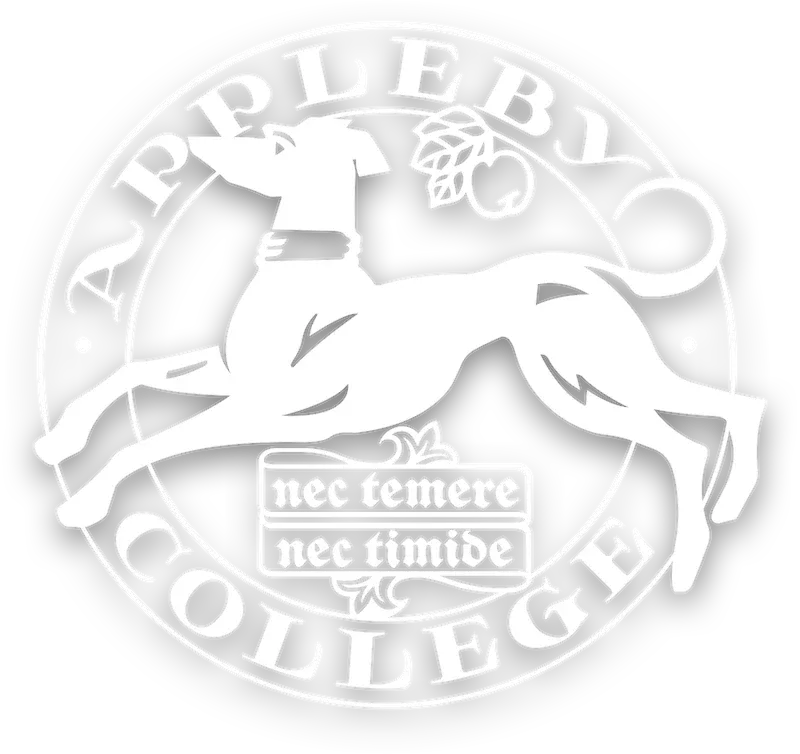
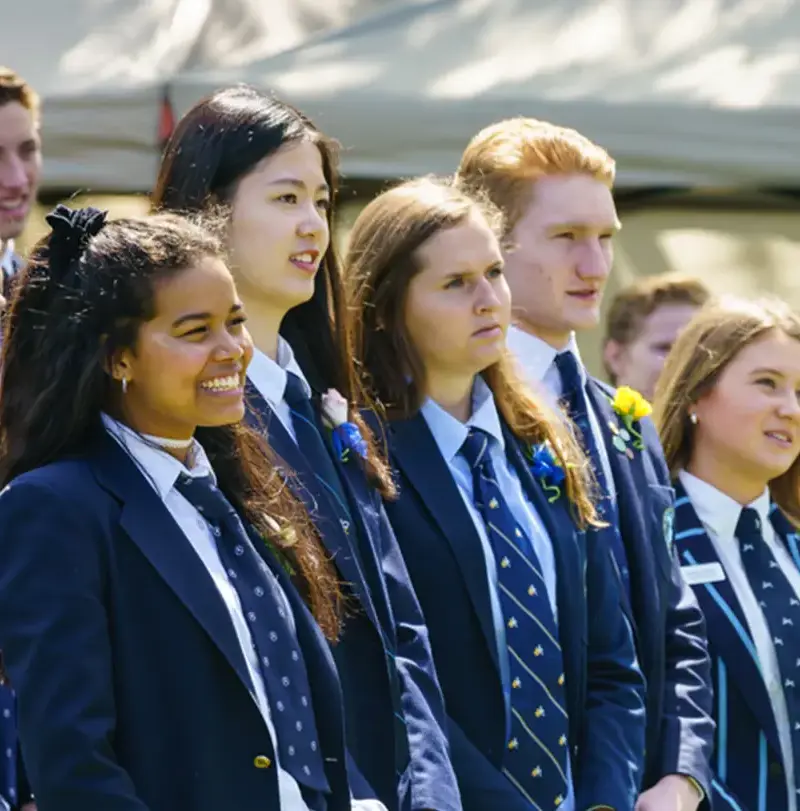
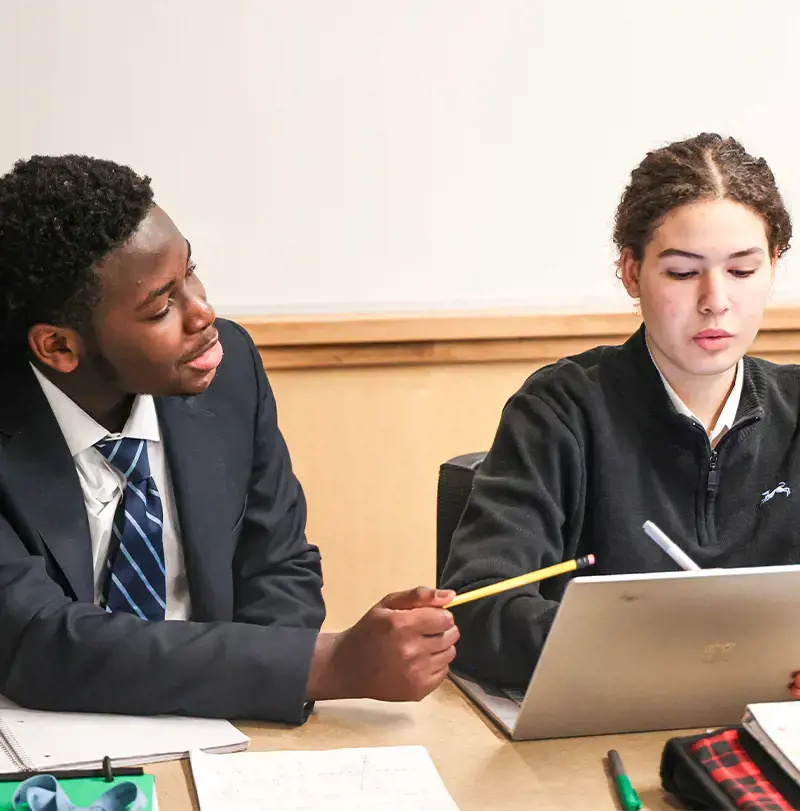
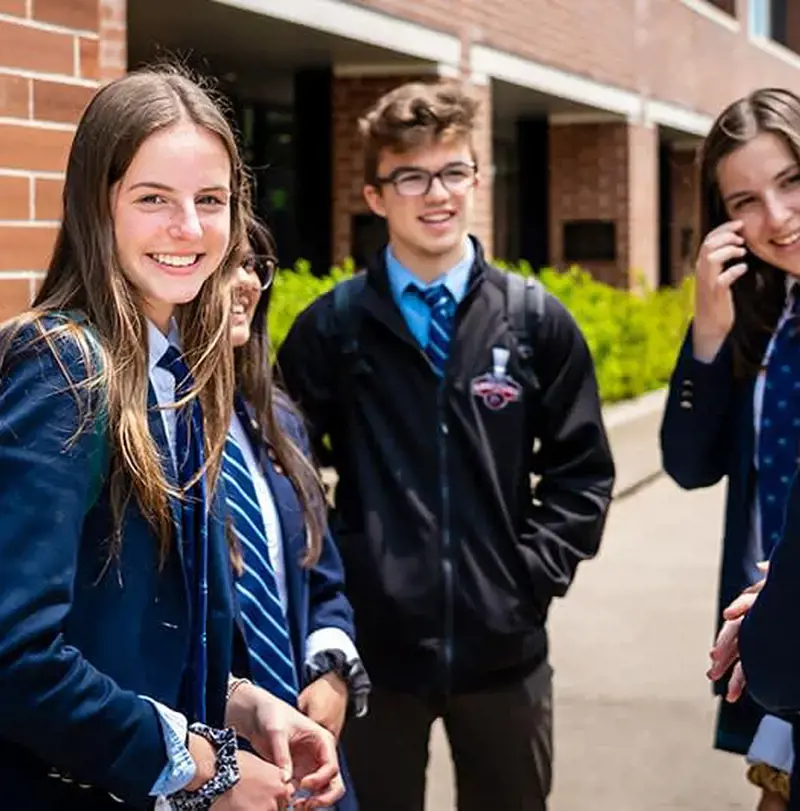
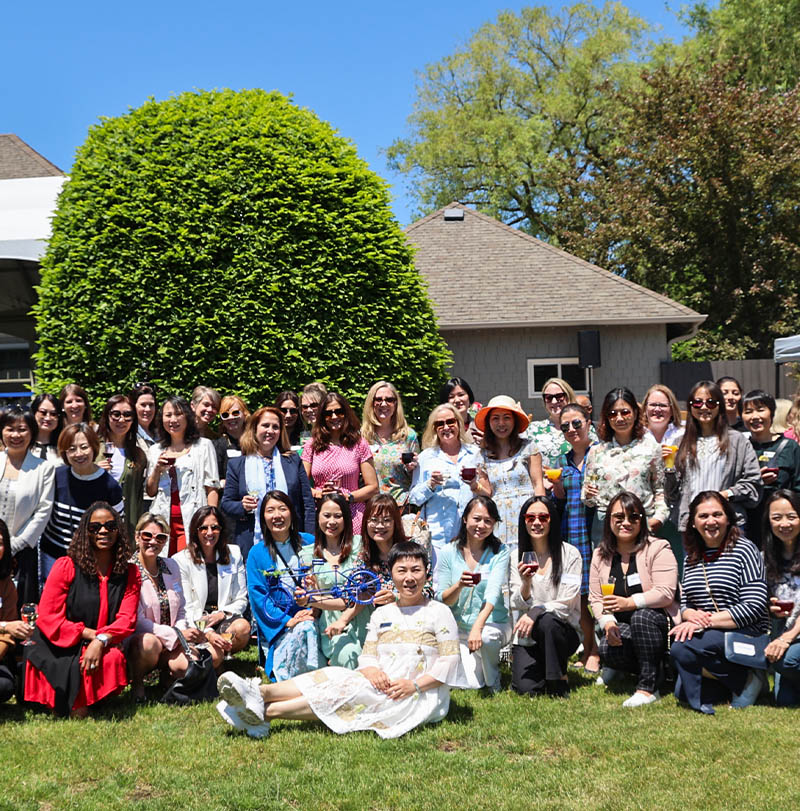
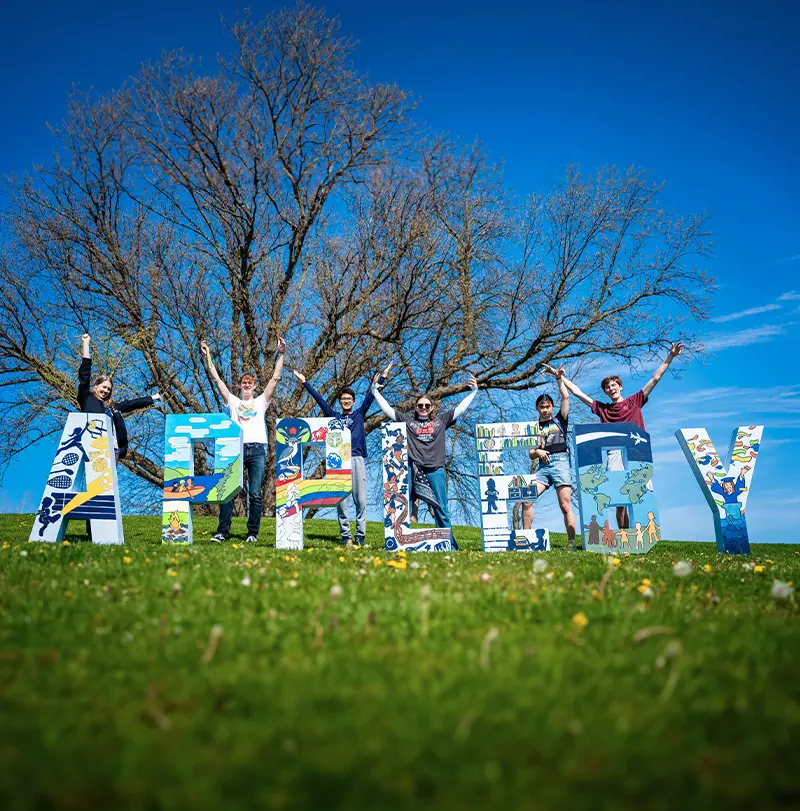
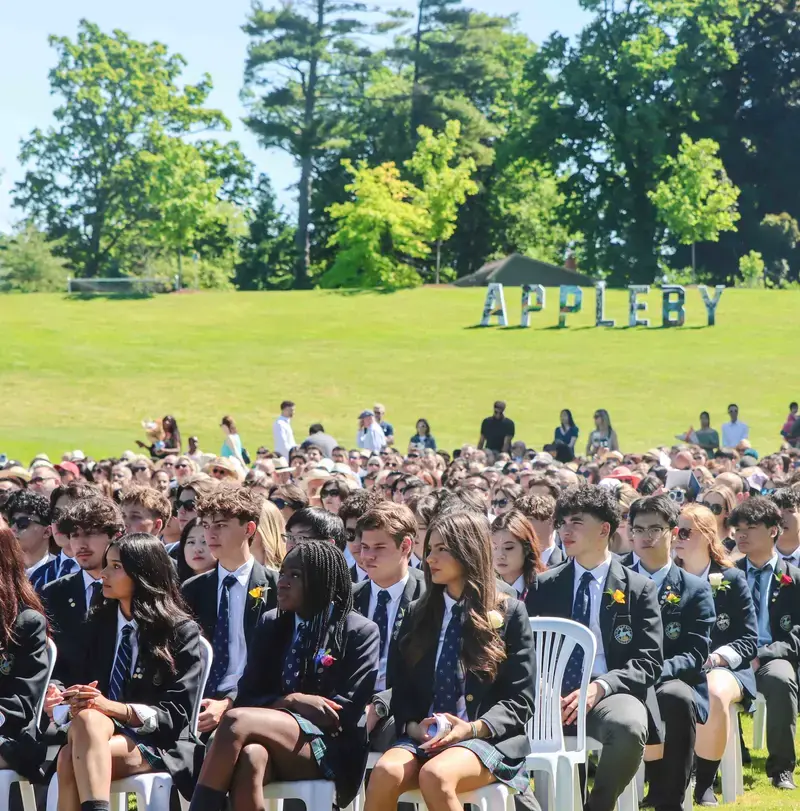
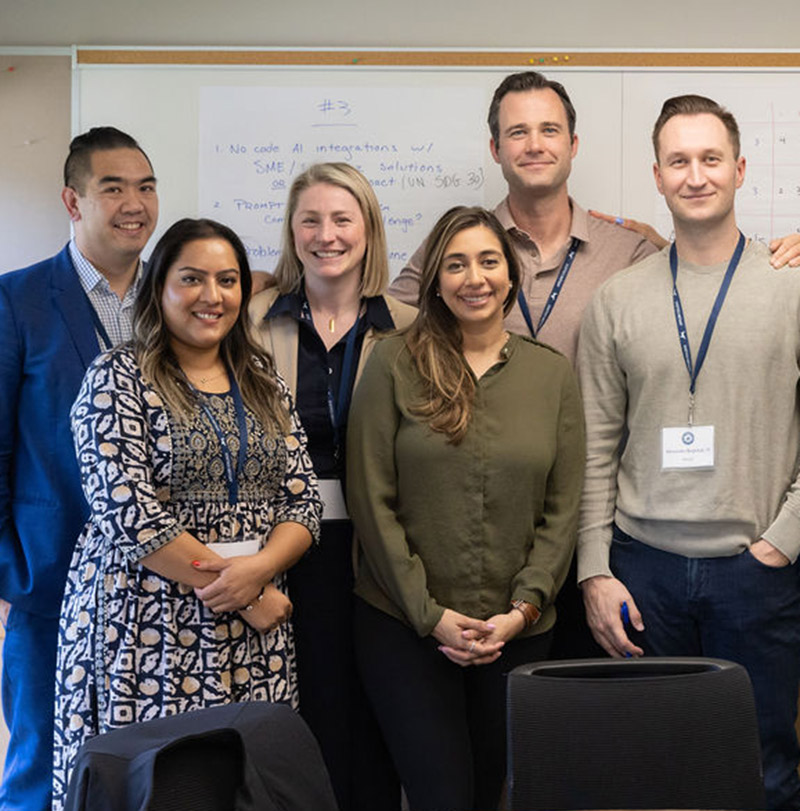
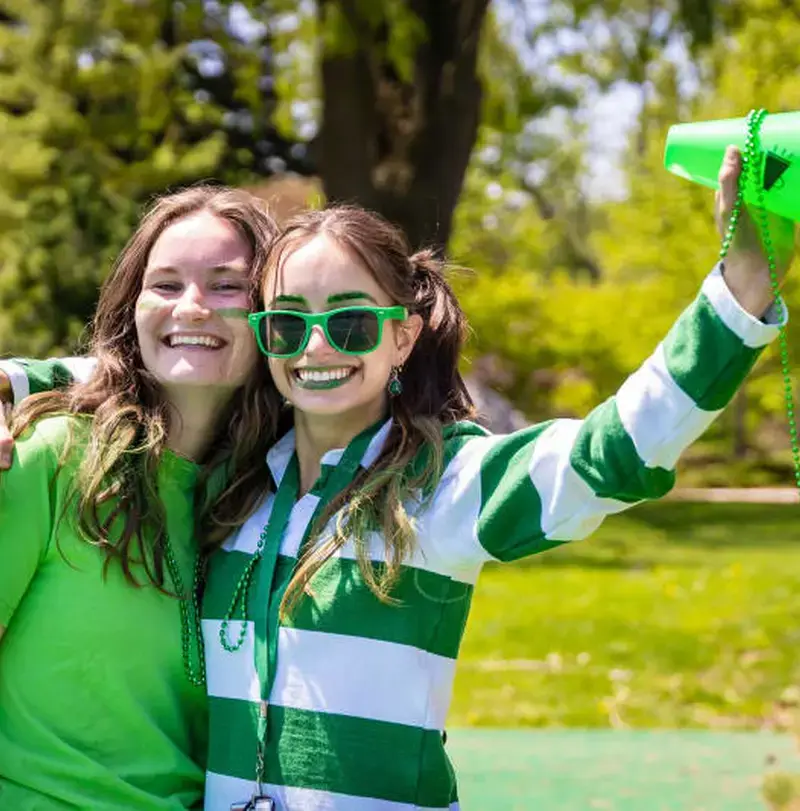
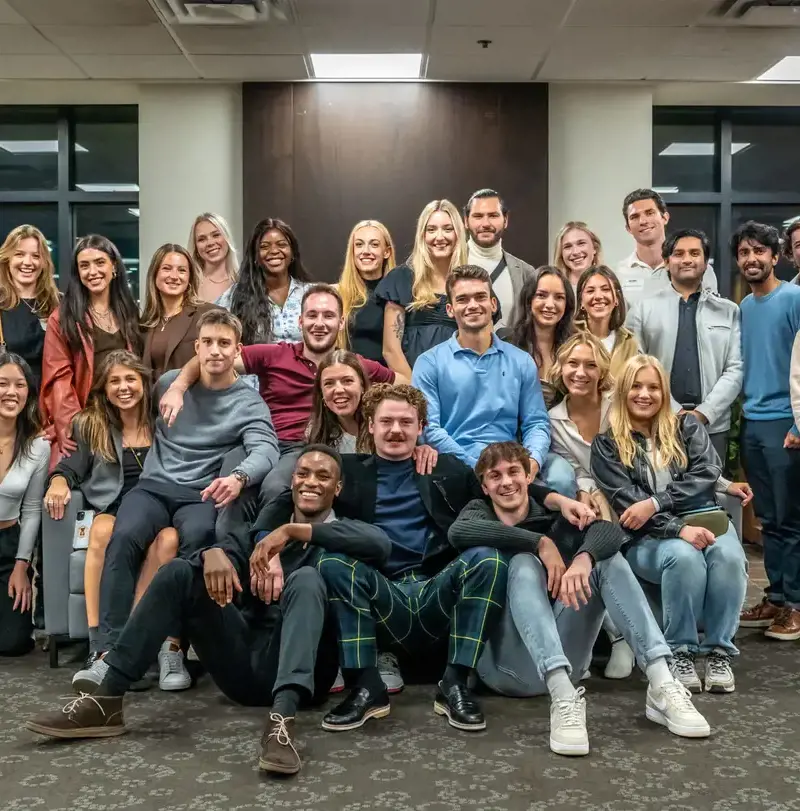
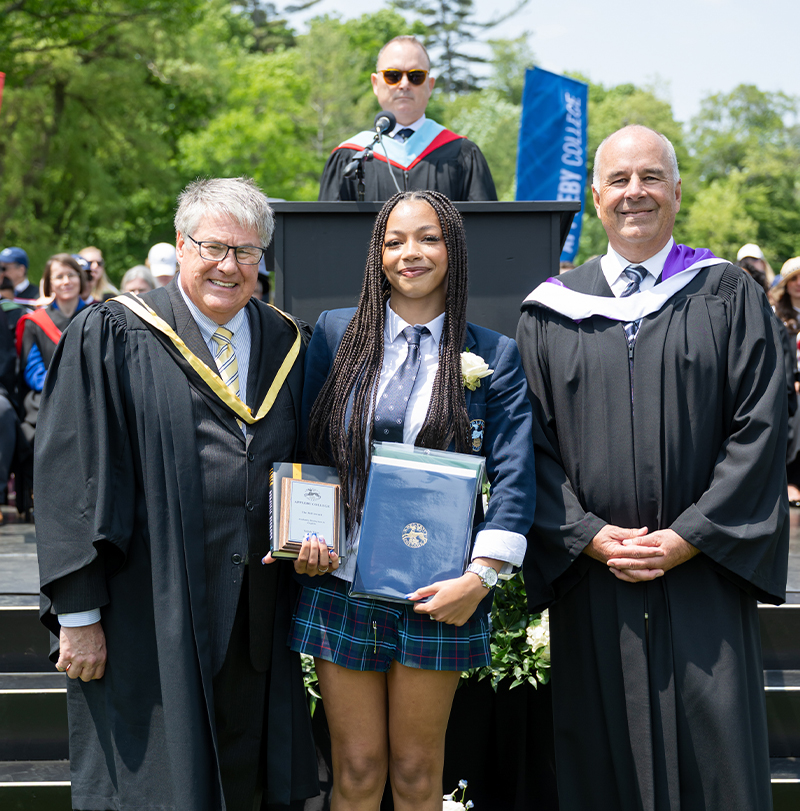

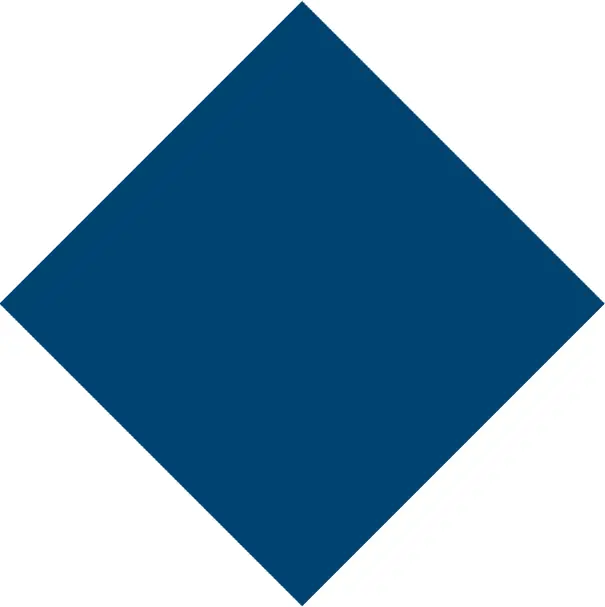 indicates activities where participants are eligible to receive their colours.
indicates activities where participants are eligible to receive their colours.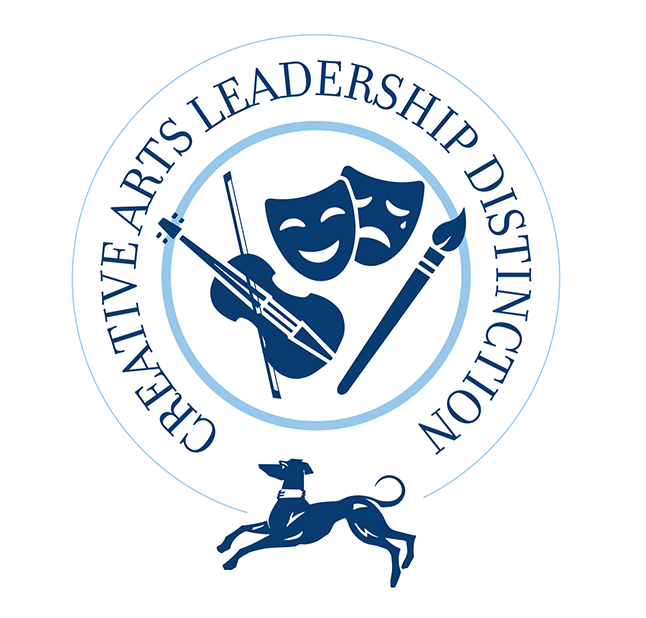
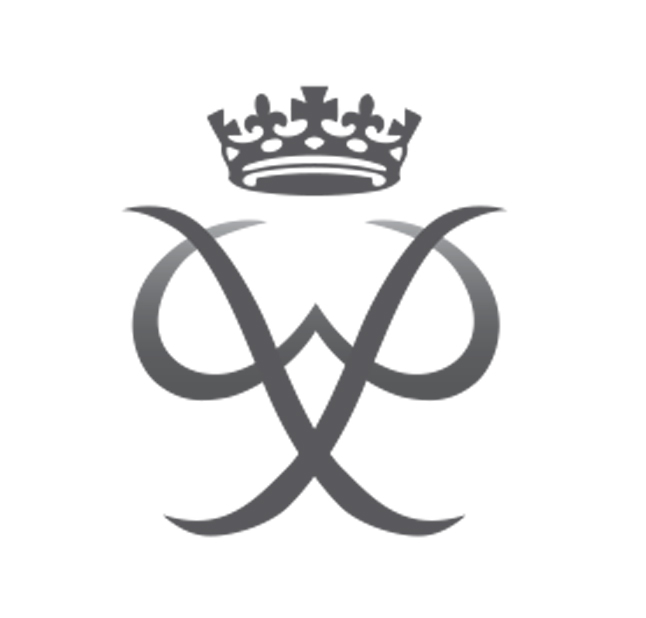
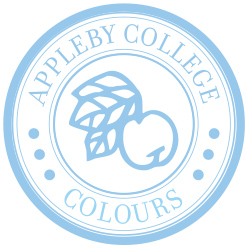
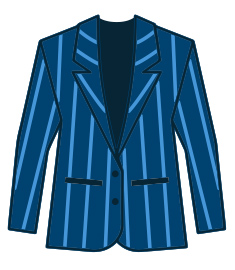
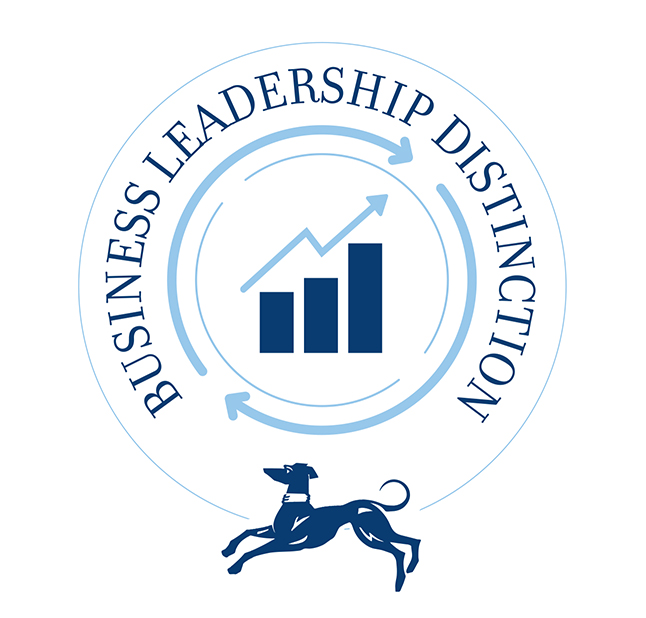
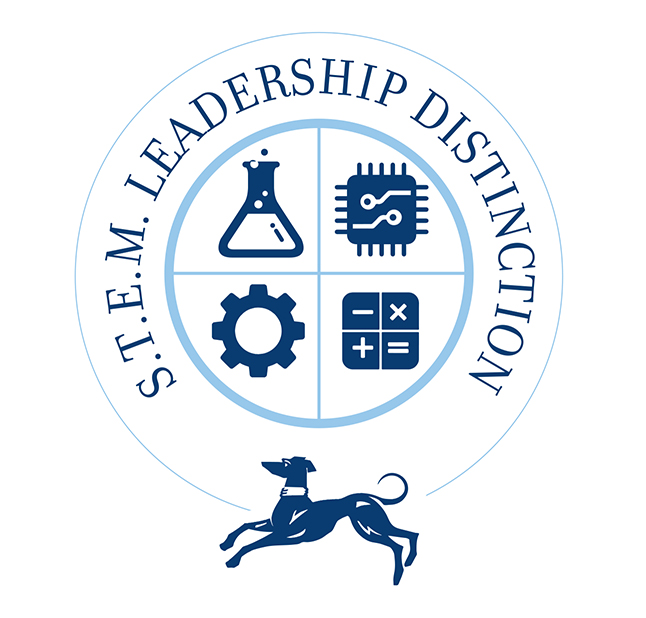
 Junior
Junior 
